70th Anniversary of VJ Day
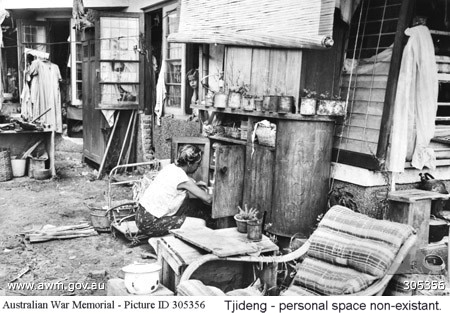
Today’s 70th Anniversary of VJ Day is not simply a historical milestone, but the last commemoration that will be attended in any numbers by those that fought in the Far East. The sight of these veterans, many now in their nineties, will therefore have an added poignancy and solemnity. Their Burma Star berets and Far East Prisoners Of War Association insignia will evoke the horrors of the Pacific Campaign. As they parade down Whitehall the focus will be on the atrocious conditions that they endured as combatants and captives, their pain in the final months made worse for knowing that in Europe the war had ended and people were returning to their normal lives. When the Japanese surrendered, the Commander of the Allied Land Forces in the East, General Slim, told his men: ‘When you go home, don’t worry about what to tell your loved ones and friends about service in Asia. No one will know where you were, or where it is, if you do. You are, and will remain, the Forgotten Army.’ But today the world will remember them, with the focus, inevitably, on the cruelty, starvation, physical neglect and slave labour that came to characterise the War in the East. Marching with these survivors will be another ‘forgotten’ group – the civilian internees. 130,000 Allied civilians, of whom 18,000 were British, also spent three and a half years as ‘Guests of the Emperor’. Already living in the region as missionaries, teachers and planters, men and women were rounded up, separated then trucked away to the 350 internment camps that the Japanese had swiftly created. Some camps were in old government buildings or disused barracks: some were in the jungle: many were simply fenced off areas of cities such as Batavia (now Jakarta) and Bandung. There the women and children were crammed sixty at a time into houses that would normally have accommodated one family. With such appalling overcrowding dysentery and typhus were rife: there were no medicines and education was banned. ‘I used to write my numbers in the dirt, with a stick,’ says Hermance Clegg, mother of the former deputy Prime Minister, Nick Clegg. Aged 5, she was interned, with her mother and two sisters, in Java’s worst internment camp, Tjideng. ‘My mother engaged a teacher to teach my older sister maths, and for that she had to give her as payment a piece of ‘bread’, which was really just a tiny transparent block of soya, one centimetre thick, which was her daily ration.’
In the camps, women and girls over the age of ten were forced to do ‘useful work’. Those still strong enough to do so had to chop wood in the dapur, the central kitchen, while others had to repair the fencing, or make bamboo coffins for the rapidly increasing number of dead. In addition to these degrading and depressing tasks, the women were brutalised by their guards who regarded their captives with contempt. To look a soldier in the face or fail to bow to him would incur a vicious slapping that could break a nose or loosen teeth. To trade one’s meagre belongings for food with the locals through the fence would be to risk a severe beating, or to have one’s head shaved. Then there was the hated ‘tenko’ or roll call which took place twice a day – more often if the camp Commandant demanded it, which the sadistic Lieutenant Sonei, of Tjideng, frequently did. ‘We had to stand there, then bow from the waist at an angle of 90 degrees,’ Mrs Clegg explains. ‘After that the soldiers counted us but they were very bad at counting and there were thousands of us, and each time they lost their way and had to start all over again. It took ages in the burning sun and we weren’t allowed to wear hats or sit down.'
Even worse than the brutal treatment and exhausting work was the chronic lack of food as the supply of rice to the camps dwindled. By the end of the war the daily ration was half a cup per person per day. ‘What was most poignant of all is that mothers had to resist giving their own rations to their children,’ recalls Hermance Clegg. ‘They knew that they had to keep themselves alive, in order to save their family, but to see your child weakening through lack of food must have been agonising. In this respect I believe that the internees were treated worse than the POWS, because from what I understand, they were given even less food. ’
By the time the camps were liberated, 14,000 civilians had died of starvation, exhaustion or disease. Like the POWs in their loin cloths, the physical and psychological degradation of these women was complete. Like the POWs, they were skeletally thin and half blind with malnutrition. Yet, seventy years on, there’s little general awareness of what they endured. When I published my novel ‘Ghostwritten’ about a Dutch girl interned on Java, the most common reaction from readers was ‘I knew about the POWs, but I’d never heard about this.’
‘I do think that the civilian story in the Far East has been overlooked,’ says military historian, Dr Sarah Ingham. ‘But this is primarily because Europeans had been through so much, with millions displaced and killed, and people trying to come to terms with the enormity of the Holocaust. This is not in any way to belittle what happened to civilian captives in the Far East, but it must have seemed very remote to a Europe where people had suffered so much.’
Perhaps another reason is that the epic scale of the construction projects that the POW’s were forced to labour on - railway lines, bridges and airfields – is more appealing to filmmakers and writers. In the last two years alone there have been two Hollywood films about the Thai Burma Railroad – ‘The Railway Man’ and ‘Unbroken’ - as well as Richard Flanagan’s Booker Prize winning novel, The Narrow Road to the Deep North. True, there was the successful TV drama, Tenko, about a group of British and Australian women interned in a jungle camp on Sumatra, but that was thirty five years ago, and apart from the 1997 film, ‘Paradise Road’, set in a camp on Sumatra, there’s been almost nothing about the internees since.
But there’s another reason why the male/military narrative has come to dominate the story of the War in the East, which is that the returning soldiers had their regiments to support them, commemorate their courage, and preserve the memory of what they had been through. For the internees there was no such support. They returned to Holland or Britain or Australia and simply got on with their lives. ‘A regiment, or veterans association, where people exchange reminiscences and photos provides an enormous and very important sense of comradeship,’ says Dr Ingham. ‘It must be a huge comfort to be in touch with people who have shared, and understand, the same experience. This is not available to civilians, and so their stories aren’t commemorated in the same way.’
Ghostwritten is published by HarperCollins.
Ghostwritten - RoNA 2015 award nominee

I'm delighted to say that Ghostwritten has been shortlisted for the Romantic Novelists' Association RoNA award (Romantic Novel of the Year) in the Historical Romantic Fiction category. The prize will be announced at a formal ceremony in London on March 16th.
Shadows Over Paradise
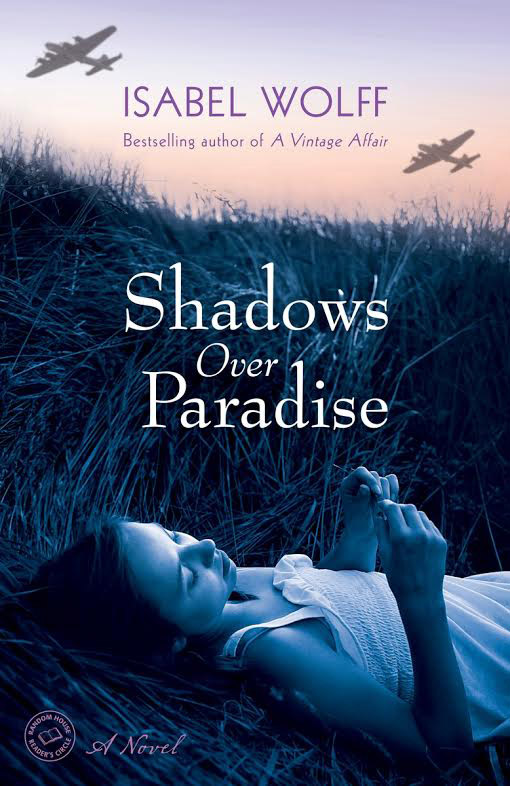
I'm very excited about the American edition of 'Ghostwritten' which will be published as 'Shadows Over Paradise' by Random House on Tuesday February 10th. It's the first time I've had a change of title for any of my novels, and although it felt a little strange at first I rather like it. It certainly emphasises the wartime part of the story, on Java.
I also love the cover design. The girl could be from the 1940s, or from the present day. The long grass in which she's lying might be in Cornwall, or on Java. The muted tones suggest nightfall and the distant planes add a note of menace. I'll be doing a Giveaway on Facebook, for US readers, starting on Sunday February 8th. On that day I'll also be doing one of my regular chats about fiction and answering any questions you may have about writing and publishing.
Here's a link to my FaceBook Author Page and I hope to see you there!
Shadows Over Paradise is available from:
How to write good, realistic dialogue

Dialogue is what happens when two or more characters talk to each other. We’ve all read novels in which that conversation is conveyed very awkwardly and this clumsiness pulls us out of the book. Good dialogue, on the other hand, is a pleasure to read, and makes the novel dance along.
Dialogue performs several functions – it moves the story forward, reveals how the characters relate to each other, and creates or builds tension. It also provides a break from the longer descriptive passages which require more concentration to read. I know many people who, before buying a book, will open it to see how much dialogue there is. Too little, and they’re deterred.
To write successful, realistic sounding dialogue you have to develop an ear for how people talk – their vocabulary and accent, the volume at which they speak, their catch-phrases and verbal tics. Having said which, dialogue is not a transcript of how a conversation might read, if recorded. It’s refined, stylised and pared down. Alfred Hitchcock said that a good story was ‘life, with the dull parts taken out’. This observation applies equally to dialogue in which the ‘ums’ and ‘erms’ of normal speech are excised.
Good dialogue tells us who the people that are speaking are – whether they are ‘posh’ or down to earth, caring or ruthless, modest or boastful.Dialogue denotes character more forcefully than description, because it enables the writer to ‘show, not tell.’ For example, a novel’s narrator can inform the reader that such and such a character is a snob; but this is far less effective than if that character were to say, ‘Oh I never travel by bus! Buses are for poor people!’
Another function of dialogue is to tell us about the relationship between the speakers – is one more dominant, interrupting, not listening? Is one trying to please, placate or manipulate the other? The writer needs to consider all these things.
At its simplest, dialogue can move the action along, in just a few lines. Here’s an example.
Megan slept fitfully and dreamed, as she always dreamed, of Tom, then woke with the usual melancholy ache. As she pushed back the sheets she tried to remember his eyes: were they hazel or green? She sighed. After three years she could no longer be sure. She put her feet on the floor, shivered, then reached for her dressing gown at the end of the bed. Before she could put it on she heard rapid, ascending footsteps, then Lynne, shouting.
‘Mummy!’ The door flew open. Lynne stood there, wild-eyed. ‘Mummy!’
Megan’s hand flew to her chest. ‘What is it Lynne? What’s happened?’ She caught her breath, waiting to hear the news that would smash her hopes.
Lynne was crying now. Her hands pressed to her lips. ‘They’ve found him!’ she wept. ‘They’ve found Tom!’
Dialogue can also build tension, as in this example.
Kate stopped suddenly. Her lips were pursed. ‘I need to sit down,’ she said quietly. ‘Can we sit down. Please.’
Daniel looked at her anxiously. ‘Of course.’ They walked towards a nearby bench. ‘Aren’t you well sweetheart? You’re very pale.’
‘I’m… fine,’ Kate answered. But as she sank onto the bench her head dropped to her chest.
Daniel sat beside her. ‘What’s up?’ he murmured but Kate didn’t answer. Daniel was aware of a dog barking, and the distant hum of traffic. A woman pushing a double buggy threw them a curious glance. ‘What is it Kate?’
As Daniel reached for Kate’s hand she lifted her head. ‘Dan…’ She looked at him searchingly. Her lower lip trembled. ‘Dan, there’s something you need to know…’
We understand that Kate and Daniel have been in a relationship, and that this is a moment of change – but we don’t know what the change is yet, and we’re curious to know. The dialogue here also sets the scene in the park, helping the reader to build the images in their head that will make the novel feel authentic and real.
Writing good, realistic dialogue is a challenge, but below are my top tips for doing so successfully.
DO
Be aware of how your characters will sound. A 10 year old boy will not sound the same as an 80 year old woman so make sure that your characters come across in a distinct way. You might give them a particular idiom or catchphrase, but if you do, don’t over-do it. Less is always more.
Punctuate your dialogue correctly. The rules are a new line for each speaker, and the words should be inside the speech marks. In the US a double inverted comma is used for speech marks – “….” but in the UK it’s a single one – ‘…‘. If a character has been interrupted, use a hyphen to indicate that their speech has been broken off. If they trail off, then use ellipsis, with three full stops, like this…
Make it absolutely clear about who is speaking. There’s nothing more annoying for a reader than being unsure and having to go back to work it out. For clarity, restate the name of the speaker now and again, then revert to ‘he said’ or ‘she said’.
Use dialogue not just to convey the words, but to set the scene. Dialogue is not simply about who is saying what to whom, so incorporate touches of description or action to help the reader fully visualise what’s happening.
When you’ve finished writing your dialogue, speak it aloud. This is the best way to know whether or not it’s working successfully.
Be aware of the rhythm and cadence of speech. This means having an almost musical ear for language. The more dialogue you write, the more easily this will come.
Use silence as well as words. We all give ourselves away by what we are not saying, as much as what we are saying.
DON’T
Use dialogue to give information or exposition. For example:
‘Do you remember when we worked at the John Radcliffe hospital?’ Dave said. ‘In Oxford? Back in the 90s?’ He sipped his coffee. ‘And we were both junior house doctors, three years out of medical school, and you were in obstetrics and I was in dermatology, but what you really wanted to specialise in was orthopaedics and I was hoping to go into urology. And do you remember that house we shared with that chiropodist from Birmingham who had six sisters?’ He lowered his cup. ‘Seems so long ago doesn’t it.’
Don’t overdo accents or quirks of speech – it can get tiresome. A little goes a very long way.
Use too many dialogue tags – like ‘whispered’, ‘pondered’, ‘reflected’. ‘Said’ will usually do very well, and the reader absorbs it a bit like punctuation. Too many substitutions like ‘roared’, ‘sang’, ‘screeched’ and ‘threatened’ can distract the reader’s attention.
Let one person speak for too long – it’s dialogue, not a monologue.
A few Suggested Exercises
Write a scene that shows how your main character and a secondary character interact.
Write a scene where your main character/protagonist warns another character that something life-changing or threatening is about to happen to them.
Write a scene where your protagonist is trying to conceal something from a secondary character.
Write a scene that reveals open and growing conflict leading to a blazing row between the protagonist and another character.
Write a scene where a secondary character confesses something dreadful to your protagonist.
—
Isabel Wolff’s latest novel, Shadows Over Paradise (published in the UK as Ghostwritten) is published by Random House Inc. in paperback and on Amazon Kindle on February 10th
Shadows Over Paradise is available from:
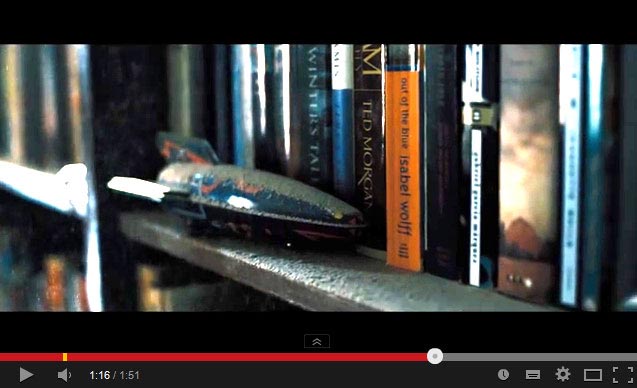
As Featured on ‘Interstellar’...
Most writers struggle to get attention for their novels; grateful for a review or two in the national press or in the women's magazines, we do our best to get coverage that will draw attention to our books. We write feature articles and reach out to literary bloggers: we post about our books on Facebook and Tweet. Anything to try and make our work visible and discoverable in the sea of published books. But this week I got help from a completely unexpected quarter, when Christopher Nolan's new blockbuster, 'Interstellar', came out. I went to see it with a girlfriend who, as the film began, suddenly grabbed my arm and let out a gasp. And I gasped too because the camera was tracking along a book shelf, on which, clearly visible, was my third novel, 'Out of the Blue'. It was there for a second or two at most, but we had both seen it and I knew that millions of other cinema-goers would see it too. I was of course thrilled beyond words - what a fabulous plug! - but I was also mystified as to why it was there. Among the other novels on the shelf I had recognised 'Time's Arrow' by Martin Amis, and 'One Hundred Years of Solitude' by Marquez. By the end of the film I could see why those titles might have resonated with Christopher Nolan. 'Interstellar' is about space and time travel, and about astronauts, cryo-frozen, sleeping their way through their intergalactic voyage. But why 'Out of the Blue'? It has the feeling of the sky of course, but that's the only reason that I can think of to make it fit with Nolan's themes. Since then I've seen online forums that debate the meaning of the featured books. Someone pointed out that 'Out of the Blue' was published on February 1st 2003, which was the day of the Columbia space shuttle disaster. I took my courage in my hands and tweeted to @Interstellar, saying that I was of course delighted to see my book at the start of the film, but would love to find out if there was any particular reason for it being there. If I get a reply, I shall let you all know.
More on The Forgotten Women of the War in the East
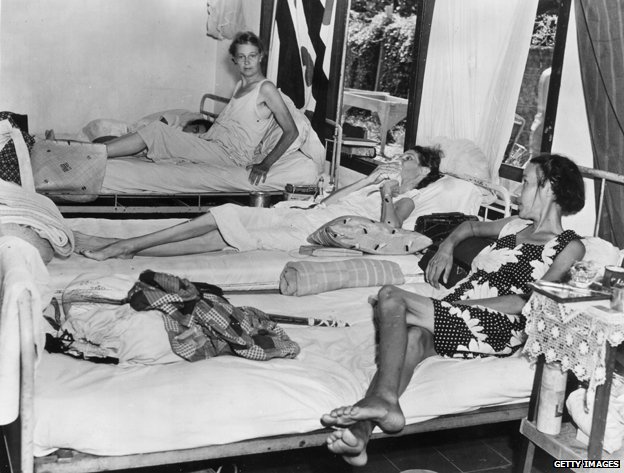
First published on Books By Women
Isabel Wolff’s latest novel, Ghostwritten, is a poignant story about a Dutch girl and her family struggling to survive in a Japanese internment camp on Java. Isabel tells WWWB what drew her to this neglected part of World War 2 history.
I’ve always had a fascination for the Pacific War. It began at 8, when I learned that my parents’ friend, Dennis, had been a POW in Burma. My mother told me, in hushed tones, that Denis had ‘suffered terribly’ and seen ‘terrible things’ although she didn’t want to say what those things might have been.
When I was 12, I read A Town Like Alice, set in occupied Malaya, a novel that has stayed with me all my life. And a few years later I watched, avidly, the TV drama series, Tenko, about a group of British and Australian women struggling to survive in a Japanese prison camp. These things came together in my mind and I decided to write a novel about the internment of women and children in the Far East.
There were many locations in which Ghostwritten could have been set: civilian men, women and children were interned right across the region in Singapore, Borneo, Malaya, the Philippines, China and Hong Kong. I chose to set it in the Dutch East Indies, on Java, where the Japanese camps were the most numerous. They were also, by and large, the worst.
As I planned the story I read history books about the period and scholarly articles; I visited survivors’ websites and read their accounts. I interviewed two elderly women who as children had been interned on Java and still vividly remembered the daily privation, brutality and fear.
I went to Java and saw the places in Jakarta (formerly Batavia) and Bandung where thousands of women had been interned. And as I stood in the Dutch War Cemetery and gazed at the white crosses for women and children that stretched away from me in all directions I was saddened to think how little their suffering is known. For the truth is that the male/military/POW narrative has come to define the story of the War in the East.
I wondered why this should be. Perhaps it’s because the Thai Burma ‘Death Railway’ was so ‘epic’ and monstrous, and has been dramatized with vivid horror in films such as Bridge on the River Kwai. More likely it’s because the soldiers had their army, their regiments and their comrades to extol their courage, and to make sure that their story was known.
Yet the same number of civilians – 130,000, mostly women and children – were also imprisoned by the Japanese. These were Dutch planters, missionaries, civil servants and teachers who after the fall of Java were herded into hundreds of concentration camps. Like the POWs, the civilian prisoners suffered starvation, forced labour, cruelty and death. Yet they have had no-one to speak up for them.
This became apparent to me this spring, when Ghostwritten was published. One of the most common responses from readers was: ‘I had never heard about this.’ Perhaps this wasn’t so surprising, I reflected, given that you now have to be over 45 to remember Tenko. There was the film, Paradise Road, about a group of American and Dutch women in a camp on Sumatra, but that was back in 1997.
Since then no films or novels have focussed on the civilian story, ‘though writers and directors continue to be fascinated by the suffering of the military men. This year alone there have been two Hollywood films – The Railway Man and the soon-to-be-released Unbroken about the Olympic runner and Japanese camp survivor, Louis Zamperini.
There has also been Richard Flanagan’s magnificent, Man Booker prize-winning novel, The Narrow Road to the Deep North. I felt proud to be writing about what these women and children had been through. Yet as more reader comments came in, the ones that surprised me the most were: ‘I had never heard about this – and I’m Dutch!’
Dutch friends tell me that in Holland this part of wartime history is not widely taught, compared to the Nazi occupation of the Netherlands, and the Holocaust. In their memoirs the internees who were repatriated to Holland in 1946 tell of further alienation in which, far from being welcomed back to the mother country, they were bitterly resented. Because they were emaciated – most had lost 30% of their body weight – they were given extra food coupons.
In grocery shops they would get sharp looks and sharp remarks. ‘Why should we look after you?’ was a frequent cry. ‘While you were sunning yourselves in the tropics, we had the Nazis!’ After all, the Dutch had themselves been starved during the terrible ‘Hunger Winter’ when the Germans blockaded northern Holland for six months. Little wonder then that there was no compassion for these ‘pampered colonials’ who were widely referred to as ‘Uitzuigers’ or ‘leeches’.
It was as though there had been two, quite different wars, and the repatriates soon learned not to talk about theirs. Their war was the war of starvation, dysentery, savage beatings and bamboo fencing. In time, survivors began to tell their story in memoirs, all with titles redolent of a lost Eden: Dark Skies Over Paradise; Java Lost and Stolen Childhood. And now there’s a novel, Ghostwritten, which has their ordeal, and their courage, at its heart.
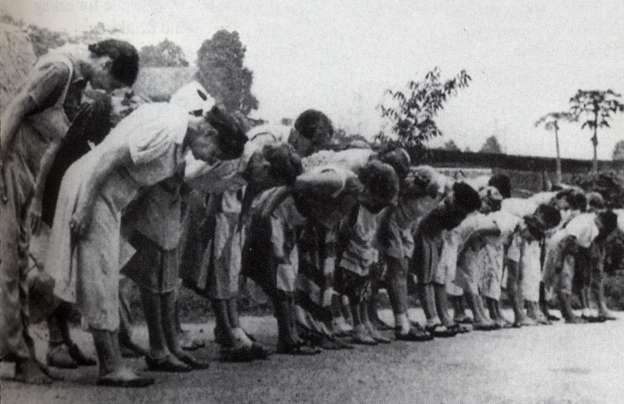
The Forgotten Women of the ‘War in the East’
BBC Worldwide
19th October 2014
Amid all this, the greatest fear for mothers of boys was that their sons would be taken away. The age at which boys were transferred to men's camps dropped from 15 at the start of the war, to 13 then 11, until by 1944 boys of 10 were being transported. As they waited to climb on to the lorries they would cling to their mothers, not knowing whether they'd ever see them again.
By the time liberation came on 15 August 1945, the degradation of these women was complete. Like the POWs in their loin cloths, they had virtually no clothes, many wearing old tea towels for bras, and "sandals" fashioned out of strips of rubber tyres.
Like the POWs they were skeletally thin, half-blind with malnutrition and, as with the POWs, huge numbers had died.
I have no wish to diminish the heroic Prisoners of War that Flanagan has written about with such brilliance, or ever to forget what they endured. But thousands of women and children also lived with hunger, disease, cruelty and death, and we should remember their ordeal, and their courage, too.
With such chronic overcrowding, poor sanitation was the norm, and dysentery and typhus flourished, along with scabies, bedbugs and lice. Education was banned - children would write their numbers with a stick in the dirt - and females aged between 11 and 60 all had to do "useful work". Many women were "furniture ladies", whose job was to empty houses of furniture, then take it to another, already emptied house, for the future use of the Japanese.
Working in pairs, they would lift tables, cupboards and even pianos on to a "buffalo" cart. But instead of the cart being pulled by a buffalo the women would have to put on the harness and haul it themselves. Others worked in the dapur or central kitchen where they would chop firewood and scrub the old oil barrels that were used as giant saucepans. Some repaired the hated gedek - the fence - while others had to scoop sewage out of the overflowing latrines or make coffins for the ever increasing number of dead.
In addition to this distressing, undignified and exhausting work, the women were subjected to constant brutality. To look a soldier in the eye, or fail to bow to him instantly would incur a vicious slapping that could break a nose, or loosen teeth. At Tenko, or roll call, which took place twice a day, the internees had to stand for hours in the blazing sun, with no hats allowed and not even the elderly or children allowed to sit down.
Once Japan had conquered South-East Asia, the Europeans, Americans and Australians who had been living there as planters, teachers, missionaries and civil servants were rounded up and trucked away to the 300 "civilian assembly areas" - in reality concentration camps - that the Japanese had created. Ten thousand British were interned in China, Singapore and Hong Kong, while 3,000 Americans were interned in the Philippines, at Santo Tomas.
By far the largest group were the 108,000 Dutch civilians, 62,000 of them women and children, who were sent to camps on Java, Sumatra, Borneo and Timor. Their ordeal was to last three and half years and would claim the lives of 13,000, due to starvation, exhaustion and disease. Yet when I published my novel, Ghostwritten, about the internment on Java of a Dutch girl and her family, the most frequent response from readers to this part of wartime history was: "I had never heard about this."
You have to be over 45 to remember the 1980s TV drama, Tenko, about a group of British and Australian women interned in a camp on Sumatra, which is also the setting for the 1997 film, Paradise Road, about American and Dutch women struggling to survive in a camp in Palembang.
Richard Flanagan's The Narrow Road to the Deep North has won this year's Man Booker Prize. But there's more to the "war in the East" than the horrors of the Burma railway says novelist Isabel Wolff.
The Narrow Road to the Deep North is a magnificent novel and a worthy winner of the Man Booker Prize. Its story of Tasmanian army surgeon Dorrigo Evans and his fight to save the men under his command from starvation, disease, and the relentless brutality of their Japanese captors, will stay with me for the rest of my life.
The book is a powerful addition to the canon of films and literature that dramatise the horrors of life as a POW in the Pacific War. Bridge On the River Kwai, Merry Christmas Mr Lawrence, The Railway Man and the soon-to-be-released Unbroken, about the Olympic runner and Japanese camp survivor, Louis Zamperini, all focus on the suffering of Allied soldiers in the Far East.
Indeed, when we reflect on that part of World War Two we think, automatically, of these brave military men, of whom there were 132,000. Yet there were 130,000 Allied civilians in the region - predominantly women and children - who also endured appalling privation and cruelty, but whose story is barely known.
But where the Thai-Burma Railway continues to fascinate writers and historians, with two Hollywood films and a major novel this year alone, there's little awareness of what the civilians endured.
For most, a near paradisal life in the tropics had come to an abrupt end with the Japanese attacks on Pearl Harbour in December 1941, followed soon after by the Fall of Singapore. While the Allied troops were sent to slave on construction projects in Burma, Singapore and Japan, the civilians were imprisoned in what were, for the most part, segregated camps.
The men's camps, for men and boys over the age of 15, were in former government buildings and disused barracks, while the women and children's camps were fenced-off areas of cities such as Batavia (now Jakarta) and Bandung. In camps like these women and children were crammed, 50 or 60 at a time, into houses that would normally have accommodated one family.
UK Deputy Prime Minister Nick Clegg's mother, Hermance, was in Camp Tjideng in Batavia, with her mother and sisters. She remembers having to bow deeply towards Japan at Tenko, "with our little fingers on the side seams of our skirt. If we did not do it properly we were beaten." Another punishment, head shaving, was so common that the women would simply wrap a scarf round their bloodied scalp and carry on.
Worse even than these sanctions was the fear of starvation as the rations of what passed for food - tapioca gruel - dwindled to half a cup per person a day. Desperate to keep their children alive, women would catch frogs, lizards and snails and boil them in a tin cup on the back of their irons.
The more daring risked being savagely beaten or even executed, as they crept to the gedek to trade their meagre possessions with local people for a banana or a couple of eggs. The internees became so obsessed with food that they would feverishly swap recipes, writing out the ingredients, discussing the method then mentally savouring the delicious dish that they would never get to eat.
Amid all this, the greatest fear for mothers of boys was that their sons would be taken away. The age at which boys were transferred to men's camps dropped from 15 at the start of the war, to 13 then 11, until by 1944 boys of 10 were being transported. As they waited to climb on to the lorries they would cling to their mothers, not knowing whether they'd ever see them again.
By the time liberation came on 15 August 1945, the degradation of these women was complete. Like the POWs in their loin cloths, they had virtually no clothes, many wearing old tea towels for bras, and "sandals" fashioned out of strips of rubber tyres.
Like the POWs they were skeletally thin, half-blind with malnutrition and, as with the POWs, huge numbers had died.
I have no wish to diminish the heroic Prisoners of War that Flanagan has written about with such brilliance, or ever to forget what they endured. But thousands of women and children also lived with hunger, disease, cruelty and death, and we should remember their ordeal, and their courage, too.
Isabel Wolff's novel, Ghostwritten, was published in March 2014
The Other Side of the POW Story
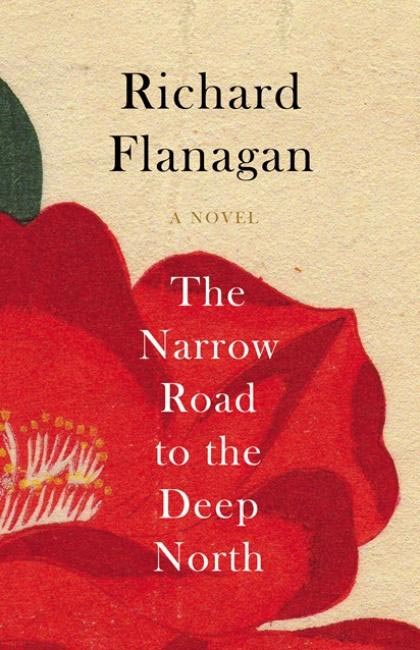
I was thrilled when Richard Flanagan’s ‘The Narrow Road to the Deep North’ won this year’s Man Booker Prize. Set on the Thai-Burma ‘Death Railway’ it’s a magnificent novel and a powerful addition to the films and books – ‘Bridge On the River Kwai’, ‘The Railway Man’ etc., that focus on the fate of the Allied POWs in the Far East. There were 130,000 of these men, who suffered starvation, disease, and relentless brutality. But there were 132,000 Allied civilians in the region, most of them women and children, who also endured dreadful privation and cruelty, yet whose story is barely known. These were the families of European and Australian planters, teachers, missionaries and civil servants. They are also the heroines of my new novel, ‘Ghostwritten’, about a Dutch girl, Klara, and her family, and their struggle to survive in a prison camp on Java.
30 years ago the TV series ‘Tenko’ dramatized the imprisonment of women and children in a Japanese internment camp on Sumatra, as did the 1997 film, ‘Paradise Road’. But ‘Ghostwritten’ is the only novel I know of, since then, that focuses on the reality of daily life in these appalling camps. Overcrowding was so chronic that dysentery and cholera flourished, along with bedbugs and lice. There was little or no sanitation and education was banned – children would write their numbers and letters in the dirt. The prisoners had to stand for hours in the blazing sun at roll call, or Tenko, and all females between 10 and 60 had to work. Many had to lift heavy furniture, others had to chop firewood for the central kitchen, scoop sewage out of the overflowing latrines or make coffins for the ever increasing number of dead. And amidst all this they were being slowly starved, as the rations dwindled to one cup of rice per person per day. The women also faced routine violence from their guards. If a woman looked a soldier in the face or failed to bow to him instantly they were given a vicious slapping that could break their nose or loosen teeth. If they traded their possessions for food at the hated gedek fence, they could be beaten to the ground, or have their heads shaved. In camps were the Commandant was particularly sadistic, some women were executed while others were ‘punished’ by being tied to a chair in the sun.
‘Ghostwritten’ is a story of survival – it’s about women being tested to destruction during a terrible war. It’s received wonderful reviews I’m happy to say, but one of the most frequent comments from readers is that they ‘had no idea’ about this part of history. I believe that this is because the story of the ‘War in the East’ has come to be dominated by the male/military narrative: yet the experience of internment, for a woman, was just as harrowing as captivity was for any man. By the time the Far East was liberated the degradation of these women was complete. Like the POWs in their loin cloths, they had virtually no clothes, many wearing old tea towels for bras, and ‘sandals’ made out of rubber tyres. Like the POWS, they were emaciated and half blind with malnutrition and, like the POWS, many thousands had died. I have no wish to diminish the heroic Prisoners of War or ever to forget what they endured; but thousands of women and children also lived with hunger, disease, cruelty and death, and we should remember their ordeal, and their courage too.
Isabel Wolff October 16th 2014
Ghostwritten’ is published by HarperCollins in paperback and on Amazon Kindle.
The novel will be published in the U.S. on February 10th with the title, ’Shadows Over Paradise’
Guest Adjudicator in the Authors’ Club Best First Novel Award

I'm thrilled and honoured to have been asked to be the guest adjudicator in the Authors' Club Best First Novel Award. The six shortlisted novels have now been chosen and I'll be reading them over the next month, and announcing the winner at the Awards Ceremony on Tuesday June 3rd. For details of the shortlisted novels please click on the link below.
My Writing Room
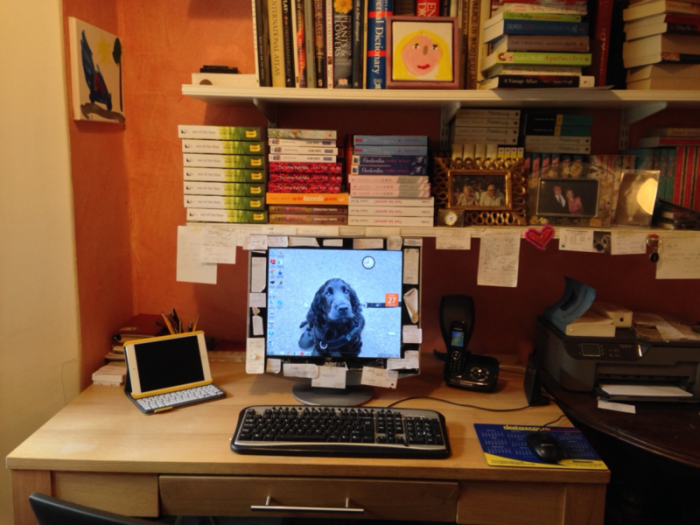
Novelicious.com - Thursday 3rd April 2014
We live in a tall thin house in Notting Hill and my writing room is down in the basement, dark and deep, with bars on the windows - my own personal dungeon.
I have taken the photo very close in out of shame at the general untidiness. The desk is nothing like as well organised as it appears here, the hinterland behind the computer strewn with books, used coffee mugs, bars of chocolate and general bric-a-brac. I have tidied it for the photo, but within an hour it will resemble a mini-landfill once more.
The shelves above it are piled high with reference books that I never, ever open, and piles of the various foreign editions of my novels. The overseas publishers kindly send me 10 – sometimes 20 – of each, and there are only so many that my local Oxfam is prepared to take. I don’t like to throw them away in case I one day get to know someone Indonesian, Latvian or Thai, on whom I can press a copy, whether they want one or not. So these translations sit there, stacked up like bricks.
My computer screen is studded with sticky labels reminding me of the pin codes and passwords for my bank and building society accounts: burglars will thank me for this one day.
The keyboard is grimy and when turned upside down releases enough crumbs to make half a packet of Rich Tea. I have my iPad mini to hand, so that I can distract myself from the writing process by seeing my e-mails and Twitter interactions come in.
The things of sentimental value that I have are the nursery school paintings done by my children, a photo of my parents, and one of myself with my partner Greg. There’s also a photograph of my grandmother, when she was young and living in India, wearing a beautiful Pierrot costume. I think this may lead to a novel one day. I love the small clock in the shape of a book, which Wendy Holden gave me. On my screen saver is our cocker spaniel, Alfie. He’s eight months old and we adore him. I cannot write a word unless he is lying at my feet.
Exclusive interview with Isabel Wolff
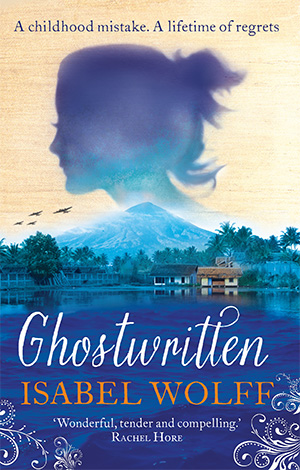
by Lucy Walton, Female First, 26th March 2014
‘Ghostwritten’ is set in present day Cornwall and on Java during World War 2. As with Tenko and The Railway Man it’s a story of the struggle to survive - and to retain one’s humanity - in the most difficult conditions a human can face. The novel is centred on Klara Tregear, who lives on a coastal farm in Cornwall. But Klara grew up in the tropics, on a plantation in Java, and was interned in a prison camp with her mother and little brother during the Japanese occupation. Klara has never spoken about what she went through in that terrible place. Now, approaching 80, she has decided to tell her story, and commissions a young ghost writer, Jenni, to help her do so.
Please tell us about the character of Jenni
Jenni is a complex character. Shunning the limelight, she has chosen to be a ghost writer, happy to work for months at a time on books that will not even bear her name. The reason for Jenni’s self- effacement is that she fears exposure. Were she to become well known, then people might discover the secret that she has kept for so long – a secret that even those closest to her do not know. For, when she was nine, Jenni made a mistake that led to a tragedy, and she’s still haunted by this, twenty five years on. So she prefers to stay in the shadows, and her work - immersing herself in the memories of others - means that she doesn’t have to think about her own painful memories too much. But through her growing friendship with Klara, Jenni may now have the chance to lay to rest the ghosts from her past.
How much has your background in English helped you to write this book?
Reading English at university has helped me to write not just this book, but all my ten novels, in that in order to become a writer, you first have to be a reader. Studying English meant that I was not only reading a huge deal of literature, but had to analyse the texts and decide why it was that they worked. I had to understand the story structure, the characterisation, the symbolism and the tone. I still think about these things when writing my own novels.
To what extent has your journalistic background affected your novel writing skills?
My journalistic background has been paramount in becoming a novelist, and I don’t think that I’d have become one without it. I was a radio reporter at the BBC World Service for 12 years, and the skills that I acquired there have stood me in very good stead. I learned how to write scripted links that would advance the story, but also had a bit of sparkle, to keep the audience engaged. I was also writing articles for newspapers and magazines, and from print journalism I learned how to prioritise the elements of the story, to make the piece flow. It’s not so different doing that with a novel, except that it’s on a much larger scale: I’m writing one hundred thousand words, rather than one thousand, but the technique is basically the same.
Please tell us about your research process in the book
My novels have changed over the years, with the earlier romantic comedies such as ‘The Making of Minty Malone’ and ‘Rescuing Rose’ giving way to novels like ‘A Vintage Affair’ and ‘The Very Picture of You’, which are set in the present and the past. ‘Ghostwritten’ continues this change, and it required a huge amount of research, because the war-time part is so important. The story that Klara tells Jenni is based on dozens of true stories about the Dutch, English and Australian women and children who were interned in prison camps throughout the Dutch East Indies during the war. I had to immerse myself in their remembered world, and so I interviewed two women, one in London, and one in the U.S., who had been imprisoned on Java as children and whose memories of this time were still vivid, seventy years on. I read the memoirs of several Dutch women who had been interned, and I visited survivors’ websites. I went to Java myself. Once I felt that I really knew this world of a tropical paradise that had become a living hell, I placed in it my fictional story of Klara and her brother Peter, her best friend Flora, the treacherous neighbour, Mrs Dekker, and the camp commandant, Konichi Sonei.
What made you want to write about the Japanese camps in Java?
When writing a novel I always start with what the heroine does for a living, because then from this everything else will flow. Once I knew that my heroine, Jenni, was going to be a ghost writer I had to decide what the ghost written story that she writes was going to be. I knew that I wanted it to be a wartime memoir, but worried that the war in Europe has been written about so much. At the same time I had always been very interested in the Pacific war, and so I turned my thoughts towards that. And it seemed to me that when we think of the war in the Pacific, we think of the poor POW’s who were forced to slave on the railways in Burma and Sumatra. But there were a hundred thousand civilian prisoners of war too, most of them women and children. I read of their struggle with starvation, disease and the cruelty of their Japanese captors. I tried to imagine what it would be like to be beaten, or have my head shaved, or to stand in the burning sun at tenko, for hours on end, with a child in my arms. What these thousands of women endured is not widely known. I decided that my novel would put their ordeal, and their courage, at its heart.
What is next for you?
I’m going to write a novel set in India – more than that I don’t really know at this very early stage!
Isabel Wolff’s Favourite Far-Eastern Novels

'We Love This Book', 26th March 2014
Isabel Wolff’s new novel, Ghostwritten, is set on Java during the Japanese invasion. She chooses her five favourite novels set in the Far East.
A TOWN LIKE ALICE
Nevil Shute
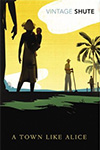 I read this wonderful novel when I was 12, and its quiet heroine, Jean Paget, and the man who is crucified for her, Joe Harman, have stayed with me all my life. Shute’s descriptions are so vivid that you can almost feel the stones beneath the women and children’s feet and the sun burning their skin as they’re marched across Malaya by their Japanese guards. Despite being a harrowing read, the book’s message is one of hope - that love can survive the most desperate odds.
I read this wonderful novel when I was 12, and its quiet heroine, Jean Paget, and the man who is crucified for her, Joe Harman, have stayed with me all my life. Shute’s descriptions are so vivid that you can almost feel the stones beneath the women and children’s feet and the sun burning their skin as they’re marched across Malaya by their Japanese guards. Despite being a harrowing read, the book’s message is one of hope - that love can survive the most desperate odds.
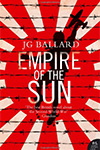 EMPIRE OF THE SUN
EMPIRE OF THE SUN
J.G. Ballard
This brilliantly written coming of age story, set in the early 1940s, is about war seen through the eyes of a child. 11-year-old Jim lives with his ex-pat parents in China, but is separated from them after the Japanese invasion and is interned in the Lunghua prison camp near Shangai. Through the horror and the destruction, and the constant threat of starvation, Jim must live by his wits to survive. One of the great novels of the 20th Century.
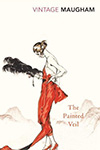 THE PAINTED VEIL
THE PAINTED VEIL
Somerset Maugham
Set on Hong Kong in the 1920s, The Painted Veil is a story of a woman’s moral and spiritual journey. Selfish socialite Kitty is married to worthy scientist, Walter, but is having an affair with a charming colonial secretary, Charles. When Walter finds out he extracts an unusual revenge. He lets Kitty choose either divorce - which would be her social death – or for her to accompany him to a cholera-infested part of China. Maugham allows Kitty to live, but caring for the sick changes her forever.
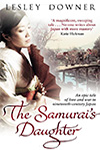 THE SAMURAI'S DAUGHTER
THE SAMURAI'S DAUGHTER
Lesley Downer
Set in 1800s Japan against the backdrop of the Satsuma Rebellion, this is the beautifully written story of Taka, a Samurai’s daughter, who falls in love with a servant, Nobu. But Nobu is not just low-born, he’s from an enemy clan. With Japan heading for a bitter civil war Taka is forced to choose between her family and the man she loves. The depictions of life in Japan during this time are fascinating and the storyline is riveting.
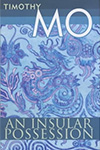 AN INSULAR POSSESSION
AN INSULAR POSSESSION
Timothy Mo
A wonderful historical novel about the beginnings of Hong Kong. Set in Canton in the early 1880s, its American protagonists, Walter Eastman and Gideon Chase, set up a newspaper as a caustic and parodic mouthpiece for their anti-opium trade views. As the paper prospers, Anglo-Chinese relations fail and the first Opium War begins. With a sprawling cast of traders, tricksters, artists and warriors this is an exciting and rewarding read.
Guide to Writing & Getting Published

People often ask me how to how to get published. So here, for any aspiring writers out there is the advice I usually give.
First of all, ask yourself if you really are the sort of person who's going to write. For example, do you have a running commentary going through your head, like a film script, describing what's going on around you? Do you find you're earwigging madly on buses and trains? Do you read a lot, and do you actively analyse what you read? Do you go to lots of films and plays? Have you looked into doing creative writing courses at your local college? Have you ever wanted to work with books, in a bookshop or publishing house?
If you can answer 'yes' to any of the above, then you may well be the sort of person who could write. But when writers laughingly trot out the cliche about it being 99% perspiration and only 1% inspiration, believe me, they are not lying - writing books is a sweat. But it's a hugely enjoyable sweat if you're confident that you have a good story to tell. So if you feel that you do, then crack on and make a start.
Getting Started
How do you get started? Well, you have to have a plan. Some writers just begin their novels without really knowing where they're going - and if it works for them, then fine. But I find I need to have a proper structure. So I decide what the main story line is going to be and this takes no more than three or four sides of typed A4. From that blueprint I then flesh out the synopsis. You may find you're not able to write the full synopsis - after all some of the main ideas will come to you as you write - but I always try and have at least 60 per cent of the story-line there. Once you've done that, divide the synopsis into chapters, each chapter being summarised in no more than half a page of A4 - in other words, you should have about two chapters per page.
Characters
I think it's best to have no more than six main characters, as it's difficult for your reader to care about the characters, or follow their progress, if there are too many of them galloping across the page. So decide who the main 'dramatis personae' are, how they are going to interconnect (without relying on coincidence of course - a total yawn), and then make detailed notes about them. Who are they? Where do they live? What sort of problems do they have? What do they do? Who are their friends? What are/were their parents like? What do they wear, smoke, eat and drive? Most importantly, what motivates them?
I often think that being a novelist is like being a shrink - you have to build up a detailed psychological profile of all your main characters - and then stick to it so that they are consistent and credible. And if they do act 'out of character' then you have to give them a clear motivation for doing so. Successful novels contain characters who feel real to the reader and whose behaviour they can understand (even if they don't approve), and sometimes second-guess. By the time the reader turns the last page, they should feel as though they know your characters personally, and have understood them very well, (even if they haven't always liked them that much).
Above all, make your characters rounded, not flat. We are all a mixture of good and bad, so it's a bore if a character is completely 'virtuous' while another is purely 'vicious'. Life is not about 'goodies and baddies', 'nasties and nicies.' Some books - bad ones - read like second rate Westerns - it's all injuns and cowboys. So set out to make your characters a credible mix. If you have a heroine/hero who is flawed, then that flaw should not be too 'unforgivable' (i.e. killing people) otherwise your reader won't like them enough to follow their progress to the end. Equally, if you have a nasty character, then try and make the reader understand what motivates them to be nasty. And try and give them one redeeming quality, or perhaps make them pitiable, rather than wholly unpleasant, as that makes for a more textured, realistic personality.
You may to choose to have your main character an anti-heroine or anti-hero which is fine, so long as they are either very clever/funny/brave or just downright entertaining so that we put up with them behaving in an appalling way. Michael Dibdin's 'Dirty Tricks' (see Highly Recommended) is a good example of this, as is Alexander Portnoy in Philip Roth's hilarious 'Portnoy's Complaint', and also the scheming Becky Sharp in 'Vanity Fair'.
Plot
Very often the plot will develop from the characters. Things will happen to the hero/heroine, because of the way they are. So don't just put in a plot development because you want to have a 'wedding scene', or a 'funeral scene' or a 'fight scene' - the action should follow as a direct result of the characters' behaviour, because that is true to life. Things happen to us, or we do certain things, because of who we are. So don't just construct a 'dramatic' plot, and then fit the characters into it because that will probably feel synthetic and fake. The action should flow, to a great extent, from the characterisation.
Equally don't insert scenes just for the fun of it. Set pieces - for example a charity ball, or a football match or an excruciating dinner party - can be fun to write (and read) but they shouldn't be side-shows. They should be there because they are relevant to the story-line. So don't just have your heroine going to Rome for the weekend, for example, unless there's a reason why she should be going there, and because something will happen to her there which connects with the rest of the plot, and moves it on. Everything should add up and make sense, so no sight-seeing. It's self-indulgent and it's frustrating to read, because the reader will rightly think to themselves, 'so what?'
The World of the Book
When you write a novel, you are conjuring a whole world, so it certainly helps to know a lot about that world. It's no good having your main character being a doctor or a vet if you know nothing about it. So the old axiom, 'write about what you know' is true - though not exclusively. Certainly, use your life experience - we all do - as it will feel authentic. Ransack your memory for everything you've ever done and everyone you've ever met - however much you might have hated it/them at the time. If you do stray into 'foreign' territory, then make sure you do thorough research. If your main character's a weather forecaster, for example, as is Faith in 'Out of the Blue', then you have to do extensive reading, interviews and detailed research so that you can convey what a weather forecaster does in a credible way. You don't have to go into grinding detail - which would only hold up the plot (or look as though you're showing off that you've done your research). But do go into enough detail so that the reader knows that it's realistically portrayed.
Writers are always alert to stories. I find that some of my plot lines have come from real life events I've read about in magazines, or newspapers, or stories I've heard on the radio, or seen on TV. These stories are around us all the time and you should be listening, and thinking about how these narrative threads might go into the tapestry of your synopsis. For example, listening to stories about adoption on Radio Four's Home Truths partly inspired one of the main themes in 'Rescuing Rose'. So be alert to stories - they are everywhere you look. Equally keep a notebook in your bag, and by your bed, to jot down any good thoughts you have during the day.
Another important piece of advice is to read around the genre in which you want to write. If you want to write thrillers for example, then read loads of them and consciously dissect them, analysing what makes them work, and why. Equally, work out what bits don't perhaps hang together, or why a particular character lacks credibility. You have to be a good critic before you can become a good writer. Go to thriller films, and plays too. Immerse yourself in your chosen genre and be alert to what is working well, and selling well, within that. Then, without in any way imitating what others are doing, set out to do it as well as they - or even better.
Now Start Writing
Once you've done a substantial part of your planning, and you have your characters, basic plot and background, then you can start to write. Just start. That's what we all have to do. Simply start writing - however bad you may think it - and keep going for at least two or three hours. You'll be surprised to find that it's soon beginning to flow. I find I write all my new material in the mornings, and then revise and edit it in the afternoons. To write new material for even three hours can be very intensive and terribly draining, so I find that I can't usually write anything new after lunch. So that's when I put on the spit and polish.
Some writers try and write an average number of words a day. I aim for 2000 - about 4 pages of one and a half spaced A4 - but sometimes I might only write 200. But then the next day I might get a sudden burst of creativity and do 4000. But basically it averages out at about 2000 words a day. You might average less, or more. Graham Greene only ever wrote 500 words a day, then he'd stop. Jilly Cooper writes 5000 a day. Above all, go at your own natural pace, but just keep covering the paper and keep at it. As P.G. Wodehouse said, successful writing depends on applying 'the seat of the pants to the seat of the chair'. There's a huge amount of truth in that.
Get Help
If at this stage you don't have an agent or an editor (don't worry, you will!) then ask someone who knows you very well, and whose judgement you trust, to read what you've done so far. Alternatively, sign up for a creative writing course, and get the tutor to read your synopsis or your first few chapters. Not only will this make you feel that you now do have a proper 'reader', you may well find their insights helpful and encouraging. Writing a book is like climbing a mountain, and it's nice to have someone giving you a hand up along the way. But equally, don't show your material to everyone and don't talk about it until you're confident that you're well on the way. Keep it to yourself. And above all, don't give away your plot.
How to Find a Publisher
So you've got your synopsis and you've written the first three chapters, so you're ready for it to be sent out (many novels are sold on that basis). But don't bother sending it direct to the publishers. Publishers used to have 'slush piles' - skyscrapers of unsolicited manuscripts, (approximately 0.1% of which would get published), but no longer. In these more ruthless times publishers will not read any manuscripts that do not come from an agent. So how do you find an agent?
How to Find an Agent
Buy the Artists' and Writers' Yearbook - an industry Bible - in which are listed the names and contact details for all the literary agents. Make a few phone calls first to establish that they do represent novelists (some agents only do non-fiction) and then find out who the relevant person is, and send them your material. This can be quite time-consuming because what you mustn't do is to approach more than one agent at a time. It's insulting, if you're an agent, to know that a synopsis is out with ten other agents. It can also get very murky if more than one of them are interested. So keep life simple. One agent at a time, and if you want the material back, enclose a large s.a.e.. If an agent says that they are not right for you, then get back to them and ask them who they think might be right. A lot of them know each other - by reputation if not personally - and the vast majority would make a helpful recommendation as to whom you might approach next.
Dealing with Rejection
Don't worry if you get fifteen rejection letters. There are lots of very successful authors who only got lucky after months and months of trying. J.K. Rowling famously got loads of rejection slips from publishers (who are all still busy kicking themselves). Other writers are fortunate and find one straight away.
Take Advice
If you have a friend of a friend of a friend of a friend whose girlfriend works for a publishing house or a literary agency, then phone them up, and ask them for advice. People don't mind - in fact they quite often like it because it makes them feel important. And it's only five minutes on the phone and they might well give you a very helpful lead.
What to do when you've got an Agent
Once you have an agent, then it's up to them to find you the right publisher. Don't tell them that you want to be published by Faber for example. Your agent will naturally know which is the right publishing house for you, and they will do their very best to get you there. In return for their efforts, you will pay them between 10 and 15% of what the deal is worth. If they sell foreign rights, then they'll charge 20% as there is usually a sub-agent whom they have to pay.
The relationship between a writer and an agent is vital - it's almost like a professional marriage. You write the best books you can for your agent, who in turn, gets the best deal he or she can for you. You can also bounce ideas off your agent, if they have the time and inclination, as many agents like to be involved in some way, with the creative process. This is because an increasing number of editors are becoming agents - for example Clare Conville, Alexandra Pringle, Peter Strauss - and so they're quite pleased to have a small editorial role.
Once your agent has struck the deal then it's time for a glass of Champagne to celebrate - and then your real work begins. Your new editor will then give you the deadline by which you must complete the book and it's best not to miss it. Publishing a book is like a wedding - the wheels start to turn months in advance. I remember when I was only half way through 'The Making of Minty Malone' seeing a full page ad for The Making of Minty Malone on the front cover of The Bookseller. This was terrifying - and also quite stimulating. My fingers flew across the keyboard that day.
In Conclusion
The fact is that anyone can write a book. And you don't have to have been a journalist first, like I was, and like many novelists were (Helen Fielding, Wendy Holden and Kate Saunders for example). Yes, you have to be able to write well, and to write in your own, distinctive voice, in the genre which suits you best. But you have, above all, to have a good, strong story line which will keep your reader turning the pages. But the fact is that if do you have that, you can - and you will - write a book. But only if you want to do it enough. So good luck and crack on with it and I'm looking forward to reading it soon! yourselves!
Recommended Links
Booktrust.org.uk
Has an excellent section entitled 'Resources for Writers', including the grants and awards which are available.
The Society of Authors
a non-profit membership organisation, founded in 1884 'to protect the rights and further the interests of authors'.
Royal Society of Literature
a membership organisation which organises meetings, readings and literary prizes.
Mslexia
a wonderful quarterly magazine for women writers, it is full of brilliant advice about how to get your work published.
Romantic Novelists' Association
a wonderful organisation, very inexpensive to join, which offers seminars and workshops to both published, and unpublished authors of romantic fiction of all kinds. There is a manuscript appraisal service, and many members have gone on to become bestselling novelists.
Recommended Reads
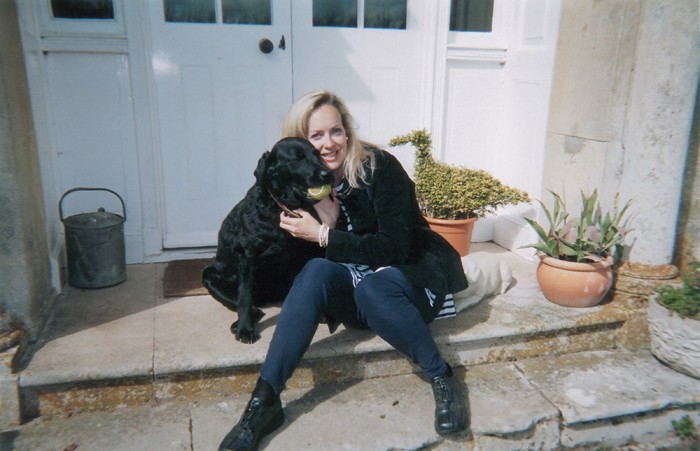
I read a lot and always evangelise about anything which has made an enduring impression on me and so I'd like to recommend these ten wonderful books to you.
WHAT A CARVE UP!
Jonathan Coe
 A riveting satire on the powerful upper classes in eighties Britain as symbolised by the monstrous Winshaw family whose sprawling tentacles reach into every area of public life. Their innocent biographer, Michael Owen, gradually unravels their corrupt grasp on politics, health, newspapers, agriculture and the arts only to discover that they have had a devastating effect on his own life. Though the characterisation is slightly exaggerated in order to entertain, the book is deadly in its accuracy. But Coe is too intelligent, too subtle - and too generous - to make pompous, sweeping judgements about how dreadful the Winshaws are. Instead, he simply shows us them as they are and lets them hang themselves. The spectacle is richly comic, highly entertaining, and often shocking. This is a breathtakingly clever, outrageously funny, and extremely rewarding book which would surely make a marvellous film.
A riveting satire on the powerful upper classes in eighties Britain as symbolised by the monstrous Winshaw family whose sprawling tentacles reach into every area of public life. Their innocent biographer, Michael Owen, gradually unravels their corrupt grasp on politics, health, newspapers, agriculture and the arts only to discover that they have had a devastating effect on his own life. Though the characterisation is slightly exaggerated in order to entertain, the book is deadly in its accuracy. But Coe is too intelligent, too subtle - and too generous - to make pompous, sweeping judgements about how dreadful the Winshaws are. Instead, he simply shows us them as they are and lets them hang themselves. The spectacle is richly comic, highly entertaining, and often shocking. This is a breathtakingly clever, outrageously funny, and extremely rewarding book which would surely make a marvellous film.
 THE ACCIDENTAL TOURIST
THE ACCIDENTAL TOURIST
Anne Tyler
I love Anne Tyler's books and this is my favourite. The hero, Macon Leary, who writes travel guides for Americans who hate travelling, suffers a family tragedy which is threatening to destroy his marriage. He then meets the rather vulgar Muriel, who offers to train his difficult dog, Edward; but Macon finds that Muriel is also retraining him, leaving him decidedly rattled. By turns funny, sensitive, and sad, 'The Accidental Tourist' is a truly life-affirming read. For Muriel's challenge is to teach Macon to live again, but this time to live properly, embracing the chaos and flux - and the fun - of life, rather than remaining stuck in his ossifying old ways.
DISGRACE
J. M. Coetzee
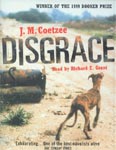 A short, but gripping story about the new political order in South Africa and about the painful compromises made by the whites who choose to stay. David Lurie, an academic, is denounced by his university for having an affair with a student. Willing to admit his guilt, but refusing to give in to political correctness by repenting in public as his dean demands, he resigns and goes to live with his daughter Lucy on her smallholding. Just as he regains his equilibrium he and Lucy are the victims of a savage attack. Though raped, Lucy refuses to denounce her assailants, believing that this is a sacrifice that she must make - as an act of atonement - in the new order of things. Coetzee's prose is spare, but exquisite, and the narrative is engrossing. What is so clever is that although the book is against political correctness, its agenda is a liberal one. This is a profound and very moving novel.
A short, but gripping story about the new political order in South Africa and about the painful compromises made by the whites who choose to stay. David Lurie, an academic, is denounced by his university for having an affair with a student. Willing to admit his guilt, but refusing to give in to political correctness by repenting in public as his dean demands, he resigns and goes to live with his daughter Lucy on her smallholding. Just as he regains his equilibrium he and Lucy are the victims of a savage attack. Though raped, Lucy refuses to denounce her assailants, believing that this is a sacrifice that she must make - as an act of atonement - in the new order of things. Coetzee's prose is spare, but exquisite, and the narrative is engrossing. What is so clever is that although the book is against political correctness, its agenda is a liberal one. This is a profound and very moving novel.
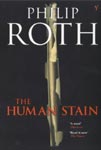 THE HUMAN STAIN
THE HUMAN STAIN
Philip Roth
Another book about political correctness in universities this time in 1990's America, where Coleman Silk, a respected academic has been hiding a secret for fifty years; a secret about his own origins which no-one - not even his wife and four children - knows. A friend, Nathan Zuckerman, sets out, after Coleman's suspicious death in a car crash, to understand how this eminent man managed to fabricate his identity, and discovers how that carefully controlled life came unravelled. A harrowing and completely absorbing novel with a shocking conclusion.
THE SECRET HISTORY
Donna Tartt
 You've probably all read this - it's become a modern classic after all - but for anyone who hasn't I urge you to read it and enter the world of preppy Ivy League Hampden college in New England. There, the hero, Richard Papen, who is from an ordinary background in California, falls in with a group of five gilded youths who are studying Greek with him. Enchanted by their glamour, aestheticism and charm, he watches as they descend from affected ennui into total moral decline as they plan the Dionysiac murder of a local farmer. They are all sworn to secrecy, but one of the group cracks, and another murder is soon being planned. Tartt's plot unravels slowly and yet the book is so intense and gripping that the pages seem to turn themselves. Her prose is elegant and erudite, without being self-indulgent, and her descriptive powers are masterly. The book feels a little like Brideshead Revisited in some ways - the poor outsider attracted to, and yet repelled by - his glamourous, socially elevated peers. But at the same time this is a startlingly original, and timeless read. I hope Donna Tartt's long-awaited second novel, 'The Little Friend', won't disappoint after this awesome debut.
You've probably all read this - it's become a modern classic after all - but for anyone who hasn't I urge you to read it and enter the world of preppy Ivy League Hampden college in New England. There, the hero, Richard Papen, who is from an ordinary background in California, falls in with a group of five gilded youths who are studying Greek with him. Enchanted by their glamour, aestheticism and charm, he watches as they descend from affected ennui into total moral decline as they plan the Dionysiac murder of a local farmer. They are all sworn to secrecy, but one of the group cracks, and another murder is soon being planned. Tartt's plot unravels slowly and yet the book is so intense and gripping that the pages seem to turn themselves. Her prose is elegant and erudite, without being self-indulgent, and her descriptive powers are masterly. The book feels a little like Brideshead Revisited in some ways - the poor outsider attracted to, and yet repelled by - his glamourous, socially elevated peers. But at the same time this is a startlingly original, and timeless read. I hope Donna Tartt's long-awaited second novel, 'The Little Friend', won't disappoint after this awesome debut.
 DIRTY TRICKS
DIRTY TRICKS
Michael Dibdin
A savagely funny thriller set in contemporary Oxford and with an anti-hero who is unlovable, unreliable - in fact thoroughly bad - and yet such brilliant company that you find yourself rooting for him as he sets out to destroy the dull but happy suburban marriage of Denis and Karen, and soon finds that a bit of adultery has somehow led to murder. The first person narration takes us right inside the head of this erudite, Machiavellian, indeed almost diabolical, character. We may not like him, but he is fabulously entertaining and the humour is as black and glittering as anthracite.
FOUR BARE LEGS IN A BED
Helen Simpson
 Helen Simpson's first collection of short stories established her as one of Britain's finest writers, and won her the Sunday Times Young Writer of the Year award as well as a place on the coveted Granta Best of Young British Novelists list in 1990. Loads of you will have read the wonderful 'Hey, Yeah, Right, Get a Life' collection published last year, but I think this is even better. It's concerned with her usual themes of love, marriage, independence, sex and motherhood and there's one wonderful story, written in the style of a Greek play, with a chorus of two midwives. Helen Simpson's prose is elegant and acutely observed; she has a shrewd, darting eye - a bit like Muriel Spark - and no telling detail evades her mischievous gaze. All Simpson's short stories are excellent - she has made a slightly unfashionable form her own - but, like many of her fans, I wish she'd write a novel as well.
Helen Simpson's first collection of short stories established her as one of Britain's finest writers, and won her the Sunday Times Young Writer of the Year award as well as a place on the coveted Granta Best of Young British Novelists list in 1990. Loads of you will have read the wonderful 'Hey, Yeah, Right, Get a Life' collection published last year, but I think this is even better. It's concerned with her usual themes of love, marriage, independence, sex and motherhood and there's one wonderful story, written in the style of a Greek play, with a chorus of two midwives. Helen Simpson's prose is elegant and acutely observed; she has a shrewd, darting eye - a bit like Muriel Spark - and no telling detail evades her mischievous gaze. All Simpson's short stories are excellent - she has made a slightly unfashionable form her own - but, like many of her fans, I wish she'd write a novel as well.
 SAVING AGNES
SAVING AGNES
Rachel Cusk
Helen Simpson is peerless when it comes to writing about motherhood in fiction - and in 2001 Rachel Cusk in 'A Life's Work', was equally acclaimed for her non-fiction treatment of this theme. I love Rachel Cusk's novels too, which are quietly gripping, told with irony and insight, and written in fine, resonant prose. This debut novel, which won her a Whitbread prize, is a lovely introduction to her work if you haven't yet had the pleasure.
FROST IN MAY
Antonia White
 Fernanda Grey, Protestant daughter of a Catholic convert is sent to a convent in 1908 where she soon learns to conform to the rigid authoritarianism and petty cruelty of the nuns whose mission is to 'break' each pupil like a horse - to tame her for Christ. The book remorselessly charts the series of small emotional humiliations they inflict on the heroine, which have entirely the opposite effect to the one they planned. This is a brilliant evocation of convent life - you can almost smell the incense - and the characterisation of the nuns is excellent. I re-read this classic novel every two to three years. If you haven't read it - don't miss out.
Fernanda Grey, Protestant daughter of a Catholic convert is sent to a convent in 1908 where she soon learns to conform to the rigid authoritarianism and petty cruelty of the nuns whose mission is to 'break' each pupil like a horse - to tame her for Christ. The book remorselessly charts the series of small emotional humiliations they inflict on the heroine, which have entirely the opposite effect to the one they planned. This is a brilliant evocation of convent life - you can almost smell the incense - and the characterisation of the nuns is excellent. I re-read this classic novel every two to three years. If you haven't read it - don't miss out.
 THE EYRE AFFAIR
THE EYRE AFFAIR
Jasper Fforde
This is one of the most inventive books I've ever read - a brilliantly clever mix of some existing genres, and yet it's startlingly original too. To get a flavour of it imagine a collision between 'Alice in Wonderland', 'A Brief History of Time', 'The Hitchhikers Guide to the Galaxy', 'Farewell My Lovely', 'Being John Malkovich', and 'Jane Eyre'. It's a wildly whacky and very funny mix. The heroine, Thursday Next, is a literary detective hot on the heels of the evil Acheron Hades who enters the manuscripts of classic books and kidnaps minor characters and holds them to ransom. The cast also includes a pet dodo, some bookworms who eat propositions and semi-colons and then do raNdoM caPiTaliSaTioN, and there are cameo appearances by William Wordsworth and Mr. Rochester. Who would have thought a book set in Swindon could be this entertaining?
And finally...
There is so much wonderful commercial fiction on the market at the moment - the last five years have seen a flowering of hugely entertaining and clever books by Marian Keyes, Wendy Holden, Jessica Adams, Lisa Jewell, Polly Samson, Anna Maxted, Jenny Colgan, Cathy Kelly et al. (no room to mention them all). For a taste of their talents which will surely lead you to their books, I thoroughly recommend the four short story collections published by HarperCollins in aid of Warchild, and No Strings International: 'Girl's Night In', 'Girls Night Out: Boy's Night In', 'Big Night Out' and, most recently, 'Ladies Night'. Four wonderful books in support of a very worthwhile cause. Enjoy.
RIP Woolies

Daily Mail
11th December 2008
Where do you think David Cameron bought his Christmas wrapping paper this year?
His wife's Bond Street stationers, perhaps? Or some achingly fashionable designer boutique? Not exactly.
Last weekend, the Tory leader was pictured emerging from the Notting Hill branch of Woolworths, clutching a huge bag filled with wrapping paper and toys that he'd picked up in the store's closing down sale. I didn't know whether to cheer or despair.
On the one hand, I am delighted that Cameron is a fan of Woolies. On the other, it's so desperately sad that - barring some last-minute miracle - the chain is to disappear from our High Streets.
By a curious quirk of fate, last month I was in the same branch that Cameron visited when I overheard the manager say that trading in the firm's shares had been suspended. It is only a slight exaggeration to say that I felt like crying at the loss of a lifelong friend.
Looking back, the signs had been there for months - the endless '3 for 2' banners everywhere that had begun to feel not so much a tempting offer as a sign of desperation; the low prices that seemed to have become fatally low.
Most alarming was the closure, six months ago, of a huge branch I occasionally visited in North London. And now the axe has fallen on them all.
In probing what's gone wrong, most armchair analysts have blamed the diversity of Woolworths' merchandise for its demise. TV reporters were filmed emerging from a branch looking perplexed, holding up a CD, toy car, girls' cardigan, tin of paint and bag of pick 'n' mix sweets - like the sad relics of some long-ago era.
This puzzling variety, they seemed to be saying, was somehow a failure of the shop. On the contrary, as any Woolworths-worshipper like myself will tell you, this is what gave Woolies its unique appeal.
A true Aladdin's cave
Woolworths is and has always been the ultimate pick 'n' mix store - and not just at the confectionery counter. It was a true Aladdin's cave in which you could find anything and everything - usually on one floor and always at low prices.
Where else could you pick up a garlic press, DVD player, lightbulbs, ream of A4, popcorn maker and Cinderella dressing up outfit, all within 20ft of each other and for less than £50?
But the real Wonder of Woolies - for me, at any rate - was that it remained a paradise for children. Everything that children love was there - toys, sweets, DVDs, computer games, art materials, trendy clothes and books.
In a decade where so many toy shops have been driven under by the retail behemoths Toys R Us, Tesco and Amazon, Woolies was the only place where children could run up and down the aisles, like mine do every Saturday, comparing Barbie dolls with Bratz, Hot Wheels with Road Rippers, and V-Tech laptops with Fisher Price, without fear of reprimand from a jobsworth store manager.
My five-year-old, Alice, adored going to Woolies to spend her pocket money, just as I did four decades ago.
As we walked down my local High Street, even my two-year-old would start straining at his buggy straps. By the time he'd spotted the iconic red 'W', he'd practically burst out of his restraints, like some miniature Incredible Hulk.
It wasn't hard to work out why they liked it so. In Woolworths, my daughter knew that, even at the age of five, she had spending power. She could buy a budget fashion doll or pony for a pound each.
Good behaviour over the week might be rewarded with something I would buy for her, perhaps from the excellent range of Ladybird children's clothes. And, of course, she was always allowed a little something from those bins of multi-coloured pick 'n' mix.
Memory lane
Seeing their enjoyment would bring back my own memories of trips there every Saturday in the Sixties and Seventies. I remember buying my first knitting set and first eye shadow in the days when it sold make-up.
One Christmas I bought my mother an arrangement of plastic flowers, in a white vase, for 50 pence. It was every bit as hideous as it sounds, but she kept it until she moved house last year.
I remember, too, how sought-after Saturday jobs at Woolworths were - not that I was ever lucky enough to get one - and the shocked thrill of seeing naughtier children shoplift from the pick 'n' mix.
Then for a few misguided years I didn't go there, only rediscovering Woolworths in my late 20s as a place to buy presents for nephews and nieces - as well as stationery and household supplies for myself.
Oh, I know Woolworths was sneered at by the Tsars and Tsarinas of style. But only, I suspect, because they never actually deigned to venture inside.
Had they done so, they would have discovered that Woolies has always sold good quality kitchenware including, currently, a retro enamelware bread bin (£7.99) that would not disgrace the most expensive Notting Hill kitchen, some pretty blue mugs (£2) and an elegant porcelain tea set (£4.99).
There were also witty gifts for girls about town, including floral Tools for Girls (£12.50), a Hot Flush Fan (£3) and an Inflatable Husband (£5).
There was also the extensive range of gardening supplies (a winter jasmine that I bought from Woolworths ten years ago still flourishes in my garden), which meant that you didn't have to fight your way through the aisles of some DIY megastore.
Whatever you wanted, Woolworths had it. I am going to miss it like mad. I'll miss the convenience and excellent value of it, and the fact that for all its cheap and cheerful image, Woolworths, like all National Treasures, is simply for everyone.
I'll miss the reassuringly unchanged nature of the shop - its appearance so little altered from my childhood.
I'll miss its friendly young staff, who always looked as though they actually enjoyed working there (how often can you say that about check-out staff?).
Above all, I'll miss going to Woolworths as part of a constant thread that wound through generations.
When I told Alice that the store would almost certainly be closing, she looked stricken for a moment, then asked me if I'd buy her the Snow White doll and horse that she'd been saving up for for weeks. How could I refuse?
I'm only sorry that she won't get the chance to enjoy those same precious moments with her own children one day.
Goodbye, Woolies. You really were wonderful.
A warm and witty novel with a clever twist on Shakespeare
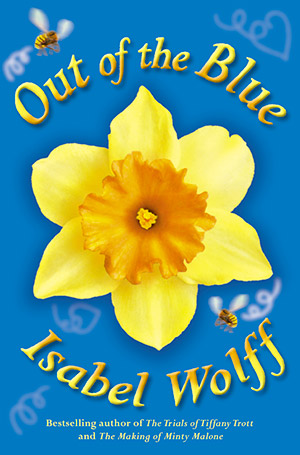
By Morgan Falconer
Published: The Weston Mercury - 11th April 2006
Wolff is everything journalists love. She's bubbly, hysterical, totally radio-ready and always with a cracking good line.
And since she published her latest novel, Out of the Blue a warm, witty romantic comedy she's been cropping up everywhere, from the Today programme talking about Italian women's lust for British men to beaming out of the pages of Metro.
Many years ago Wolff left Cambridge with an English degree intending to be an actress. But rather than risk failure as she puts it she went into journalism with the World Service.
She never intended to write a novel either, but back in 1997 the Daily Telegraph commissioned her to write a spoof column about the dating game.
A year later said paper dumped her for Helen Fielding, something that is clearly, and unsurprisingly, a sore point, and which we aren't to mention. The experience, however, gave Wolff the encouragement to turn her creation, her "little darling", Tiffany Trott, into the subject of her first novel. Out of the Blue is her third.
"I'm writing about all the different life situations," Wolff begins. "Tiffany Trott is single and looking for a bloke. Minty Malone is jilted and trying to get over it. With Out of the Blue, well, I decided that the next one would be married."
But surely that's dull? "Well, what are the problems if you're married?" she asks. I shrug. "Probably boredom, but also the threat of infidelity. I called the main protagonist Faith because it's all about who you put your faith in.
"She puts all her faith in her best friend Lilly, more than she does in her husband. Faith is a bit of a dupe. She's in awe of Lilly who is glamorous and powerful and witty. It's about who owns the wife. Is it the best friend or the husband?"
Out of the Blue is for those of us who savour the office gossip. There are secrets and lies, flings and affairs, love and deception. And over the years Wolff has wormed her way into every nook and cranny of glamour journalism and daytime telly, so she knows both its sparkle and its banality.
There's the magazine editor who has a near-fatal slip on a cover of Vogue ("They're lethal" Wolff says, herself once a victim, "like sliding on ice"), the lover with a dark secret and the dog ("the second most intelligent character in the book") with a castration complex.
But oddly, there are enough subtexts to keep even literary buffs quite contented. The Othello references, I admit, passed me right by. "What I'm trying to do is invert Shakespeare's Othello," Wolff announces triumphantly.
"Othello is the great black military commander who is easily duped by his Machiavellian friend, Iago, who is white. Iago destroys Othello by feeding to him all these poisonous lies about Desdemona.
"Othello believes him and is undone by it. He kills her, then kills himself. In Out of the Blue I've made the brilliant Machiavellist black, and the dupe white," Wolff steams on, "because when I was planning to write the book I was talking to a friend who has a Nigerian mother.
"I said I wanted to create a character who was vengeful but witty and was incredibly successful and glamorous. My friend looked at me and said, 'Please! Make her black'. You see, there are no complex or powerful or interesting black characters in mainstream contemporary fiction.
"Also, there are no black women editing mainstream women's glossy magazines. Not one. For someone like Lilly to be editing Moi!, which is the equivalent of Vogue or Tatler, is incredible.
"Okay, there are lots of black women who are posh they come from rich Nigerian or Ghanaian families but Lilly is poor, she's from the Caribbean. Lilly is both poor and black.
"She's like the scholarship girl. She's Becky Sharpe in Vanity Fair but she's black and she's aiming to be at the pinnacle of the rich white woman's world."
How did the real hero of the anti-slavery movement get airbrushed out of history?
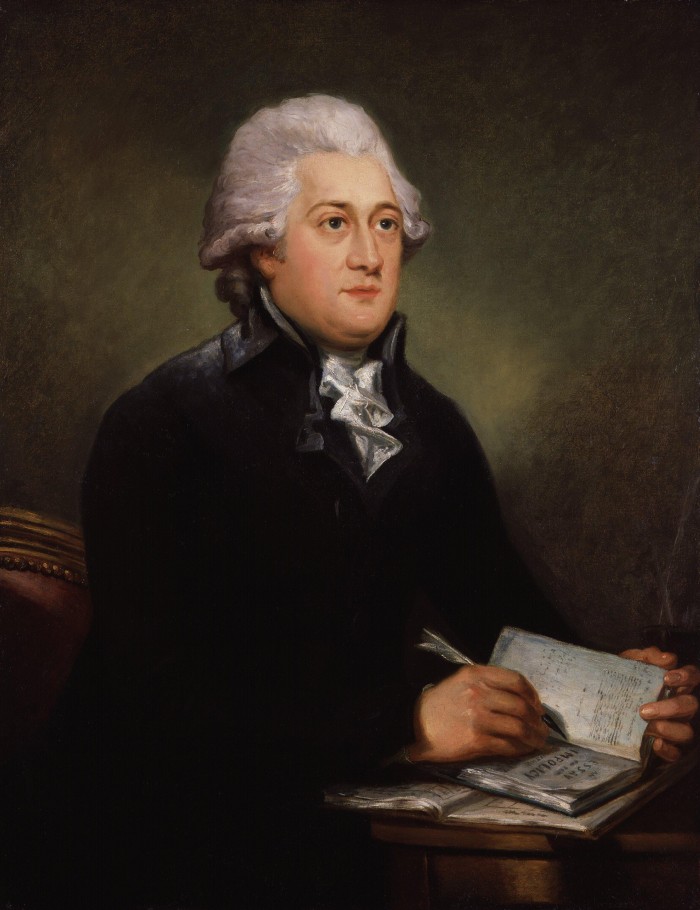
Daily Mail
23rd March 2007
On one of his many investigative visits to Liverpool, then the world's largest slave ship port, Thomas Clarkson stopped at the end of a pier with rage in his heart.
Surveying the dozens of slave ships anchored in the harbour and watching the small boats riding out the heavy gale, his thoughts burned with the sheer inhumanity of life aboard those creaking hulks.
Suddenly, he turned and saw eight or nine burly seamen making towards him. But as he tried to walk away, the gang encircled him, pinning his arms against his sides. Realising their lethal purpose and the watery death that awaited him at their hands, Clarkson struggled to free himself.
"I darted forward," he wrote afterwards. "One of them, against whom I pushed myself, fell down. Their ranks were broken and I escaped, not without blows, amidst their imprecations and abuse."
The year was 1787, and for Clarkson, who was amassing evidence against the slave trade, attempts on his life were not uncommon, especially in the ports. On his many fact-finding trips, he surreptitiously boarded ships, and went into the taverns and custom houses to interview seamen and ships' surgeons about the squalid conditions in which the slaves were held.
His activities made him a hate figure - with his unusual height and red hair making him instantly recognisable - but he continued his work with ferocious zeal.
Quite simply, Thomas Clarkson was one of the greatest men in British history. Which makes it all the more remarkable that today his name, sadly, rings so few bells.
This Sunday's bicentenary of the abolition of the British slave trade has focused on William Wilberforce. Most of the publicity - and the new film Amazing Grace - promotes the myth that Wilberforce was anti-slavery's driving force. But the abolitionists' prime mover, its powerhouse, was Thomas Clarkson.
In his time, Clarkson was a man of colossal reputation. To the poet Samuel Taylor Coleridge, he was 'a moral steam engine' and a 'giant with one idea'. Indeed, he was the only abolitionist to devote his life to the cause of anti-slavery.
Yet thanks to a terrible injustice, his part in the abolition movement was deliberately airbrushed from history to enable Wilberforce to seize the glory.
His achievements are all the more remarkable when you learn that he stumbled on his life's calling almost by chance.
Born in 1760, Clarkson had seemed destined for the Church. But while studying at Cambridge University, he entered a Latin essay competition, the subject of which had to be: Is it lawful to make slaves of others against their will?
Though it was designed to test his Classics skills, that essay was to change his life. Clarkson had known little about the subject until, during his research, he read a book about slavery by an American Quaker, Anthony Benezet.
"In this precious book, I found almost all I wanted," Clarkson later wrote. And what he found shocked him. "It was one gloomy subject from morning to night. I sometimes never closed my eyelids for grief."
Clarkson's resulting essay was full of passion as well as rationality. It conjured scenes of violence and desolation in Africa, of kidnapped slaves chained hand and foot; of men and women dying in dark, fetid ships' holds, ravaged by dysentery and nausea.
Clarkson had expected the competition to be no more than 'an innocent contest for literary honour', but by the time he had finished, it had become a moral crusade.
Riding back to London from Cambridge, after he had won first prize for his essay, Clarkson dismounted from his horse and sat down by the roadside. If the contents of his writings were true, he reflected, then 'someone should see these calamities to their end'.
That moment was a landmark on the path to the modern conception of universal human rights.
Though the anti-slavery movement had generated little public interest, within a few years Clarkson would turn it into the foremost political issue of the day. He accomplished this through sheer determination, augmented by a genius for organisation, and through daringly imaginative publicity.
Clarkson knew that Parliament would never abolish slavery without massive public pressure, since the trade was as important to the economy then as the oil industry is to Britain today.
The ports of Liverpool, Bristol and London were largely built on slavery. There were huge vested interests in the profits the trade generated, from the enormous personal fortunes built up by the plantation owners, right down to the brothels and boarding houses that served the ships' crews.
So Clarkson planned a national campaign. He translated his essay into English and had it circulated widely. But what he needed was a figurehead, a legislative spokesman who could drive the issue forward in Parliament. To that end, he singled out William Wilberforce, a young MP known for his interest in moral issues.
Clarkson besieged Wilberforce. He left a copy of his essay at his London home and lobbied him vigorously, offering a well-orchestrated plan of action and a nucleus of supporters drawn largely from Quaker circles.
Critically, he knew that Wilberforce's political career would not suffer if he took up the cause, since his home constituency, Hull, had no involvement in the slave trade.
In May 1787, Wilberforce, encouraged by his friend and mentor William Pitt the Younger, capitulated to Clarkson's persistence. It was the start of a friendship that was to endure for almost 50 years.
Wilberforce became a powerful Parliamentary spokesman on antislavery, but it was Clarkson who got him the facts and eyewitness stories that gave substance and urgency to his speeches.
By the end of a five-month tour of the nation's docks, Clarkson had collected the names of more than 20,000 sailors who had served on slave ships and acquired first-hand accounts of the squalor and brutality on board.
He learned that as many British seamen perished on each voyage across the Atlantic as Africans (about 20 per cent) since they succumbed to the same diseases that took hold in the squalid conditions.
Crucially, this enabled him to argue that slavery was not just immoral, it was uneconomic - an argument the Establishment was far more likely to take heed of.
And as he toured the country, Clarkson drew together disparate groups of abolitionist believers to create a national protest movement.
At inns and in private drawing rooms, he described the ghastly day-to-day conditions on the ships. Mixing showmanship with righteous zeal, he demonstrated to his audiences the hideous apparatus of the 'man-merchants' - the traders who profited from inhumanity.
In Liverpool, he had bought manacles, leg-irons, whips, thumbscrews and a speculum orbis, a vice used to wrench open the jaws of slaves who refused to eat. By the end of that first tour, petitions were pouring into Parliament, giving Wilberforce the ammunition he needed. Manchester's petition alone had 11,000 names on it, more than a fifth of the city's population at the time.
Clarkson's conviction never wavered, despite the threats of those who wished to silence him. During a campaign that would last for more than 20 years, he travelled an astonishing 100,000 miles up and down the country, alone and on horseback. As he described it: "I lived in hope that every day's labour would furnish me with that knowledge which would bring this evil nearer to its end."
Alongside his collection of torture instruments, Clarkson also carried a small wooden box filled with beautiful African artefacts to disprove the prevailing theory that black Africans were culturally inferior to white Europeans, and also to prove that trade with Africa was a viable alternative to slavery.
He also distributed widely a cross-section diagram of a slave ship, the Brookes, showing the hideous reality of 482 shackled slaves crammed into the hold. Known as The Print, the diagram was one of the most effective pieces of propaganda ever produced and came to hang in many homes. But Clarkson had other devices, too.
In 1788, Josiah Wedgwood, a Quaker and a member of the Abolition Committee, offered Clarkson and his colleagues a porcelain pendant depicting a slave in chains with the inscription: 'Am I not a man and a brother?'
Recognising the publicity value of this motif, Clarkson encouraged women, who could not vote, to show their solidarity with the cause by wearing brooches and bracelets with the same design. He handed these out at public meetings, drily observing that, for once, fashion was being used to promote justice.
In a similarly radical innovation, he distributed William Fox's pamphlet advocating a boycott - one of the first - of West Indian sugar that had been grown on plantations which used slave labour.
Thanks to Clarkson's combination of dogged determination and visionary daring, Wilberforce's anti-slave trade Bill became an Act of Parliament on March 25, 1807. The vote was carried and a dark chapter in our island story brought to a close.
But Clarkson didn't rest there. Together with Wilberforce, he began a campaign to have slavery banned throughout the Empire - a goal that was finally achieved in 1833.
In August of that year, Wilberforce died of a flu-related illness. And it is at this point that Clarkson's rightful place in history was snatched from him.
Five years after Wilberforce's death, his sons, Robert and Samuel (a bishop, no less), published a five-volume biography of their father, A Life Of William Wilberforce. Clarkson, by then 78 and half blind, read the book with astonishment and dismay.
Robert and Samuel, to whom he had lent letters and books to aid the research for their biography, suggested that far from originating the abolition campaign, Clarkson had been nothing more than a hired hand or paid agent who ran errands for their father.
Wherever possible, the brothers had ignored him; where they could not ignore him, they disparaged him and utterly diminished his role as the principal force in the abolitionist movement. They even refused to include any of the many affectionate and respectful references to Clarkson in their father's correspondence.
What had motivated them to make such an attack? '"I think they were shocked when they were doing their research to discover that their father, whom they idolised, was not, as they had always believed, anti-slavery's prime mover," says Clarkson's biographer, Ellen Gibson Wilson. "They had been very young and had no idea that Wilberforce was simply one important part of a very effective team. This hurt them terribly, so they determined to credit their father far beyond anything he would ever have claimed."
The only consolation for Clarkson was that when the book came out, there was a public outcry that he had not received due recognition. In a conspicuous display of solidarity, he was awarded the Freedom of the City of London. Humbled by the response, Wilberforce's sons eventually apologised in private to Clarkson and admitted that "too jealous a regard for what we thought our father's fame led us into a tone of writing which we now acknowledge was practically unjust".
Magnanimous to the last, Clarkson told them that he harboured no unfriendly feelings towards them, which seems remarkable considering that the apology was never made public, nor did Robert and Samuel correct in later editions the inaccuracies and innuendos that the book contained.
Thirty thousand copies of the Wilberforce book were sold, and it later became an authoritative source for historians.
As a result, the myth prevailed that William Wilberforce had abolished the slave trade almost singlehanded. Clarkson, an outstanding man, had been not just eclipsed but lost to history.
If this month's bicentenary serves any purpose, then, it should be to reinstate Clarkson to his rightful place as one of the greatest of British heroes - an ordinary man who achieved truly extraordinary things.
Top 10 books set in the Midlands

Guardian Unlimited Books - 12th September 2005
Novelist Isabel Wolff was born and brought up in Warwickshire and is the author of six bestselling romantic comedies, the latest of which is A Question of Love. She chooses her top 10 books set in her old stamping ground, the Midlands.
 THE ROTTERS' CLUB!
THE ROTTERS' CLUB!
Jonathan Coe
Coe goes back to his Brummie roots in this novel about a group of grammar school boys who inherit the editorship of their school magazine. Set against the backdrop of the Birmingham pub bombings, strikes at Longbridge, and the collapse of Old Labour, it's a clever and touching comedy of personal and political upheaval. What a Carve Up! is also brilliant, but I found this a more satisfying, involving read.
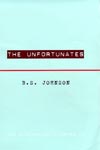 THE UNFORTUNATES
THE UNFORTUNATES
BS Johnson
This extraordinary, experimental 'book-in-a-box' was published in loose-leaf format so that the separately bound chapters can be read in any order, paralleling the random nature of human thought. It's about a journalist who goes to Nottingham to cover a football match, but who spends the day remembering happier times spent there with his best friend, Tony, who is dying of cancer. Heartbreaking.
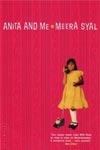 ANITA AND ME
ANITA AND ME
Meera Syal
A poignant and amusing novel about a nine-year-old Punjabi girl's childhood in a rural mining village near Wolverhampton. Meena's family are the only Asians in the village, and Meena's witty, sly insights about some of their culturally crass neighbours are delicious. The novel is particularly touching on the emphemeral nature of childhood friendships, and, unusually, was turned into an equally wonderful film.
 MIDDLEMARCH
MIDDLEMARCH
George Eliot
Although this "Study of Provincial Life" is set somewhere in "the English Midlands", Middlemarch is probably a smaller version of Coventry, where Eliot lived with her father for 10 years. It's the story of the beautiful, rich, but hopelessly idealistic Dorothea Brooke. She could marry anyone, but chooses the old, ugly, but intellectual vicar, Edward Casaubon - with disastrous results. It might be 800 pages long, but it's still an engrossing, pain-free read.
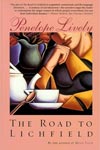 THE ROAD TO LICHFIELD
THE ROAD TO LICHFIELD
Penelope Lively
In this suspense-filled novel, Anne Linton is a middle aged history teacher married to a stodgy barrister. Her father is in a nursing home, so she begins the fortnightly drives to Lichfield to visit him. She also has to clear the old family house, and while doing so she discovers that secret payments have been made to a woman who was her father's mistress for many years. Anne's entire perception of her father's life - and her own - begins to change.
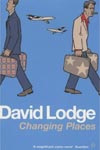 CHANGING PLACES: A TALE OF TWO CAMPUSES
CHANGING PLACES: A TALE OF TWO CAMPUSES
David Lodge
A hilarious satire on academic life in Britain and the US, in which Phillip Swallow, an academic from the redbrick University of 'Rummidge' (Birmingham) does an exchange with Professor Morris Zapp from the plate glass Euphoria State University (Berkeley). Set in 1969 amid student revolutions and moon shots, it established Lodge as a writer who could be simultaneously serious and entertaining.
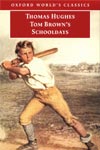 TOM BROWN'S SCHOOLDAYS
TOM BROWN'S SCHOOLDAYS
Thomas Hughes
Hughes' famous coming-of-age tale exposes the cruelty of English public schools before Arnold's radical reforms. Tom Brown struggles for survival in a school where mob-rule prevails, and where the older boys - particularly the sadistic bully, Flashman - torment the younger ones without restraint. Though necessarily didactic, and sometimes cloyingly sentimental, it's also highly entertaining, not least because Flashman is so wonderfully despicable.
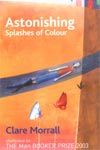 ASTONISHING SPLASHES OF COLOUR
ASTONISHING SPLASHES OF COLOUR
Clare Morrall
A story of heartache and loss set in Birmingham, the novel centres on unconventional Kitty, a children's book critic, and her eccentric family. Something terrible has happened to Kitty; she goes to the school gates with all the other parents, but it soon becomes clear that she has no child - her son, Henry, having died at birth. Despite the depressing premise, it's an engrossing, and even enjoyable, read.
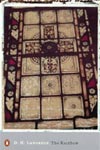 THE RAINBOW
THE RAINBOW
DH Lawrence
The Rainbow chronicles the lives of three generations of the Nottinghamshire Brangwens, setting their passionate human relationships against a cold industrial culture. It begins with Tom Brangwen and his hasty marriage to the Polish widow, Lydia, and spans the next 60 years. The stories of Ursula and Gudrun Brangwen were continued in Women In Love.
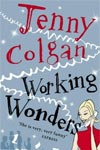 WORKING WONDERS
WORKING WONDERS
Jenny Colgan
The Rainbow chronicles the lives of three generations of the Nottinghamshire Brangwens, setting their passionate human relationships against a cold industrial culture. It begins with Tom Brangwen and his hasty marriage to the Polish widow, Lydia, and spans the next 60 years.
Botox Ballot Box

New Statesman
4th April 2005
Observations on illusions
I'm sitting in the Wimpole Street surgery of Jean-Louis Sebagh - the Botox "king". He lives in Paris but spends three days a week in London, smoothing the brows of the celebrated and the civilian. Demand for his deft needlework is brisk. "I've had some very agitated ladies on the phone this morning," his personal assistant, Dale, confides. "But I explain that they'll just have to come in and wait." According to Dale, most of the women who flock to Dr Sebagh are neither rich nor royal, but "normal" forty- and fifty-somethings anxious to stop the clock. They are clearly also afflu-ent, because this supposedly wondrous anti-wrinkle procedure costs £300 a pop.
So what does Botox Woman make of Tony Blair? "He's completely plastic," says "Louise", 42, an interior designer. She explains that she's just had Botox in her brow, and has also had her nose-to-mouth lines plumped up with Restylane, an injectable "filler". "Blair is so artificial," she goes on as we chat in the VIP waiting room. I ask her whether she feels uncomfortable having the most poisonous substance known to man injected into her face. "Not at all - Botox is lovely - but Blair's like a puppet," she replies. "Those staring eyes. That fixed grin. I look at him and - no - I don't actually," she corrects herself crossly. "These days I turn him right off."
What accounts for her disillusionment? "Oh . . . everything," she sputters. "The NHS - the whole terrorist . . . thing. Immigration is way up there, and as for Iraq - weapons of mass destruction? If you ask me, there's more botulinum toxin in this surgery than Saddam Hussein ever had."
I ask her whom she would prefer to see as prime minister. "I don't know . . . Maybe Gordon Brown. He's clever," she muses. "But then his hair's so awful - and that funny thing he does with his mouth." Perhaps he should have it Botoxed, I suggest. Louise looks horrified. "No, because then he'd be unable to eat. But there's no competition," she goes on. "We do need an alternative to Blair, someone like, I don't know - Pierce Brosnan or Colin Firth," she says happily. "Now he'd be fantastic . . ."
Next I talk to "Caroline", who owns a chain of hairdressing salons. At 45, her features are as smooth as a baby's rear end. "Oh, that's not Botox," she explains. "I've just had a facelift." She pats her hairline. "I've come in to have my stitches out." Isn't she a bit young for that? "No," she replies in a matter-of-fact way. "Because my face had just . . . gone. And once your face has gone, well," she shrugs, "that's it, isn't it? But now I look like I did at 35." Caroline says that she distrusts Blair. "He's not true to himself. That's why women are deserting him - because he's not natural, and we don't like that."
Two days later I'm at the Saks salon in Covent Garden, chatting to "Fiona", 27, as the practitioner Diana hovers over her recumbent form with a syringe. "Why are you having Botox?" I ask Fiona as her brow is punctured.
She replies: "Because I'm getting a line in my forehead, and this will stop it developing in the way that no amount of Creme de la Mer ever will."
The procedure over, she sits up, blinking like a Furby, while Diana applies a soothing gel. "Tony Blair's had it, you know," says Fiona as she gets off the table. "Not on his face - in his armpits. For hyperhidrosis," she adds knowledgeably. "Excessive sweating."
I ask her if she voted for Blair last time. "I did. But I won't this time." Why not? "Because of the tsunami." That was hardly his fault, I say. "It wasn't," she agrees fairly. "But when it happened, he was on holiday. Did he come straight back and sort it all out? No," she says. "He did not." The faintest shadow of a frown crosses her brow. "I'm afraid I lost a lot of confidence in him then."
The writing at the ball
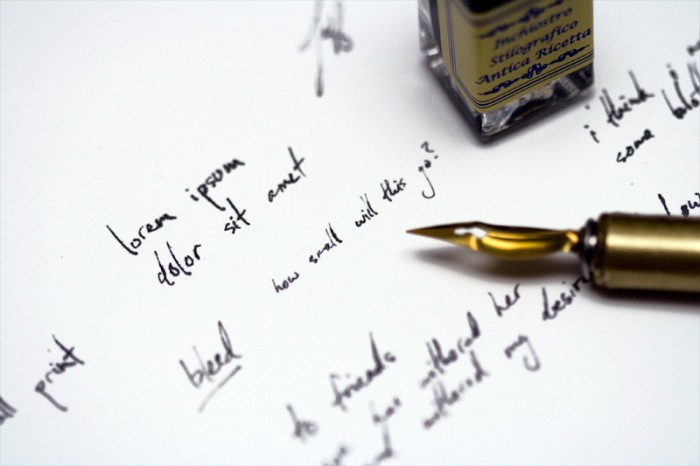
Isabel Wolff finds it is the season for graphology
Independent
24th July 2004
'PEOPLE these days expect a lot more for their money than dinner, a disco and a raffle,' said Judy Tarlo, the PR consultant for the Action on Addiction charity ball. We surveyed the crowds of prosperous-looking middle-aged men and women thronging through the ballroom of the Grosvenor House Hotel. It had been turned into a funfair for the evening. There was a helter- skelter and a rainbow-striped big top, and the guests were being greeted by jesters, fire-eaters and stilt-walkers.
'I mean, most of these people probably go to about 20 balls a year,' Miss Tarlo continued. 'They can get pretty blase, so the Action on Addiction committee decided to do something totally different.'
A passing waiter offered us a mini-hamburger that was about an inch across. 'That's actually the starter for supper,' Miss Tarlo informed me. 'Everything here is sponsored. The first course is sponsored by an advertising agency, the main course by the Bankers' Trust, the pudding by a firm of solicitors, and the entertainments by the Reuter Foundation. The charity is hoping to make a clear profit of about pounds 50,000 tonight.'
By now the fairground stalls were filling up. The longest queue by far was for the graphologist, Emma Bache. 'Graphology is quite a new thing,' said Miss Bache. 'My main problem is educating people about what it is. I tell people what I do and they think I'm a pathologist - cutting up dead bodies]'
It seems that graphology (the interpretation of personality through handwriting) has become the most fashionable amusement at smart parties: Miss Bache said she had already entertained guests at the birthday bashes of the Duke of Roxburghe and Lord Lichfield.
'Ooh, it's Gypsy Rose, let's cross her palm with silver, shall we?' said an already inebriated man in a white tuxedo as he staggered past the table. 'You are going to meet a tall dark stranger in a London hotel . . . Oh my God,' he expostulated, clapping his hand to his mouth in mock embarrassment, 'I thought she was a bloody fortune-teller.'
'See what I mean?' said Miss Bache with a sigh as her first client, a bosomy blonde in a pink sequined dress, sat down with a slightly apprehensive air. 'Write anything, it really doesn't matter what,' she said, handing her a small piece of blank paper. 'I need about three or four lines. And please use your own pen, if you have one.' The woman delved into her patent leather handbag, and then scribbled rapidly.
'This is a very original hand,' said Emma. 'It's very creative and there's a lot of sensitivity. But you can be quite sharp and critical towards other people. You're also very straightforward, certainly not one to beat about the bush.'
'Dead right,' interjected the woman's husband with a short, sardonic laugh. 'Very true. Absolutely accurate. Outstanding analysis I'd say]'
'How on earth can you assess someone's character from their handwriting?' I whispered to Emma, as a juggler strolled by with a spinning blur of coloured balls. 'I look for the most dominant characteristics,' she replied. 'For example, the slant, the pressure, the letter size, and spacing. It's all a question of how they're combined.'
'You're a very dreamy, idealistic sort of person,' said Emma to a young American woman, who turned out to be the wife of the swimmer Duncan Goodhew. 'There's great energy here, but you're also quite restrained and tense.'
'I'm always tense,' said Mrs Goodhew with a laugh.
A voice over the Tannoy called everyone down to supper, where monocyclists whizzed to and fro between the tables. In the far distance of the ballroom I could make out Sir Leon Brittan, Richard Branson and Cecil Parkinson. 'Ooh look, knives and forks,' said a young man as he seated himself at our table. 'I thought we'd all be given syringes]' 'What's the first prize in the raffle?' inquired another, 'A jeroboam of methadone?'
As couples took to the dance-floor after supper, Miss Bache continued her rounds. 'Here, what do you make of this?' said Richard Branson, handing her a piece of paper covered with a large, round hand.
'There's a lot of secrecy here,' she said. 'You don't waste your time, you want to move ahead quickly. You're very straightforward, flexible, and not overly emotional.'
'Did you buy all that?' I asked him, raising my voice above the music.
'Yes,' he said. 'But only because she was quite flattering. I wouldn't have believed it for a second if she'd said anything remotely unpleasant.'
'I can't help noticing that you're fairly polite about everybody,' I said to Miss Bache. 'I mean, if you noticed that someone had obvious criminal, psychopathic or suicidal tendencies, would you tell them?'
'No I wouldn't, she replied, lowering her voice. 'At least not in this kind of context. If anyone wanted a really detailed nuts-and-bolts analysis then they'd have to come to me on my own. I've been hired to entertain people.'
Incomparable Chocolate Mousse

Celebrity square meals #28:
Isabel Wolff's 'Incomparable Chocolate Mousse'
Independent
13th March 2004
Serves 6
My mother cut out this recipe from a newspaper in the early Sixties and wrote it out for me. I still use her handwritten recipe. It's at least 40 years old but I do believe the epithet still fits very well. It's the best chocolate mousse I've ever had and my best creamy, fattening dinner-party pudding - always a great success. It's not complicated and I love making it. There's something therapeutic about whipping cream. And folding, and separating egg yolks, tipping them from hand to hand. It's relaxing to do. Make it several hours beforehand or the night before.
I keep Bournville or Sainsbury's dark chocolate in the freezer for it but have used Green & Black's Maya Gold as an interesting alternative. The butter must be unsalted. I make it in a big bowl then people can have as much or as little as they like. You don't need very much. It's just delicious - a force majeure.
125g Bournville or other dark chocolate
75g icing sugar, sifted
50g unsalted butter
4 large fresh eggs
200g double cream
Melt the chocolate slowly in a bowl over a saucepan of water, then stir in the icing sugar. Remove from heat, and mix in the butter then, vigorously, the egg yolks. Allow to cool. When quite cold, fold in freshly prepared crème Chantilly, made by whisking the cream with a little icing sugar. Pour into a serving bowl and chill for several hours. Freeze to make delicious ice cream.
Isabel Wolff's latest novel 'Behaving Badly' (HarperCollins, £6.99) has been shortlisted for the Parker Pen Romantic Novel of the Year award
In defence of romance

New Statesman
2nd March 2004
Imagine you are playing one of those word association games and someone says "romantic novelist". What image is most likely to pop up? Middle-aged, middle class, pink hat, string of pearls?
Romantic fiction, more than any other genre, has suffered from stereotyping of the most unflattering kind. It is all too often seen as vulgar and second rate - at its best, escapist and opiate; at its worst, downright risible.
Yet it is a far wider, richer and more honourable literary tradition than it is ever given credit for. It includes some of the greatest novels ever written - Jane Eyre, Anna Karenina, Pride and Prejudice, and Wuthering Heights. Yet when people think of romantic fiction do they think of the Brontës, Austen or Tolstoy? No. They think of Barbara Cartland and Mills and Boon.
Romantic fiction is uniquely unfortunate in that no other literary genre is judged by the worst examples, rather than the best. No one feels the need to sniff at historical fiction or science fiction, however dubious the quality - those genres are accepted for what they are. But it's hard to get romantic fiction reviewed or discussed in a way that isn't patronising, which is a problem that, say, crime writers don't have.
"People are incredibly insulting about romantic fiction," says Penny Vincenzi. "I'm often told by complete strangers at dinner parties, 'Oh, I'd never ever read any of your books.' If I was a fashion designer, I don't think they'd say, 'I'd never wear any of your clothes.'"
I recognize Vincenzi's frustration all too well. My own novels are romantic comedies. They're about women who are in the throes of relationship problems, or facing huge moral dilemmas. Comic on the surface, they are, at heart, love stories - and that's precisely what I want to write. I am proud to be writing romantic fiction.
I write about the tangled affairs of the human heart. After all, the search for someone to love, and who will love us in return, is the most important - and difficult - adventure of our adult lives. Yet I cannot keep count of the number of times people have said to me, "Of course, I don't normally read that sort of book," and then add with an air of impertinent surprise, "But I really enjoyed it."
I often wonder at this dismissive attitude. Part of the problem, undoubtedly, is the simple fact that the genre is so huge. Romantic fiction accounts for 70% of all paperbacks sold in the UK; thus, there are bound to be a proportionally larger number of books that are simply no good.
I suspect the chick-lit boom has not helped either. Chick-lit, with its emphasis on thirty-something, urban romance, could have been a shot in the arm for romantic fiction. But the variable quality of many of the books, and the concomitantly bad press, has had precisely the opposite effect.
The problem is also one of perception, says Nicholas Clee, editor of the Bookseller. "If you say you write crime or thriller novels everyone knows what you mean. But if you say you write romantic fiction, then people have a mental image that is more limited than the genre actually is. They won't necessarily think immediately of Philippa Gregory, Jilly Cooper or Anita Shreve, although those are all romance authors in one way or another. They'll probably think of Mills and Boon."
Nor, sadly, will they think of Brideshead Revisited, an intensely romantic book, or the brilliant Music and Silence by Rose Tremain. They won't think of Far from the Madding Crowd, or of Georgette Heyer, or Rebecca; they won't think of the marvellous Gone With the Wind.
I suspect, too, that the problem is one of gender. Perhaps the reason that romantic fiction is given insufficient respect is that it's almost exclusively written by, and read by, women. More importantly, its storylines offer women emotional fulfilment (that is the premise of romance), as if to say that that is what women deserve.
However, if a man writes a romantic novel then a very different attitude prevails. Sebastian Faulks's Birdsong, to my mind, is no more than a piece of excellent romantic fiction. So is Captain Corelli's Mandolin by Louis de Bernières. Had they been written by women I suspect they would not have been heaped with the literary praise that they were.
I remember writing about the negative stereotyping of romantic fiction as a journalist in 1996. Now, eight years on, and on the other side of the industry, I can see that nothing has changed. Romantic fiction will carry on being dismissed in literary and academic circles, and its detractors will still characterise it as fluff.
But, on the flip side, it will also continue to be the biggest selling genre both in the UK and around the world, and I am delighted to be part of that.
Queen of Sofadom

Isabel Wolff on the doyenne of daytime televison who makes a mint from being herself
Independent - 7th November 2003
THAT IS absolutely brilliant,' breathes Anne Diamond excitedly as she inspects Keith from Essex's new hairpiece. 'I mean it's really fantastic,' she repeats, flashing him an encouraging smile. Keith from Essex is as bald as a coot but is undergoing a trichological transformation during a 'Toupee Makeover' on BBC1's daytime show, Good Morning . . . With Anne and Nick. He smiles sheepishly as the camera pans in for a closer look. 'The front is breathtaking,' Anne confides to her million viewers in an awestruck tone. 'Keith,' she says with a giggle, 'do you mind if I have a little feel?' Anne Diamond is having an extremely busy morning. In addition to assessing toupees she has introduced a harrowing report from Great Ormond Street Hospital, helped chair a phone-in on how to make a will and introduced Good Morning's real-life telly-romance, 'A Touch of Love'.
She has also just received, on air, a People Of The Year award for her campaigning on cot death. For a moment her composure seems to crack as she remembers the death of her own four-month- old baby, Sebastian, in the summer of 1991. The jaw stiffens and the facial muscles contract. Tears threaten to well up in her hazel eyes. But she quickly regains her composure, the bright smile returns in an orthodontic flash and she is soon chatting away once more with co-host Nick Owen. For the best part of two hours, and with very little help from the autocue, she has bantered and giggled, and wittered and chattered and sympathised and rolled her eyes heavenwards at some of Owen's bad jokes. It is a performance of relentless sparky cheerfulness, fascinating to watch.
Afterwards, in her cluttered office, she explains how she has learnt to control her emotions when discussing cot death on television. 'I've developed a technique,' she says. 'Because I've had to. It's not easy, but I've simply had to learn a way to do it.' Anne Diamond is a Pro. That is why, at 39, she is the Queen of Sofadom, the doyenne of daytime TV. Anybody in broadcasting will tell you that and will say it with genuine admiration. She is unflappable, fluent and fast. She gets on well with colleagues; if she has rows with them, they are never personal. She also looks pleasant on screen without being so attractive that she excites envy in women or distraction in men. She is bright, without being intimidatingly intelligent. Married with three sons - the latest was born in May - she is simply the chirpy young mum you might bump into in Safeway.
For projecting this image on daytime television she gets about pounds 200,000 a year. For her column in the Daily Mirror she gets about pounds 90,000. Last week, it was announced that she has another contract - worth about pounds 220,000 - to promote Disney toys.
ANNE Diamond was born in respectable middle-class obscurity in Somerset where her father James, a Scotsman, was a teacher. She had no plans to enter journalism. 'My only ambition then,' she admits, 'was to become a concert pianist, something at which I signally failed.' While working at a Minehead holiday camp one summer, a waiter suggested a career in journalism. She started work as a reporter and music correspondent on the Bridgewater Mercury in Somerset, then moved to the Bournemouth Evening Echo. 'I always had my eye on the next step ahead,' she admits. 'Ambition in men is rather admired isn't it? But if you apply it to a woman it implies that you are hard and cunning and ruthless and I really don't think I am. But I have always targeted something I have liked to reach for and gone out and done it.'
In 1979, she joined the now-defunct ATV as a reporter, continuing as a news presenter on its successor, Central Television. But she abandoned provincial popularity for the chance of bigger and better things in London. 'Why be a princess,' she is reputed to have said then, 'when you can become a queen?' Hired by the brand new TV-am in 1982 she got her first big break when the Famous Five celebrity presenters stomped out of Camden Lock. Within weeks the unknown reporter with the cheeky chipmunk face had taken over from Angela Rippon and Michael Parkinson. Anne Diamond was breakfast television.
Did she cultivate her image? 'All the programmes I have ever presented have been live,' she points out. 'And on live TV you can't ever be anyone but yourself. It isn't possible to cultivate a particular image because there simply isn't time to act. So if I did have a girl-next-door image when I was on TV-am it's probably because then, 10 years ago, I was the girl next door.'
But she is not without hard edges. In 1987 she provoked Denis Healey into calling her a 'shit' and TV-am a 'shit company' by mentioning his wife's private hip operation during an interview about the Thatcher-Gorbachev summit. 'I got it full in the face fair and square,' she says with a philosophical shrug. 'But I would have been negligent not to have asked him that question.' Anne Diamond is unafraid of confrontation. In 1989 she took six months off to have her second child, Jamie. When she returned to work she found her appearances on TV- am had been halved, so she went to court and fought for more air- time. She obtained a pounds 250,000 pay- off and her final departure from TV-am.
It was during her period at TV- am that, much to the discomfiture of its board, she became Britain's most famous unmarried mother. In 1986, she became pregnant by Mike Hollingsworth, who was already married with a young daughter. It would take three years and a second baby before she and Hollingsworth became husband and wife. 'I'm not particularly in favour of women who are unmarried getting pregnant,' she says now. 'But at the time I wasn't a typical single mother. I was an extremely privileged one. I was earning a great deal of money and I had my own flat and a car. And I was with the father of the child, so I was hardly an average case.'
What does she think of the Government's present offensive against single mothers? 'The Government makes these sweeping generalisations,' she says, adjusting her multi-coloured knitted jacket. 'To say that all single mothers are sleazing off the state is absurd. It is probably true of some, but is grossly untrue of the majority who are just trying to cope as best they can with the cards which fate has dealt them.'
BBC1's Good Morning programme began last year. Hollingsworth is editor, Diamond is co-producer and, with Nick Owen (a colleague from TV-am), co-presenter.
Is she entirely happy, I ask, with the peculiar mix of items on the programme, the bizarre juxtaposition of the trashy with the tragic? 'I'm not always comfortable with it,' she says. 'The gear changes don't always work. But then if you open a newspaper you'll get the same kind of mix on the page that we have on the show. You'll get the serious and the trivial, the important stories and the jokes, the comment column and the cartoons all together. Any good sub-editor will tell you that that's what makes a page live.
So you've got to get that same feeling in a topical television programme.'
But some television critics loathe the format, particularly the often emotional phone-ins. 'I really don't object to daytime TV,' said one, 'because it can open up quite difficult subjects. What I dislike about Good Morning is the smash-and-grab approach to human emotions. They'll do a phone- in on, say, hysterectomies and cover it with this carapace of care. Myra from Croydon calls in and gets 30 seconds to talk about her ghastly experiences. Ann and Nick look sad and concerned and they say 'Well, thank you Myra from Croydon'.'
Anne Diamond is polite and matter of fact, serious and articulate, businesslike and stunningly cheerful. But when I mention the criticism something approaching rage distorts her features. 'TV critics go on as though daytime television was the scum of the earth but it's doing an awfully worthwhile job,' she spits. 'It annoys the hell out of me that some of them talk about it as though it's nothing. They don't realise how insulting they're being to the millions of people who tune in and love watching. We have a very loyal audience.'
She also defends the power of daytime television to educate. Her successful campaign to warn parents about how to prevent cot death - the number of cot deaths has since been halved - was largely conducted on daytime TV. She starts to talk about Sebastian and, for a second, there are tears in her eyes. 'I have learnt to be, in a strange way, joyful about that now,' she says. 'And if I was told that I could have him again, even if only for four months like I did, I would still be happy to go ahead.'
Then Mike Hollingsworth enters. The interview is over; she has to collect her two older children from school. 'Are you really as cheerful as you seem?' I ask. 'Yes I am,' she says. 'You've got to be, otherwise you'd end up slitting your wrists. Anyway, I do think that there's still an awful lot to be cheerful about.'
Praising Chick Lit
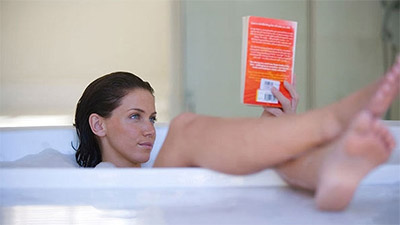
Evening Standard - 14th July 2003
"I read your last book," a female acquaintance confided at a party recently. "Really?" I said casually, idly hoping for some complimentary comment.
"I was surprised at how good it was," she concluded goodnaturedly. I tried to cover my slight annoyance with a smile. "I don't normally read that sort of thing," she went on with sledgehammer sensitivity. "But yes," she mused as she sipped her Pimm's, "I thought it was really quite good."
The woman wasn't being deliberately impertinent - her amazement was genuine; but I've long since got used to such remarks. For if you write the kind of contemporary women's fiction I do - light, commercial and prettily packaged - the assumption is that it can't be much cop. Barely a week goes by without some sneering reference to chick-lit which has become all but a term of abuse.
Why this should be is not clear - simple envy, perhaps, at our huge sales and concomitantly large advances. Or the belief that because these books are easy to read, they're easy to write. They're not. But I think there is something much deeper at work: a snobbish distaste for popular writing full stop.
It is as though there is this wondrous thing called "literary fiction" that is pure and untainted (however dreary), against which all massmarket fiction is set. When people ask me what sort of books I write, I reply that they are romantic comedies about self-deceiving women - women who fail to acknowledge the mess they're making of things - because that's precisely what they are.
Whoever wants to call them " chicklit" - which is no more than a marketing label - can do so, I really don't mind. Those who dismiss the genre wholesale fail to recognise that a lot of chick-lit is good. Many of the best are very well written. Take the opening of Claire Calman's Love is a Four Letter Word, for example: "She sees herself fall in slow motion, the toe of her shoe catching on the edge of the paving-stone, her arm reaching out in front of her, her hand a pale shape like a leaf against the sky."
Or Ralph's Party by Lisa Jewell: "The girl standing in the doorway was tiny, about 5ft 2in, black curly hair held on top of her head with pins and clips in some complicated but very feminine style that looked as if it should have sported ivy wreaths ..."
The better chick-lit novels are also well executed: they are witty, polished comedies, that have come far from Bridget Jones. For chick-lit no longer reflects the self - absorbed, Chardonnay --fuelled lives of the man-less, c a lor ie --counting, thirty-something. The genre has morphed into something else.
There is a myriad of subgenres - henlit for the over-35s (Jane Green); mum-lit for the child-encumbered (Allison Pearson); lad-lit for single men (Nick Hornby) and dad-lit for fathers (Mike Gayle). These are not trivial distinctions.
Many of the books address serious issues. Anna Maxted's wonderful debut, Getting Over It, is a fictional expatiation upon bereavement, as is Calman's Love is a Four Letter Word. Drug dependency runs through Rachel's Holiday by Marian Keyes; and in Maxted's Behaving Like Adults there is a brutal rape. Lisa Jewell explores the darker side of step-relationships in Thirtynothing, while I wrote about adoption and child abandonment in Rescuing Rose.
"The genre is bending in so many ways that I don't know whether chick-lit is a valid way of describing these books any more," says my literary agent, Clare Conville. "For example, Katie Pearson's debut novel, Don't Try This At Home, is about a woman coming to terms with breast cancer, and yet, because it's also very witty and upbeat, it is being marketed as a lighter 'chick' read."
"I sincerely wish for the demise of the chick-lit label," adds Sarah Broadhurst, chief fiction reviewer for The Bookseller. "Like the term 'Aga saga', it's very unhelpful-because a) the variety of novels within the genre is so wide now, and it pitches in the good with the bad." For, like romantic fiction, which has also struggled for a better press, chick-lit is judged by the worst rather than the best. Because the fact is that in a very wide field, there are chick-lit novels that are juvenile, formulaic, sloppily plotted and badly written. Try this: "I lie on my stomach on the sofa and stare at the carpet.
My head is truly in a mess. Before my date with Jack on Friday I was so sussed. I thought I had my strategy all worked out. I was going to be cool and take things slowly and I definitely wasn't going to sleep with him ... but then I remember Brighton and the memories seem so fresh that they sting my eyelids."
This is the kind of writing that gives us all a bad press and exposes us to cheap satire. Toby Litt's recent novel, Finding Myself, was intended to be a send-up of chick-lit, complete with a hugely successful, but rather dim, "chick" novelist as a "heroine".
I was asked to provide a cover quote for Toby, one of Granta's heavily promoted 20 Young British Novelists, but when I sat down and read the book I knew I couldn't, for the simple reason that I hadn't enjoyed it much. The problem was, it was dull. It could not compete for entertainment value with the thing it was seeking to satirise. For what chicklit does, for better or worse, is to amuse and divert and uplift its readers. That is all it sets out to do.
"I don't know why people get their knickers in a twist about it," says Wendy Holden, whose new novel, Azur Like It, is published in September. "I see it as a branch of light entertainment. I want to entertain as many people as possible, and I don't really care what people call it as long as they buy it, because the point is I want to make them laugh." Chris Manby, author of Seven Sunny Days, agrees. "People read these books for the same reason as they'd go to see a film like Notting Hill or Sliding Doors. They watch a Reese Witherspoon film to see her get the guy. People pick up a chick-lit book for exactly the same reason: to feel a bit better about life when they close the last page. And what's wrong with that?"
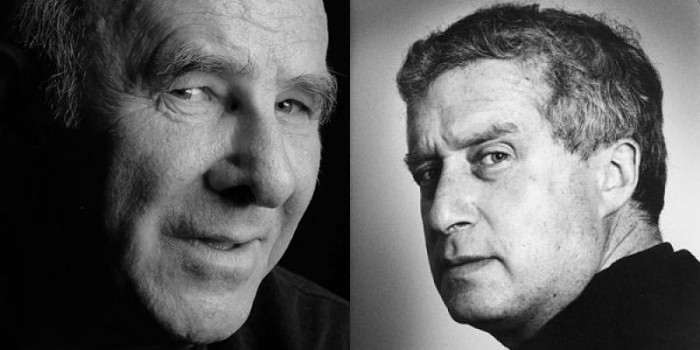
How we Met: Vitali Vitaliev & Clive James
Independent
20th August 1996
Vitali Vitaliev, 41, was born in the Ukraine. His articles in Krokodil, the satirical magazine, attracted the wrath of the Soviet authorities , and he defected in 1990. He lives in London and works as a writer. He is divorced, with one son. Clive James, 56, was born in Sydney. He went to Cambridge, then settled in Britain. Apart from his television work, he has written poetry, novels and autobiographies. Married, he has two daughters and lives in Cambridge
VITALI VITALIEV: I met Clive for the first time in 1988, on air; or rather he met me because he could see me and I couldn't see him. It was in Moscow and one day I got a call inviting me to appear on a serious political talk show, introduced by Clive James. I had no idea who Clive James was, but I put on my suit and my sombre Soviet look and I went to the Ostankino studios in Moscow.
I was led to a little room where I was completely on my own, just facing the muzzle of the camera. Behind me there was a weather-beaten photo of Red Square just to show the viewers I was in Moscow. Then there was this crackling voice in my earphones, sounding very cheerful and saying: "Can you hear me, Vitali Vitaliev?" I smelt a rat from the very first minute because if you look at the tape you can see I looked very serious, expecting to be interviewed in a serious way by the BBC. But the questions were not exactly serious, and for the first two or three minutes I looked quite ridiculous because there was this funny man in London and this man in Russia taking him very seriously. But then I saw it was a game and I started tentatively making some little jokes and getting into the spirit of it all. And the producer phoned me afterwards and said that they were sorry, they were pulling my leg, it wasn't a serious show and they did this sometimes with people who didn't know the programme. And they said that next time they wanted me to appear as I was, and that's how it started. What I didn't know then was that appearing on this show and meeting Clive James was going to play an enormous part in my life.
My impression of him when I talked to him by satellite that first time was good, because his voice was pleasant and friendly, and I could tell that he was trying to help me out. And his sense of humour was lovely and sardonic, and his questions were very tongue-in-cheek. I did several programmes and became their Moscow correspondent.
When I went to Britain it was a complete shock. Everyone knew me, even customs officers at the airport. Then I started being perceived as the Russian Clive James, something I'm getting a bit fed up with, not because I don't like Clive James - I adore him, he's a wonderful man - but because it's a cliche. I defected in January 1990 and we came here. Because I wanted to get as far away as possible from the Soviet Union, Clive said: "Why don't you go to Australia?"
So I went to the High Commission and the moment I entered the building they all said: "Oh, we know you, mate. You're Clive James's Moscow man," and within a month I had an Australian resident's permit and off I went. I spend a lot of time in Britain now, so Clive and I see more of each other. I've always admired his versatility so much, his TV shows and his books. I always feel his presence and I've always relied on his advice because I think he is a very wise man and he really cares about me, and I care about him.
We are both defectors. I left Russia and he left Australia, though for different reasons. We are both exiles. I think that destiny drew us together. We used to drink quite a lot of vodka together - I taught him how to do it properly. We have lunches that grow into dinners, we go for walks in the fields around Cambridge and we talk a lot. Clive's range of interests is very broad, he knows a lot about Russian literature and Russian culture, he can speak Russian too. I think we go well together on an intellectual level because we have lots of things to discuss. And he's had this enormous influence on my life. Funnily enough, we are both pursuing more or less the same range in writing and journalism, and I think that his sense of humour is very similar to mine. He is very ironic, and I love irony.
Our backgrounds are very different but we laugh at each other's jokes, not because we want to please each other, but because we find them funny. I think he's a very generous person and I don't just mean with money - though he is. I think he is generous in his attitude to people. He is extremely busy, but he is still very interested in people, and gives them his time. And he's very, very clever. I would call him one of the intelligentsiya, which is a very Russian word which has no real equivalent in English. It's something much more than someone who is just a knowledgeable person. It also involves compassion, and a sense of guilt for every injustice in the world.
Sometimes in his television appearances I think he goes a bit over the top - there is a very fine line between irony and ridicule and sometimes his jokes border on ridicule, but maybe this is just a requirement of the genre. As a person he is sometimes too sad, but most of the people who have to be funny, they are often quite serious people in their normal life. When we talk, lots of things we discuss are very serious, and, yes, sometimes he is a bit too sad.
I think he is a wonderful writer and poet, and although television is a good medium and very addictive, I think writing should come first. When I'm in Australia I often re-read his Unreliable Memoirs and the sequels. I have a tape of them and I put them on in the car and it's as though Clive is talking to me. I think his autobiographical trilogy is beautifully written, it's classic, and his poems are really fine, so I wish he could do more writing. If I didn't see him I would miss him so much. I think I would miss this light-hearted wisdom that he has, which isn't found very often. He is one of these people who can say something wise and profound in a very light-hearted manner. I think that's a very great skill, and that's where I would like to follow in his footsteps.
CLIVE JAMES: I first met Vitali in 1988 on a satellite link to Moscow. I was doing my weekly television show and Vitali was a correspondent that our researchers had discovered. We learnt that he was famous, or notorious, for saying things that the government didn't like, and which the KGB didn't like, so he was obviously a very brave guy.
Vitali agreed to do a satellite transmission for us from television studios outside Moscow, in one of those huge concrete buildings. I could see him, but he couldn't see me, because I was communicating with him by audio. He did this terrific piece for us about Soviet TV, and he had this stunning command of English for someone who had never been outside the Soviet Union. He went far beyond the limit of what he could say and still be safe, and I learnt that he was in great danger. I knew other things he was saying in Soviet newspapers and journals which got him into trouble, and we heard the KGB were after him.
Vitali came on my programme a few times, and he was a big star. He attracted a lot of attention here and in Australia, where the programme was also broadcast. So when he left the Soviet Union, he went to Australia, because he was having problems getting a UK resident's permit, and because his family were keen to go there.
What I remember most about when I met Vitali was just this charming guy, bursting out of his suit with energy and sheer goodwill. I don't know how he got like that. It's like Gorbachev - where do these men and women who changed everything come from? It turned out that the Russian mafia were getting heavy with him, too. He wanted to go to Australia and the Australian High Com-mission wanted some referees for him, and so I was very happy to oblige. He got his papers and his family went off there, and we stayed in touch as he and his family shuttled back and forth to Europe. Then Vitali decided to make his base here in Britain because he felt too cut off from Eastern Europe. He made his own television documentary in the Soviet Union and he did insanely brave things like walking into Chernobyl without any protective clothing. He was the first emigre Russian journalist ever to go on television in this country and talk about the Russian mafia. Of course, nobody believed him.
Vitali was on a BBC programme here discussing the situation in the Soviet Union after Gorbachev, and he said that not only were things not going to change in the direction of democracy as everyone blithely assumed they would, but there was a new danger and that was from gangsterism. He was almost cut off the air on the BBC for saying this - nobody believed that it was relevant.
Vitali and I are drinking friends. I don't drink any more, unless I'm with him - when, for some reason, the vodka bottle comes out, the top flies off and there we are drinking Smirnoff. He taught me how to drink vodka properly. He takes me out of myself. He's had a very adventurous life, he's taken real chances and I admire his writing, which gets better and better. He's getting to the point where he can express himself in English almost as well as in Russian.
I've had a very lucky life but Vitali and his generation didn't. It took great individuality and courage for him to become what he is. I admire that. He's an example of what can be done.
I admire the way Vitali operates bet-ween two languages with complete confidence; to me it shows that journalism and writing aren't just a question of the language you write in - it's what's underneath; it's what you're about as a person. There's nothing much that annoys me about him except that he's too happy - he gets a big, big bang out of life, and I'm enough of a puritan to wonder why he smiles so much. I wish I could be as mer- ry as he is. I'm a bit of a sad bastard, and with less reason. We're both interested in the history of the 20th century, but he's lived it, and I've been a spectator.
I feel that Vitali plugs me into history. In the West we live our media lives and don't affect what happens, we just report on it. To people like Vitali, what they said and did really mattered, and there were consequences for saying it - some of them very perilous. I often wonder what I would have done in the same circumstances, and I've a suspicion I wouldn't have been as brave, that I'd have shut up. A lot of people in the Soviet Union were trying to close Vitali down and I think they would have found it easy to close me down. It would only take one guy in a tightly-fitted suit to look at me sideways through his dark glasses to make me take up a different profession, so in a way Vitali is my conscience. We're both exiles, but there's a big difference bet-ween leaving your country because your life is in danger and switching location to find a job, as I did when I left Australia.
We both enjoy talking - when we're at the dinner table it's a riot - but on the whole he's a different character from me. You end up saying more than you expected because he gets everybody into conversation, which is ideal for his journalism. He's kind of adorable. No man likes to have that said about him - most of us would like to be thought of as dangerous and brooding. I don't know if Vitali would take kindly to being told he's adorable, but he is.
THIS TO GO IN STANDFIRST
Clive James born in Sydney 1939 and studied at Sydney University and then at Pembroke College ,Cambridge. He moved to england in the early sixties, and has worked in television ever since. In addition to his television work, he has written poetry,novels and a series of autobiographies, 'Unreliable Memoirs', 'Falling Towards England' and 'Mayweek was in June'. He is married with two daughters and lives in Cambridge.
Vitali Vitaliev was born in Kharkov in the Ukraine , in 1954 and studied at Kharkov University. He was an interpreter for several years and then became a journalist. He won several awards for his journalism, but his articles in 'Krododil', the satirical magazine,got him into trouble with the authorities and he defected in 1990, He was a columnist on the Melbourne Age for 2 years, and then moved to London where he works as a freelance journalist and writer. He is divorced, with one son, and lives alone in London. His book about the mini-states of Europe, 'Little is the Light' has just been published by Simon and Schuster.
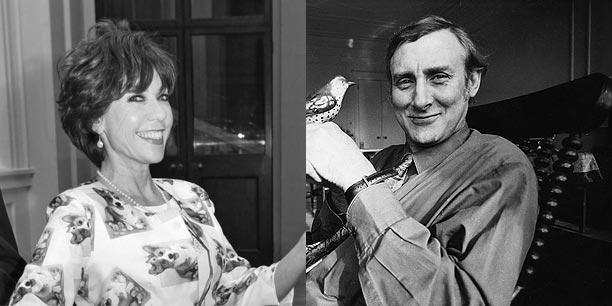
How we Met: Kathy Lette & Spike Milligan
Independent
17th December 1995
KATHY LETTE: Spike Milligan was my first great love. I was about 15, and while all the other girls were madly in love with pop stars, for me it was Spike, Spike, Spike. I lived and breathed for him. If you can make a joke you can transcend any drama or trauma - and Spike's got a black belt in the art of tongue-fu. He can make a joke about anything, a really original, witty, wonderful joke.
He used to come on tour to Australia with his one-man show, and between the ages of 15 and 17, I used to hitch-hike all round the country following him. I took a girlfriend with me, and wherever Spike was, there we were. We used to rely on the kindness of passing psychopaths, hitch-hiking in lorries from Brisbane and Adelaide to Perth, Sydney, Darwin: wherever Spike was performing. I'd been brought up on the Goons, and my father was mad about them, so I was weaned on them. I also got to know him through his poetry and his books. Hitler, My Part in his Downfall is the funniest book in the universe.
Our first encounter was in Adelaide, where he was performing at the Arts Festival. I just went to his hotel and sat in the foyer until he turned up, and when he finally arrived, I launched myself at him like a Femocet missile. I'd bought him some really juvenile presents, some pine cones with poems written on them, stupid things like that. After that, wherever he went, there I was. He'd go out for a walk, and I'd jump out from behind a bush and say "Spike!" He'd be having dinner, and I'd pop up between tables. He'd be doing a performance, and I'd leap out from the side of the stage. It was chronic. But he was constantly magnanimous. My friend and I were only 15, but he treated us like equals. He was the first person to talk to me as though I had two brain cells to rub together. He told me about his heroes, mostly jazz trumpeters I'd never heard of, and the Marx Brothers.
Most Australian men are like Bonsai trees emotionally: you have to whack on the fertiliser to get any feelings out of them. Here was this man who was not only incredibly funny and devastatingly handsome, but emotionally articulate, and the author of the most heart-wrenching poetry. How could it not be love? It was like having a sugar-daddy - but without the sex. I did used to hurl myself at him, but he was always such a gentleman. He put me up in hotel rooms, lavished me with attention and time - in exchange for nothing.
After that period, Spike went back to Britain and I went to live in California, where I was writing sitcoms for Columbia; and Spike doesn't go to the States because Americans don't get his humour. But we wrote to each other. In 1988 I came to live in Britain, and shortly afterwards Spike and I met up again, quite accidentally, on TV. It was an Australian show, Tonight, which was being beamed live to Oz by satellite. Spike and I just ignored everybody else on the programne, fell on each other and did a bit of instant bonding. The floor manger was frantic but we were laughing and gossiping, oblivious to the fact that we were on live TV.
I see Spike about once a year, when he can be lured out of his Sussex hidey-hole. He doesn't really like coming up to London. These days, we also meet in television green rooms on some chat show or other. We sink a can of Fosters and a few reputations.
Spike was the first man I met who thought that women were funny. Men think we're not funny because they're terrified that we're making jokes about the size of their penises - which we are. Spike's humour is much more piercing than mine - he can decimate anyone pretentious or snobbish or yobbish.
The worst thing about having him as a friend is that every time you tell him a joke, he'll say, "I wrote that," which is annoying but always true. The Goons was revolutionary, and now, a lot of humorists are digging up Spike-isms.
He is a very passionate and compassionate man. He takes up causes and fights for them, and he doesn't care what people think about him, which is not very English. And everyone's the same to him, whether they're a socialite or a social worker. My children's favourite song is Spike's "The Ning Nang Nong" so the addiction to him is obviously genetic.
SPIKE MILLIGAN: I remember meeting Kathy; she had a very enthusiastic girlfriend with her, who I think is now in love with a convict in Ireland. That seems to say it all about the kind of people those girls were. They were living with the beach crowd, fornicating like mad, and Kathy seemed to have taken a shine to me. I don't think it was physical - I was too old. Perhaps I missed an opportunity there that I'll regret for the rest of my life. Actually, I was handsome when I was young. I could have had more women if I'd known how good-looking I was, but I wasn't at all vain, that's the trouble.
I remember she was larger than life, although I don't remember her bursting into the room - or I'd have had to clean it up. But we used to talk, and I'd tell her about my heroes. I used to be a jazz trumpeter, and I used to talk about jazz trumpet players that I worshipped like Bix Beiderbecks, and she took it all in very well. But I never talked to her about bloody Elvis, because he bored the arse off me. He deceived millions of people into believing he was a great singer, simply because he was very good- looking.
I didn't realise at first that Kathy was following me round Australia. I'd say goodbye to her in Sydney, and a few days later in, say, Adelaide, she'd come into my dressing-room. She just wanted to talk; and my ego was massaged by having the attention of someone so young and attractive. She seemed to be an intellectual, even at that age. She spoke with a degree of fluency about life. She really got hooked on me by reading my poetry. She would go for one like "Last night, in twilight gloom, a butterfly flew in my room. Oh what beauty, oh what grace, who needs visitors from outer space?" I haven't read many of Kathy's books, but I thumbed through Puberty Blues, which was rather saucy. She deals in the areas that touch on obscenity. I think it's rare for women to be funny.
I'm Irish, and Irish humour is slightly bent, it's always going diagonally or sideways. I think that's what attracted Kathy to me. I think my humour comes directly from Edward Lear and the Marx Brothers. Kathy had never heard of the Marx brothers. I remember telling her one gag from a film which floored me when I went to see it in 1936. There was Groucho Marx playing the guitar to Margaret Dupont, that imperious-looking woman who had absolutely no idea that she was in a comedy. He's playing the guitar to her and suddenly there's a knock at the door and she says, "Oh, my husband! What will I do?" And he says, "What'll I do?" And she says, "Duck behind the couch." She opens the door, the husband comes in, and Groucho pops up and says, "There's no duck behind the couch!"
When she was following me around, I gave her money and I put her and her friend up sometimes in a hotel room. I used to look forward to seeing her; touring can be lonely. She haunted me. I thought, "Is she real, why is she doing this?" I thought that if I popped her with a pin she would disappear. She was a non-functional call-girl.
Even now, her conversation bursts with energy. We talk on the telephone sometimes, but we don't actually see each other very often now. We have met several times since she came to live in England - quite often on the same television chat show - but I'm afraid each occasion is a blank to me.
Kathy is in my perma-thoughts, I can drum her up and meet her in my mind. I admire her straightforwardness - she couldn't have been born in England. That time 20 years ago, when she followed me round Australia, that was a nice period of my life!
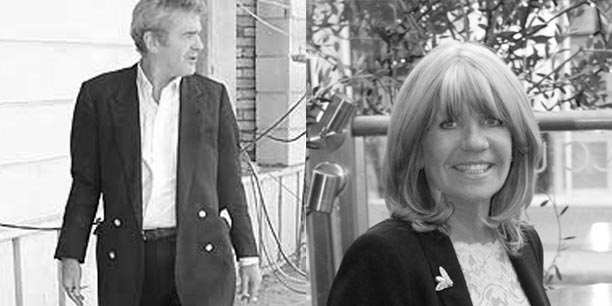
How we Met: Ross Benson & Ingrid Seward
'Ingie is a great Fergie fan; I'm not quite so enthusiastic'
Independent - 17th September 1995
Ross Benson was educated at Gordonstoun. He joined the Daily Mail in 1967. Since 1973, he has worked for the Daily Express; for the past eight years, he has edited his own gossip column. Aged 46, he lives in Belgravia, London, with his wife, Ingrid Seward, and their six-year-old daughter, Arabella.
Ingrid Seward, also 46, was educated at Frances Holland Girls' School in Regent's Park, London. She attended Queen's Secretarial College, a finishing school in Oxford, before becoming a PR for Victor Lowndes and Naim Atallah. Since 1983, she has edited the royal magazine, Majesty
ROSS BENSON: I first met Ingrid in 1985 when I was the chief foreign correspondent of the Daily Express. I went for lunch with an old friend, Chris-topher Wilson, the editor of the Will-iam Hickey column in the Express. We went down to El Vino's for a morning tincture - a bottle of champagne, actually. He said he had to go and meet someone for lunch, so why didn't I come down? We went down to a club called Scribes at the bottom of Fleet Street, and he was meeting Ingrid Seward. We started chatting, and they said why didn't I join them for lunch? About two-thirds of the way through lunch, Ingie, for reasons best known to herself, said, "All men are wimps," so I said, "Oh really - will you have dinner with me tomorrow?" and she said, "No, but how about the night after?" - playing hard to get. We had dinner the following night, and I think we then saw each other again two days later, and we've been together ever since. I thought she was very petite and pretty and bouncy. I think we all have this ability to recognise someone we can empathise with, and Ingie and I had that empathy. The miracle is that we hadn't met each other before, because we had moved in the same circles for 20 years. I knew all her friends, she knew mine, and we used to have ridiculous conversations about opening nights of restaurants and night-clubs where we had both been, but we had no recollection of each other.
I'd been married twice before, but that didn't worry me. I'd been going out with someone in Los Angeles for a long time, but I'd been dragging my heels about getting a divorce; maybe with hindsight that was an excuse for not getting married to the other girl. Anyway, I proposed and Ingie was very happy, and I bought her a ring which cost an arm and a leg. Months went by and I said, "What's happened to the wedding?", and she didn't seem that bothered. This dragged on and on, and I got fed up, because I'd bought her the bloody ring and there didn't seem to be a marriage at the end of it. Eventually, we did get married.
We talk endlessly, I've no idea what about; I suppose that's the definition of a good relationship. We're not like those couples who sit in restaurants saying nothing to each other. I don't think that it helps, however, that we work in the same world. I've had no great enthusiasm for going out with journalists, because you tend to end up talking shop; I think that narrows the horizons of a relationship. But Ingie is friendly with a lot of the people that I write about; and that does create problems, especially if there are difficult times, or marriage break-ups in the air. But the agreement is: if Queen leaves Duke, then it would be daft for her not to tell me - clearly it's going to come out. But if she's having lunch with, say, the Duchess of York, it would be equally daft for her to tell me what was said, because the temptation for me to write something would be irresistible. It's only in times of royal crises that the potential for conflict between us is apparent. When things really start winding up, Ingie and I are constantly on the phone doing television and radio interviews. She gets pissed off if I'm asked to do a television interview that she could have done.
When it came to the Waleses' split, as events unfolded I think, like most people, Ingie's attitude towards the Princess of Wales became more ambiguous. I never perceived her as the victim, and I think I've been proved right. Also at the end of the day, given the constitutional ramifications, you have to follow the blood - Charles is the future king. Princess Diana is the woman who will one day be the ex-wife of a man who will be king. That's not a constitutional role.
Ingie is a great Fergie fan; I'm not quite so enthusiastic. If Fergie has a problem it is that she can't see the whole picture, just bits of the jigsaw puzzle. She'll work hard for some charity and then go off on a three -week skiing holiday, and can't understand why people criticise her. Ingie thinks people are unfair about Fergie, but I feel that the overall picture is not to the Duchess's advantage.
I think Ingie does her job extremely well. Majesty does genuine royal articles - if they do a feature about Prince Charles's cufflinks, it will be the most authoritative article that you have ever read about the royal family's cufflinks. But if you're interested in who's bonking who, then Majesty is not for you.
INGRID SEWARD: I met Ross in 1985 in a pub called Scribes. I was having lunch with Christopher Wilson, who was late, and so I was rather cross, and he'd brought a friend with him, which made me even crosser, because I wanted to have a real chin-wag with him. This friend was Ross. I thought he was glamorous because he'd been walking across Afghanistan for two months; he was the Express's chief foreign correspondent. He ordered potatoes and asked them not to put butter on them because he said he couldn't eat any fat because he'd eaten so little over the previous two months. And I thought that was glamorous, and then he paid the bill with travellers' cheques, and I thought that was glamorous as well. I'd just finished a relationship with someone; and I remember saying to Christopher Wilson, "All men are ghastly." Ross said, "I'm not ghastly. Why don't you have dinner with me tonight?" I wasn't going to let him get away with it that easily. I said "No." And he said, "Tomorrow," and I said, "No", and then he said, "The day after tomorrow," and I said, "All right." When I got back, I phoned Christopher and said, "Tell me more," and Christopher was reticent because Ross had a reputation as a lady-killer.
I had a flat in Notting Hill and I asked Ross to come over at 8pm. He arrived dead on time, which I thought was a bit uncool. And he was wearing a ghastly mac, a Harold Wilson number. We went out to dinner, and we've been together ever since. I thought he was a romantic figure, because in those days the foreign correspondents had lots of tales of derring- do which I loved, though I'm very bored with them now. Ross was still married, though he'd been separated for a while, and I was a bit wary, but I suppose we just fell in love. We got married in 1987; it was really Ross that wanted to get married. I had hoped I might find someone rich and never have to work again, and I could see that was not going to be the case with Ross.
I was editing Majesty magazine, and he had just started editing William Hickey. I don't think I would have written books without him pushing me, but of course he was keen for me to make money. He helped me with my first book about Princess Diana, and he's very good at telling me to stop moaning and get on with things.
He's incredibly untidy. He leaves newspapers and magazines lying around everywhere and he drops his underpants on the floor, and expects
me to pick them up. Another thing that irritates me is that he never stops talking. We did a book tour together in America - I was doing my book Royal Children and he was promoting his Prince Charles book, but once those cameras got going I had to be really bullish to get a word in edgeways.
Although he edits a gossip column, when we go out Ross doesn't know who anyone is. I'll hear him ask, "Who's that over there?", and someone will say, "That's the Duke of such and such, don't you know that?"
Ross was at Gordonstoun in the same class as Prince Charles. He likes to think they were friends, but I'm not sure they were. Once Ross got very drunk when he was 18 and went round to Buckingham Palace to see "his friend", who wouldn't let him in. Ross was one of the first journalists to kiss and tell. He wrote something for Woman's Own and it was totally innocuous; it was about Charles at school, about him walking through the Gordonstoun paths writing poetry. But it simply wasn't done in those days, and he got chilled out. Every time he meets Prince Charles, Ross melts into the background. The other day I was chatting to Prince Charles, and he'd forgotten that I was married to Ross, and I looked at Ross and he was standing right over in the corner.
Sometimes it can be difficult for me if Ross writes something inaccurate or hurtful. Ronald Ferguson used to ring me up and say, "Ingie, Major here! What rubbish has your husband been writing about me now?" Ross has had lunch with the Princess of Wales, which I've never done. His chairman invited him to have lunch and there she was. Ross had been beastly about her, because she's the kind of woman he doesn't like. And she managed to charm him, as she charms most men, but Ross is a wily old bird - it didn't cut that much ice. !
BIOGRAPHICAL INFORMATION
Ingrid Seward was born in 1948 and was educated at Frances Holland Girls School in Regents' Park. She attended a finishing school in Oxford, Queen's Secretarial College. She worked for the Playboy Empire, working for Victor Lowndes as a PR. She then worked as PR in Naim Atallah's theatrical agency, and then went to 'Majesty' magazine, which she has edited since 1983. She and Ross Benson live in Belgravia with their six year old daughter, Arabella.
Ross Benson was born in Scotland in 1948 and was educated at schools in Africa, Australia, Holland before attending Gordonstoun. On leaving school he worked for London Life magazine and then went to the Daily Mail. After his property company failed in the early seventies, he went to the Daily Express, where he has worked for 22 years, as Foreign News Editor, US Correspondent, Chief Foreign Correspondent and Special Feature Writer. For the past 8 years he has edited his own gossip column.
How we met - Cynthia Payne & Screaming Lord Sutch
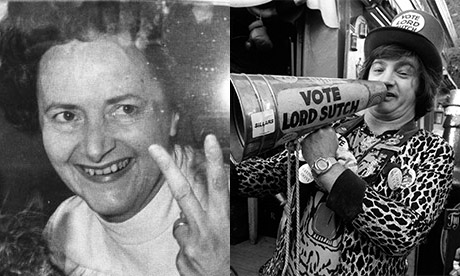
Independent - 2nd July 1995
Cynthia Payne, 64, was born in Bognor. In 1980, she served four months in prison for running a disorderly house. She has been the subject of two films, Personal Services and Wish You Were Here. In 1988, she stood unsuccessfully for Parliament as a candidate for the Payne and Pleasure Party. David Sutch, 54, leader of the Official Monster Raving Loony Party, was born in London. He is Britain's longest-serving party leader. He first stood for Parliament, aged 22, in 1963; since then he has fought 37 general elections and by-elections. He lives alone in London. He has a 20-year-old son, Tristan.
CYNTHIA PAYNE: When I came out of prison in 1980, a friend of mine who was a journalist said that I ought to try to get the sex laws changed. She said that the best way to do it was to stand for Parliament. She said that if Screaming Lord Sutch could do it, I could do it. Of course, that name rang a bell, but I didn't know much about him. It wasn't until 1988 that I met him, because that's when I did the Kensington by-election, standing as a candidate for my own party, the Payne and Pleasure Party.
During the campaign I was standing in Kensington High Street being interviewed for TV, when all of a sudden this mad bloke in a top hat jumps in front of the camera. I was a bit annoyed. I said "Who's that?" and my election agent said, "That, Cynthia, is Screaming Lord Sutch." He could see I was a bit miffed, so he disappeared, and then he came back half an hour later and started chatting to me. I think he was trying to sweeten me up, because he knew that if Cynthia Payne was going to be doing the election, then he'd get some good publicity out of it too. We had a wonderful election; it was very exciting. I got 400 votes, and he got 193, which is about what he usually gets.
Anyway, after that we stayed friends. When I first got to know him I was sort of besotted by him. I've met some really weird people in my time, but I've never met anyone as bizarre as him. I've learnt quite a lot about pop music from him because he does this rock and roll show in pubs - that's how he earns his living. He introduced me to a lot of great music. He's a really happy bloke; when he walks into a pub or a room he just makes everyone laugh. He cracks these bizarre jokes, and it usually takes me several goes before I get them, but when I do they make me laugh. He was never after girls or anything - he wasn't like a lot of men, who are just out bird-hunting most of the time. He never seemed to want to get married or anything, although he has had some lovely girlfriends.
He is totally wrapped up in this election business. He loves it. And he's amazing because he's from a working-class background, and I liked the way that he wanted to prove that anybody can stand for Parliament, whoever they are. But he's always late. Late for everything, and that does drive me mad. Shortly after I'd met him I invited him round for 7.30pm, and he turned up at midnight. That's quite typical. He has no sense of timing whatsoever. And I do think that's affected his political career. I think he could have got to the top otherwise.
I think he liked me because he knew that I didn't want to know him because he was famous. Quite a lot of people like to be seen with him because he always gets so much publicity, but he knew I didn't need it. So he could relax with me. And he comes over here and we talk.
I think what we have in common is that we both like to shock people. He does this horror act, this Jack the Ripper act, in pubs and clubs, and he shocks people with that. I suppose some people would find me shocking in a way. I used to like shocking people when I was a kid. I used to pull my knickers down in the garden and show the neighbours my bum or dance on the shed naked. And it did shock them. He still likes to shock, though I think I've got it out of my system now.
What I like about him is that he has this gift for cheering everybody up. He's a clown; he makes everyone laugh, even if he's feeling down. He's very quick with repartee. You can't get him away from people. I often take him to film premieres as my escort, but he doesn't stay my escort for long, because he just disappears - he's off making everyone laugh. There's something very child-like about him. Also, I can't bear men who drink, and Sutch doesn't drink. Just tea, about 20 cups a day. I call him Sutch, not David, because when I used to have the parties I used to call everyone by their surnames because there were so many Davids, and Johns, and Roberts - it was less confusing if I knew then all by their second names.
To be honest I think I'm a better friend to him than he is to me. But when I was ill in 1989 - I had to have quite a nasty operation, and I was really scared about it - Sutch was wonderful, and came to see me in hospital and cheered me up during a very nasty period. He got me out of quite a depressed state, which no man has ever been able to do.
He's a very gentle soul. But there is something in his nature that's a bit weird. I can't quite put my finger on it. I like eccentric people, and people say I'm a bit eccentric too, though I'm more businesslike than him. So we were two eccentric people together.
I still see a lot of him. Occasionally I'll go shopping with him, go down the Portobello market or somewhere like that, and he'll say, "Oh I'm just going in that shop for a minute," and three hours later I'm still waiting for him. He's mad. What would my life be like without him? A lot calmer. There's always something happening to him, there's always some drama, so if I didn't see him I'd miss all that.
SCREAMING LORD SUTCH: I first met Cynthia at the Kensington by-election, and we were both canvassing on Kensington High Street. We bumped into each other. I knew who she was, of course, because of all the publicity surrounding her at that time. We came face to face there and had our photos taken, and instantly we sort of had a little go at each other, and then realised that we liked each other. She said I was trying to nick her publicity, but these days I get more publicity than she does, so it's all swings and roundabouts.
I thought she was a happy-go-lucky, bubbly character, and I could just imagine her running her brothels, she seemed like the ideal sort of madame, one with a sense of humour. Then I found out that she catered for all types of men and women, even people in wheelchairs, at her parties. They called her the Freddie Laker of sex because she did all this cut price. A girl and as much as you could drink and eat for pounds 20, which was obviously quite cheap. And, of course, you could pay in luncheon vouchers, which was the great gimmick at the time. I thought she was very funny, so we got on well and did some publicity together.
I did a victory party the night before polling day with my band, Screaming Lord Sutch and the Savages, and she came along and joined in the fun. I always have my victory parties the night before voting day. She got more votes than I did, and I was very annoyed about that, because she was only copying my gimmick, standing for Parliament, and because she'd had all this attention from the media because of her sex parties, she got more votes than me. But now I've recovered and got my act together with my party and I get an average of 600 to 800 votes. In Rotherham I got 1,140, so we're hitting the big figures now.
After the Kensington by-election there was a celebrity party at String- fellows, and we got chatting there and got on. She was telling me how wonderful her election agent, Gloria, had been. So, at the next election, what did I do? I nicked Gloria, so I had her as my election agent, and I got a lot of votes, thanks to Gloria.
Cynthia is always good for a laugh, although you can't tell her a joke. You get to the punch-line and she just looks blank. It's not just my jokes, it's everyone's. I've had people tell her really funny jokes to impress her, hilarious ones, and they get to the punch-line, and she just stares at them. She never gets them. Not even dirty jokes. Not even when you've explained them to her. I don't know why.
I go to quite a lot of film premieres with her; I really enjoy that, and it often gets reported in the papers the next day that we were seen together - they often call us "the odd couple".
What I like is that she meets these famous people but hasn't the foggiest who they are, because she doesn't read the papers. She's introduced to some massive film star like Harrison Ford, and she won't have a clue who he is. She'll give them her autograph on a luncheon voucher and ask them how they spell their name.
I was at her house once and she got a call from this bloke who said he wanted to invite her to his party, because his dad was a big fan of hers. He told her that he'd send a limousine to pick her up. She said: "Who are you?" He said: "George Michael". She said "Who? I've never heard of you," and put the phone down. When she told me who it was, I couldn't believe it. I told her she'd got to go, because there'd be all sorts of celebrities there, like Elton John and Paul McCartney. But she'd never heard of them, because she doesn't know the pop scene at all. If you say Led Zeppelin, or Pink Floyd, she won't have heard of them. She only knows people like Frank Sinatra or Tom Jones. George Michael had the guts to phone her back and ask her again, so she went.
She's very stubborn, and gets things completely wrong. You try to explain to her that she's totally, utterly wrong and she can't see it. She'll say that Paddy Ashdown is the leader of the Tory party, and I'll say, "No, Cynthia, he leads the Liberal Democrats, actually," but she'll insist he's the leader of the Tories. Even when you prove her wrong she still doesn't believe it.
I think she's quite fond of me - she finds me amusing and different from other guys. She's cooked me the odd meal here and there, and is very good at gardening. I admire that. The only problem is that when she comes out she tends to be covered in cat hairs because she takes in strays. She has about 20. It's like a cats' home, her house.
Cynthia's very kind, and listens to my problems. Cynthia and I will always be pals. I've had my ups and downs with her, because she tends to argue a lot and gets set in her ways, but she doesn't do that so much now. What would I miss if I didn't see her? Well, certainly not her cooking, but her happy, smiling face, yes, I think I'd miss that.
How we met - Quentin Crisp & Donald Carroll
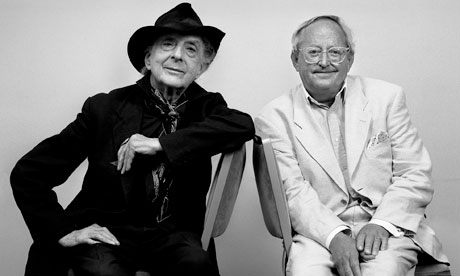
Independent
2nd July 1995
Quentin Crisp, born in 1908, went to art school, but never earned his living as a painter. After a spell as a male prostitute, he was an artists' model from 1930 until 1978. He now lives and performs one-man shows in New York. His first book was The Naked Civil Servant; his latest, Resident Alien, is his edited diaries. Donald Carroll was born in Texas in 1940 and read philosophy at Trinity College, Dublin. He worked as an editor at Thames & Hudson, and then as a literary agent. Now a full-time writer of humorous books, he lives in Gloucestershire with his fifth wife; he has four children from previous marriages
QUENTIN CRISP: I first met Mr Carroll on the telephone. I had spoken words on the radio about my life, on the Third Programme, for Phillip O'Connor. A publisher, Mr Kimber, telephoned me and said I should write a book. He said that if I wrote a 2,000-word synopsis of my life story he would let me know whether he would give me a contract.
When he read my 2,000 words he fainted dead away and said he could never publish such a book, it was too scandalous. I was describing all this to the art masters of Maidstone College, and a man called Citizen Kaine, Bob Kaine, said, "I have my spies and I will put them out." And he came back with the name Donald Carroll. He said that if I gave him the 2,000 words that had frightened Mr Kimber and a transcript of what I had said on the radio, and photographs of myself, he would undertake to sell the book. I telephoned Mr Carroll and he said, "You'd better come and see me." So I crossed the river from Chelsea to Putney.
He was with his first wife then, and she took one look at me and swept their two tiny children out of the way. Donald told me that if I wrote a few hundred words every week, he would collect it all together and find a publisher. Within six weeks he had sold it to Mr Maschler at Jonathan Cape.
When I first met Donald I was surprised because he was just like a human being, and most of the people I knew were not. Mr O'Connor, for example, was a Hungarian. But Mr Carroll spoke very little, he was very unemphatic, he just encouraged me to speak. My book took about six months to complete, and I wasn't very pleased with the title, The Naked Civil Servant. I had wanted to call it My Reign in Hell, because everywhere I go I have to explain that I never worked in the Civil Service, that I was a male model, but that it was just like being in the Civil Service.
After the book was published, Donald stayed around. I don't know why, because his work was done. He had undertaken to write a book on lifestyles, and he asked me to help him. We went on a tour around America to publicise Doing It With Style and got on very well, which surprised me. We even slept in the same room on the odd occasion, and I snore terribly, but he never complained. He never objected to anything I had written, or if he did he objected very quietly. I have never seen him lose his temper, but I have seen him scornful of people. The tour had been badly arranged, so that we turned up where they weren't expecting us, but though he was contemptuous he never flew into a rage.
He's got married an awful lot, and I've met all of his wives. He is so cynical and says exactly what he thinks and I don't think women like that. I think they like to be told a lot of rubbish. If they asked him "Do you really love me?" he would evade the question. So I think he's not satisfactory to women because he's not emotional.
There's nothing really that I don't like about him, though I think it's unwise that he gets married so often. And it's rather annoying because I get on very well with people's wives and mothers and so on, but I never get to know a Mrs Carroll really well because they are always gone by the time I've got to know them.
I don't think I've got much in common with Donald. He is not sentimental. I like Tennyson's poetry, and he finds it too emotional, so we are different temperamentally. I think he's a very good writer, though he writes very cynical books and that worries me, because I don't like too much cynicism, it's too glib. He's a very amusing man. He likes to tell me things which are an expression of the folly of human beings. I don't think I've ever shocked him as he isn't shockable, he's very sophisticated and very civilised. He knows everything about my life. I never hesitated to tell him anything, and many of the things I told him were shocking because I lived a very sordid life - I was a male prostitute for six months. He never expressed any shock or disapproval, and perhaps that's why we worked well together. I don't think he's influenced me, though I think his whole life is a warning, because he gets married to these women and obviously he should have waited, and then he wouldn't have. And yet he's not an impetuous man. That's funny, isn't it? He's not my best friend - I fight shy of having a best friend, because they hang on you. Mr Carroll would never hang on you, or accuse you of not having done what you said you'd do, or of not caring about him enough. He just turns up, we talk, then he goes and you don't see him for ages. He's never laid claim to any part of my life.
DONALD CARROLL: I first met Quentin Crisp on the telephone, in 1965. I had set up my literary agency, and most of my clients were poets. One evening I was at a dinner party with the publisher Constance Kaine and her husband, Bob, a very underrated English artist, who happened to be the vice-president of Maidstone College of Art. I was bemoaning the fact that I didn't have any star commercial authors - or at least none of them were stars at that time - and Bob told me there was an artists' model at the college who he was certain had a wonderful book in him. The model's name was Quentin Crisp. So I called him and explained what I had in mind. He lived in Chelsea, I lived in Putney. I offered to pick him up and he told me that he would come by public transport as I was on the No 14 bus route, only a stone's throw from him. "And stones will be thrown," he added. He arrived at the door, and my first wife took one look at him with his make-up and his violently hennaed hair and scooped up our two infant children, raced to the back of the flat and wasn't seen for two days.
I instantly realised that working with Quentin was going to be fun. What surprised me was that not only was the stuff witty, and truthful and scandalous, but that it was incredibly well written. Like me, Quentin is a grammatical and syntactical Stalinist. He told me he would rather go without mascara than split an infinitive, which would be quite a sacrifice I can tell you. I really admired his dedication and his conscientiousness.
After The Naked Civil Servant was published, the embers of our friendship remained warm. We wrote and saw each other often enough for him to remember all my wives better than I do - and my girlfriends - which is remarkable. In the Seventies I moved to Los Angeles and then to New York. Quentin was there too and we met up and did a book on style together. It was published in 1981 and we did this hilarious coast-to-coast tour. Quentin said we were the Laurel and Hardy of the wine and cheese belt. When we were on the radio in Washington, the presenter said, "Mr Carroll, you seem to have been married a lot of times." And Quentin leant over and said, with this appalled expression on his face, "Yes, and he's about to do it again." Sometimes we shared accommodation and Quentin would slightly irritate me because he'd touch up his hair dye with a toothbrush and on more than one occasion I found my teeth turning purple.
That year he moved to New York permanently, which slightly surprised me, as one of the first things he ever said to me was, "I don't hold with abroad." He's the kind of person who believes the French speak English the minute our backs are turned. He loves America, he feels welcomed there, in contrast to the way he felt in Britain. He likes the New York police, they're very sweet to him. They look alarming with their fat bellies and big revolvers, but they come up to him in the street and ask how his latest one-man show is going and wish him good luck.
Quentin is very, very compassionate and infinitely agreeable. He can be very serious and funny at the same time. He's also very brave. He had an awful life in England in the Thirties, being abused and gay-bashed. To maintain his dignity in the face of all that is remarkable. He is the same whether he's receiving humiliation or adulation. He's not a publicity- seeker so much as a publicity-accepter. After he wrote The Naked Civil Servant he said he had decided to be not only a self-confessed but a self- evident homosexual. So he knew people would heap opprobrium on him, but he dealt with it in a courteous, civilised, dignified way. He came out not unscratched, but more or less intact.
There's nothing I don't like about him, though I occasionally get tetchy about his utter helplessness. But he's made passivity his style: he expects other people to help him and they do. I don't think he even pushes buttons in lifts. But I can't complain about that - it's like complaining about the Queen being regal. If I didn't see him any more I wouldn't miss him. That sounds callous, but I've known him for 30 years, and I've got so many memories of him in my memory bank that I'd be able to live off them for the rest of my life!
How we Met: Uzi Mahnaimi & Bassam Abu-Sharif
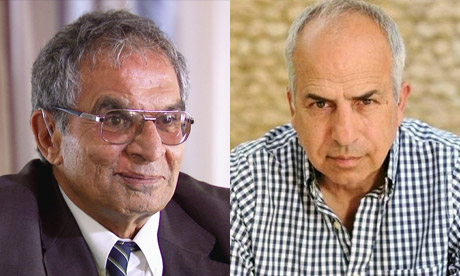
Independent - 18th June 1995
Uzi Mahnaimi, 42, was born in Tel Aviv. Formerly in Israeli military intelligence, for whom he recruited new agents, he left the army in 1987 to join the staff of Israel's biggest- selling newspaper, Yediouth Ahronot. Married with two children, he now works as a freelance journalist in London. Bassam Abu-Sharif, 49, was until recently Yasser Arafat's chief press spokesman. Once the victim of a Mossad bomb, he was one of the architects of the 1993 Arab-Israeli rappro- chement. Married with two children, he lives in Amman. With Uzi Mahnaimi, he has just pub- lished the book Tried by Fire.
UZI MAHNAIMI: I first met Bassam in 1988, one year after I'd started working as Middle East editor for Yediouth Ahronot, the biggest-selling Israeli newspaper, and one year after he'd joined Yasser Arafat as his special adviser. I was simply looking for better sources within the Palestinian Libera- tion Organisation, and I thought that Bassam might be willing to talk to me. I think he thought that through me he might be able to exercise some influence within the Israeli hierarchy. And I thought that through Bassam I might be able to get printed in the newspaper what I thought should be done on the political front. Let me make it clear that I was never that sympathetic to the Palestinian cause, but I felt that a solution to the conflict had to be found. Meeting him influenced my journalism very much because now I had a first-hand source, and the front page of my paper was often full of exclusive stories. At that time it was quite complicated because there was an Israeli law which forbade any contact with PLO members, unless it was at a press conference, but a mutual friend, Marie Colvin of the Sunday Times, arranged a meeting at the Rue St Jacques restaurant in London. It was very strange when Bassam walked in, because at that time, before the Rabin-Arafat reconciliation, it was extremely rare even for an Israeli journalist to meet anyone from the PLO, let alone someone so high up within it. When we first met, I felt quite tense, and I was aware that there was an element of danger for both sides. We were in an open public space, and I knew that I was in some danger of attack by PLO hardliners, because some Palestinians might have known that I had been a major in Israeli intelligence. And when Bassam arrived he was accompanied by two bodyguards, and I learnt afterwards that Special Branch officers had been sitting around watching us. I was very amused because Bassam had several double scotches as an aperitif, and then ordered a bottle of Chateau Margaux costing pounds 120. Fortunately, the Sunday Times was paying.
It was quite a thrill for me to be able to meet Bassam and talk with him; for three hours we talked about politics and what should be done. I liked him very much from the start. He's very charismatic, charming and talkative. We had a good chemistry and I thought at the time that it would be nice to have a glass of beer with him some time and just chat to him without all the heavy politics. After meeting him, I knew much more about the Palestinians and it helped me to explain to my readers that they are also human beings, that they have rights, and that if we can be reconciled with them and help them solve their problems, then we can solve many of our own problems, too. I had a tough fight with my editor, who didn't see why our readers should be exposed to the Arab view, and we lost a bit of circulation for a while. But I believe that through Bassam and other sources I succeeded in putting the Palestinian cause on the front pages on a daily basis, and I think that helped persuade the Israeli government to pursue peace seriously.
It took time for Bassam and me to become friends, because he was travelling a lot and it wasn't easy to get through to him over the phone, largely because there were no direct telephone lines between Israel and the Arab world. He used to send me faxes at work, to the newsroom. At first the editors were really astonished to see PLO headed paper coming through on the fax machine, and the first time they didn't want to touch it. It was pretty explosive stuff. The security services began to be worried about what was going on; no other Israeli journalist had such contact with a member of the PLO. They were worried that he would try and use me to sell his stuff, which of course he did do; my task was to sit there and sift through it and try to work out what I could rely on and what I couldn't. But this was 1988-1992, and those were the crucial years in which the PLO was on the brink of recognising the state of Israel - Bassam was the man who pushed most strong ly for this revolutionary thing to happen.
We both love life. We like women, we like drink, we like good restaurants and we like to spend money, more than we have. There's not much I don't like about him, except that he is often late. He's very hard-working but he never comes on time, and sometimes he doesn't show up at all. I sometimes feel uncomfortable looking at his disfigured hands and scarred face, because it was a Mossad parcel bomb that did that. I have no doubt that there were Palestinians during those years who did deserve not only a parcel bomb, but even worse high-explosive "gifts", but I don't think that Bassam was the right target - he was simply head of the newspaper of the Popular Front for the Liberation of Palestine. I am not an Arab-lover - basically they were bastards - but the Palestinians have their rights. My relationship with Bassam is based on the fact that I like him as a man, not as an Arab or a Palestinian - I just like him. And I have a better relationship with him than with many Israelis.
BASSAM ABU-SHARIF: I met Uzi through our mutual friend, Marie Colvin. At the time, the Intifada was at its height, and Marie told me that she had this Israeli friend, a good journalist, who would like to meet me. She said that he was in favour of a Palestinian state, which I thought was amazing considering that he worked for this right-wing newspaper. Marie Colvin invited us to this restaurant in London, where we met for the first time. I think Uzi was quite tense. It was the first time he had met a Palestinian leader, and at that time, it was against the law for Israelis to do that. Also, he was aware of the possible security risk. But I wasn't nervous at all; and I had two security guards with me. So I tried to make him feel calm, because I could see that he was nervous. He was wearing a suit, and I said to him: "I thought all Israeli journalists wore battle-dress." I knew that he had been in the army, and that he had been an intelligence officer. What I had in my mind was to make him relax and give him the correct impression about the Palestinians - which is that we are people who are serious about peace.
At the end of that lunch I handed him my visiting card, and on the back I had written just one word: "peace". And the fact that he kept in touch with me afterwards is proof that he knew I was sincere. Then he dared to start writing about Pales-tinians in a different way, using the word "Palestinian", not "terrorist", and that created problems for him, but he continued. All the time, he'd update me on the developments from the Israeli side, while I used to tell him what was going on in the top echelons of the PLO. I didn't feed him with PLO propaganda, I just sent him my ideas about how to establish peace in the region. I loved to think of my faxes marked "From the office of the PLO - President's Office" going into the office of this right-wing Israeli newspaper. I believe our co- operation played a key role in changing Israeli public opinion. Many of my friends told me I shouldn't be having anything to do with an Israeli journalist. But we proved them wrong. Uzi managed to report through his newspaper what I was saying, and that reached Israeli public opinion, especially the extreme right, which helped bring people closer to the idea of a peaceful reconciliation. And he was the first to dare do that. I think he was very brave. If I hadn't made contact with him, the peace process would probably have taken a lot longer.
We don't always talk about politics - we talk about music and writing. We like life. We like children, we like drink, good food, beautiful women, spending money. We have common taste in many things, and probably because we like life we hate war, a war that was imposed on us. There's nothing I don't like about Uzi. I feel that my friendship with him is better than my friendship with people I have known for 25 years. Sometimes I call him and tell him that I'm coming to London, and I don't even tell my own son, who's at school here. And when I came this time, it was Uzi who fetched me from the airport. Uzi doesn't like me being late, but sometimes I'm late on purpose for security reasons.
I find Uzi very clever, very calm, very mild. When we became friends, some of my friends didn't like it at all. But they changed. They met him when he came to Tunis - he came to my house, he met my family and my friends. And then he went with me and had breakfast with Arafat at his house, and everyone relaxed.
I am a victim of Israeli terrorism; in 1972 I was blown up by a parcel bomb sent by Mossad. Contrary to the expectations of many, that didn't turn me into a hater. In fact, the feeling was a feeling of pity. I felt very, very deeply about the pain inflicted on both sides through violence, call it terrorism or whatever, and it helped me to think about trying to find a political solution, so that we could all avoid all this pain, so that Arab and Israeli children could enjoy life in the normal way. I started to feel that it was a stupid game of killing and bloodshed. I think that Uzi might have felt more pain about my lost fingers and thumb than I did.
He asked the man who was in charge of Mossad at the time of the explosion: "Why Bassam? Why did you try to kill him? He's never held a gun." And the guy said that they had wanted me dead because I was the most outspoken Palestinian - they wanted to kill my words.
I'm very pragmatic. What happened happened. What's important is the future. I hope not only that I will be friends with Uzi all my life, but that our children will be friends. !
Harold Wilson would have drowned but for us
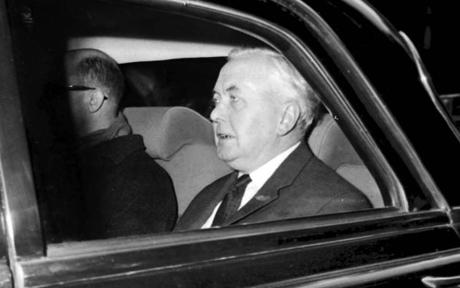
FIRST-HAND Isabel Wolff recalls how her family rescued the then Opposition leader - and changed history
Independent - 4th June 1995
EVERYONE is supposed to get 15 minutes of fame, and I've had mine. In 1973 the spotlight of publicity was turned upon my family after our annual holiday in the Scillies. Where normally we would expect to catch a few bucketfuls of shrimps and the occasional crab, that year we fished Harold Wilson, Leader of Her Majesty's Opposition, out of the water.
One mid-August morning we were cycling to a favourite picnic spot at Bar Point, a deserted part of the island. There was a small beach there where we planned to have lunch, and a little bay where a few moored boats bobbed in the rising tide. I was with my parents, my 16-year-old brother Simon, his friend Robert, and my younger brother Matthew, who was 10. It was Matthew who spotted an empty rubber dinghy bobbing out to sea. Simon and Robert ran to the beach to see if they could catch it.
I waited with my parents on the clifftop. Suddenly, my father cupped his hand to his ear - he said he had heard a faint cry for help. We too recognised the unmistakable sound of a human voice in distress. My father hurried down to the beach. "What is your trouble?" I heard him shout. "I can't get into my boat," came the faint reply.
My father sent Robert off to alert the coastguard while he and Simon found a small wooden dinghy and carried it to the water's edge. My father rowed out and Matthew and I watched from the shore. Chained to a hut on the beach was an affable and unperturbed-looking golden labrador, whose ears I absent-mindedly stroked.
About 400 yards out my father and Simon pulled alongside a small launch. Submerged in the water and clinging to the fender rope was a grey-haired man. While my father steadied the boat against the strong tide, Simon clambered on to the launch, grabbed the drenched figure by an arm and a leg and hauled him on deck like a sack of potatoes. Then he waited for him to catch his breath, before Dad rowed them all back to the beach.
"Look," I said to Matthew as the boat drew near. "It's Harold Wilson!" Mr Wilson staggered ashore, his face white with cold and shock, his teeth chattering. I wondered whether his gold watch was waterproof. He told us he had slipped out of his rubber dinghy as he attempted to get into the launch, and had been unable to pull himself out of the water. He had been in the sea more than half an hour.
He declined my father's offer to take him back to his bungalow, saying that he didn't want to be any more trouble. My father replied that it was not every day one pulled a former prime minister out of the sea. Then Mr Wilson untied his dog, Paddy, and we parted company. Dad swore us all to secrecy - if the story got out it could ruin our holiday, and Mr Wilson's.
Next day, quite by chance, we bumped into him. I thought he would be pleased to see us, but he just looked embarrassed, even anxious to avoid us. In answer to my father's polite enquiry, he said he was much better, although his arm was still stiff. We didn't hear from him again.
We kept quiet but, somehow, a month later the story slipped out. It was national, front-page news! "Wilson Rescued in Sea Drama", "Wilson Snatched From Drowning", "Scilly Secret Floats to the Surface", the headlines read. Most of them made us laugh, but the Daily Mirror's we thought outrageous: "My Dog Tipped Me In" it said. Mr Wilson's press secretary, Joe Haines, had blamed Paddy. There was even a photo of the dog captioned "The Culprit"! One could see the need for damage-limitation - after all, it was embarrassing for Wilson, not least because Edward Heath was a serious yachtsman - but Paddy, I know for sure, was innocent.
My father was besieged by television crews outside his office and questioned about his voting habits. "Lifelong Tory saves Wilson from Drowning" ran the Telegraph's angle on the story next day. Other papers pointed out that the Labour leader, whose party was pledged to end private education, had been saved by a public schoolboy. And so it went on. We put up with myriad jokes of the "Why didn't you throw him back?" variety. Joe Haines made light of the incident. Wilson, he claimed, was in "no danger", he "could have swum to the beach" but was "waiting for a friend to turn up". While doing a spot of deep-sea paddling no doubt.
Harold Wilson would almost certainlyhave died. He was 57, he was overweight, he'd been in the freezing water for more than half an hour and his arms were giving out. The Atlantic currents were very strong, there was no one around, and it was only by the slimmest chance that my father heard his cries. He knew he he had had an extremely close shave, but had obviously been persuaded to let the dog take the blame and play down the incident.
And if he had been found belly-up in the Bristol Channel? The course of British politics might have been somewhat different. Callaghan, Healey or Benn would have succeeded him, Edward Heath might not have been defeated in 1974, there would have been no Tory leadership challenge in 1975, and quite possibly no Thatcher leadership. My brother Simon, now a toxicologist, sometimes speculates (miserably) that our father may have inadvertently launched Mrs Thatcher's prime ministerial career that fateful August day. The rest, as they say, is history.
Warning off the office beast
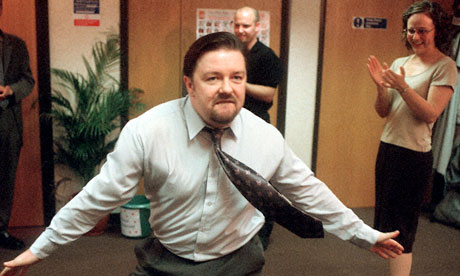
Isabel Wolff on a campaign that's raising hackles
Independent - 29th January 1995
What's the difference between an exuberantly over-sexed dog, and an office executive who offends with similarly mis-directed behaviour? Not much, according to a new Dutch television commercial, part of a nationwide campaign in the Netherlands agai nst sexual harassment. It begins with a man standing at a photocopier. A dog trots up, licks his hand, receives a friendly pat on the head, and then starts chasing the man round the copier before frenziedly mounting his immaculately trousered leg. A voic e-over announces: "This is how women feel when sexually harassed at work. But that won't happen at your office because no animals work there. Do they?"
Sensitive Dutchmen are insulted at this animal imagery: the commercial has sparked hot debate in the Dutch media. Otto van der Haast, a director of J Walter Thompson, the ad agency responsible, can't understand the fuss. "We deliberately chose a metaphorical approach," he says. "The point is not that men are represented by a dog, but that the dog gets carried away. It starts out friendly, loses control, and behaves inappropriately. We are not saying that all men are animals."
There are no plans to run the blunt Dutch campaign in the UK. But more subtle British ads are portraying men unflatteringly; and they don't like it.
A recent Prudential series featured a nerdy little man appalling his partner with his increasingly boring plans. "The guy's a complete dork," says Chris Kimber, producer of Radio 4's men's series The Locker Room. "I think that an ad like that does contribute to men's feelings of inadequacy. Men are easy targets in these more politically correct days." Kimber feels that there is a distinct new trend in the portrayal of men on television. "They're either prats or impossibly hunky sex symbols, like in the Levi's ad."
Some have been sufficiently moved to complain. The Advertising Standards Authority confirms that complaints from men are increasing. "About a year ago there was a very hard-hitting poster campaign against domestic violence," said a spokeswoman. "It showed three men, captioned: `Behind all these successful men are the women they put in casualty'. A lot of men didn't like it: they felt that it stigmatised them all."
But a straw poll showed that stoic British male sensibilities were less distressed by the canine harassment ad than delicate Dutch egos. "I don't appreciate being compared to a sex-mad dog. But in general, lots of male nerds on television is a very good thing; it makes the rest of us feel better," said marketing assistant David Simons.
"What a pointless ad; it would make any man who wasn't actually chasing women round the photocopier feel quite smugly well-behaved," snorted retail manager Richard Carey. "Any dog or man who tried that in our office would get a swift kick anyway."
"Men who are actually bothered by this ad must be so sensitive that they would never survive in an office at all," said Marcus, a solicitor. "I don't believe real men could give a stuff about advertising images. Anyone who's a lawyer is used to far worse insults."
Real Life: Greetings from Club Dead Seances are out, mediumship awareness workshops are in
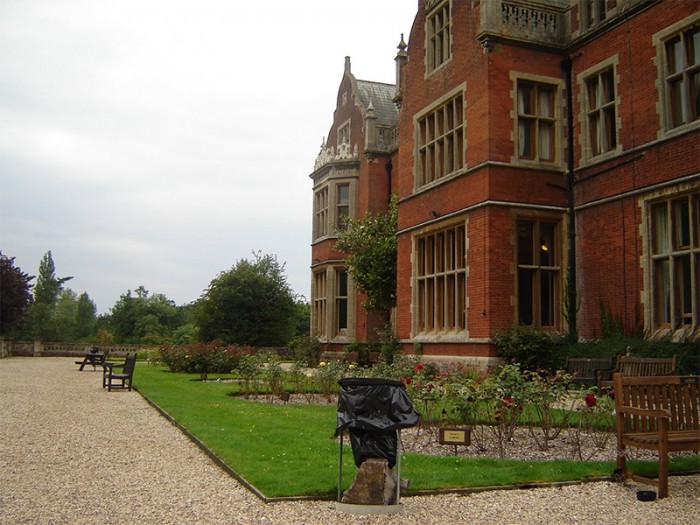
Isabel Wolff attends spiritualist college
Independent - 11th December 1994
DOWN A LONG, winding country lane, a mere ouija board's throw from Stansted airport, the Arthur Findlay Spiritualist College is doing good business. There, at Stansted Hall, a suitably spooky mock-Tudor manor, a hundred students are gathered toget her inone place to develop their ethereal skills. Apprentice mediums can choose from a wide range of unworldy classes on these weekly residential courses - Trance and Physical Phenomena, Astrological Studies, Physical Mediumship and Spiritual Healing. B ut aspiring psychics have to book early, because spiritualism is now a growth industry.
"We can hardly keep up with demand," says the college's director, Alan Reynolds, wearily. "Attendance here has gone up by 60 per cent in the past two years alone. There's enormous interest in it now."
Like all practising mediums Mr Reynolds is at pains to point out that there's more to spiritualism than linking fingers and waiting for the lights to go out. "Spiritualism is a proper, organised religion," he says emphatically. "It has a broad philosophy, consisting of seven principles, the most important of which is that life continues after death. We mediums provide that link between the physical and the spirit world."
"Where are all the ouija boards?" I asked his colleague, Mavis Pitilla. "Oh, we don't use those," she said contemptuously. "They're silly toys, that's what teenagers use at parties. Communication with the dead is a natural thing," she added seriously. "It takes place through the mind. And don't use the word `seance' either," she admonished me gently; "we say `private sitting' when we want to contact the spirit world."
"Don't you think it's rather sinister and profane to call up the dead?" I asked Libby Parks, a part-time tutor at the college, as she prepared for her afternoon workshop.
"No, because they're not reallv dead are they?" she replied triumphantly. "As far as we're concerned they've just gone into another room. But they can be contacted," she continued with a beatific smile. "Just like on the telephone. We mediums are merely the switchboard. We put them through to their loved ones."
In the old library the reception wasn't too good. There, in the Mediumship Awareness workshop, 28-year-old Richard Smith was being put through his paces by his tutor Simon James, a Sergeant Pepper look-alike in a red embroidered shirt. Smith stood nervously on the rostrum beneath a huge portrait of the college's founder, the spiritualist Arthur Findlay. He then started speaking in a measured but rapid tone, and claimed that he was in communication with a tall, upright man of about 35.
"He's a military sort of man," said Smith, "and I think he's connected with that lady at the back there, in the cream leggings. Can you understand this description so far?"
"Er, no. Not at the moment," she replied.
"And he has a side-parting in his hair, which is light brown and cut very short. Does that mean anything to you?"
"No. No it doesn't ... I'm sorry." She twiddled her crystal pendant nervously.
"And I'm picking up a very dry sense of humour too," he continued. She shrugged her shoulders and shook her head.
His tutor swiftly intervened. "Now, that's put you on the spot, but don't worry, Richard. What we'll try to do here is build the link, and deepen that contact with the spirit world. Talk to the gentleman a bit more and get some more details from him." Richard's eyes narrowed in concentration. A bead of perspiration glistened on his brow.
"Well, as I'm seeing him now, and as I'm hearing him, he has a slight cockney accent," he persisted. "Does that mean anything to you now?"
"No," said the woman in a distressed tone. "No it doesn't. I'm really sorry." Indeed no one in the group claimed to know this upright visitor from beyond the grave, and Richard returned to his seat with a somewhat defeated air.
I glanced at the bookshelves behind me, which were groaning with leather-bound esoterica - Psychic Phenomena and the History of the Supernatural, A Scientific Demonstration of the Future Life, and The Encyclopaedia of Biblical Spiritualism. The college staff stress that not just anyone can become a medium; they first have to have the gift of clairvoyance which the tutors will help to develop.
Richard Smith realised that he had the gift when his best friend was killed in a car crash two years ago. For several months afterwards, he claims, his friend came and visited him. "I thought I was going round the twist," he said during the coffee break afterwards. "He kept coming and sitting on my bed and talking to me. But then my mum told me that the gift of clairvoyance was in the family, so I decided to look into it. Then I started coming here, and now I hope to become a full-time plat form medium."
Richard is one of a growing number of younger people who are being drawn into spiritualism. My expectation that the students would be mostly Doris Stokes look-alikes was proved quite wrong; about 20 per cent were under 30, and a surprisingly large numberwere male. "I've had it with orthodox religion," said one man in his late thirties contemptuously. "All that stuff about a vindictive God and heaven and hell and the angels and all of that just seems a bit, you know, ridiculous. Spiritualism is much more real."
For those at a more advanced stage of their studies, there are the Physical Mediumship classes. During physical mediumship the actual bodies of the dearly departed can apparently appear. "It's the most wonderful experience," said Libby Parks. "It's like being wrapped in a little bit of heaven. I once saw this fully grown man appear. And he just materialised before our eyes, building out of ectoplasm, and he went up to his wife and took her by the hand and told her that he loved her."
"That's fantastic," I said.
"Yes," she breathed. "It was absolutely fabulous."
This rather whetted my appetite for the spiritualist service that was to be held in the chapel later that evening. There are now over 450 spiritualist churches all over Britain. At their services mediums contact the spirit world and communicate their thoughts to members of the congregation in a sort of jolly `Club Dead'.
The service started conventionally enough with a prayer and one or two hymns; then one by one the four chosen mediums took to the rostrum. I glanced round the room, which was full to overflowing; everyone was sitting forward on their seats with rapt and eager expressions.
"I've got a chap here, in his mid fifties, and he died of a chest condition," said the first medium Sue Bretheton, pacing up and down the rostrum. She furrowed her brows in concentration. "And he came from the North-east, he was about 5 foot ten and he was a pigeon-fancier." There was a gasp from the left-hand side of the chapel.
"That's my father-in-law," shouted a woman in her late forties. "He was a pigeon-fancier. He died of emphysema. That's him all right."
After the service was over I approached the woman and asked her how convinced she'd been. "Totally," she said. "The medium gave me absolute proof of survival. My father-in-law was a pigeon-fancier, he came from Newcastle, and all the details she gave me about him were absolutely accurate. It was very authentic. Spiritualism does work, you know."
I decided to put it to the test myself there and then, in a private sitting with Mavis Pitilla. We sat in small darkened room, in a quiet part of the house.
"I'm getting a James," she said suddenly. "There was a James wasn't there, on your father's side of the family." I shook my head.
"And your father's father had two brothers didn't he?" "No, I'm afraid he didn't." "Well, there's a Norman here. I've definitely got a Norman. On your father's side again." I looked at her blankly.
"And there's an overseas connection. I don't know which country. But there's definitely been some contact with abroad in your family hasn't there?" "Well, yes, that's quite true," I said.
"And your grandmother," she went on "I think I've got your grandmother here. Your mother's mother. Now, she was an expert on art wasn't she." "No, not really," I said, unhelpfully.
Suddenly Mrs Pitilla took her glasses off with a slightly disappointed air.
"Look, I'm awfully sorry about this," she said. "But I've really had a very long day.''
My lunch at Daphne’s
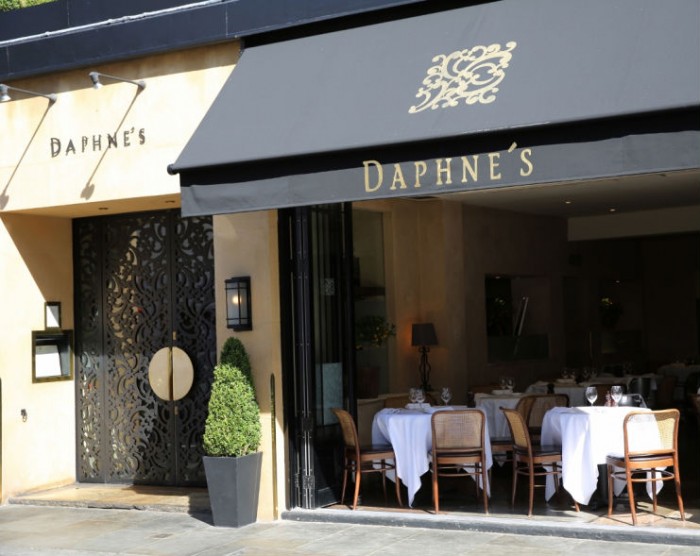
Over the deep-fried zucchini flowers, Isabel Wolff learns to tell Ladies Who Lunch from Salon Women
Independent - 12th June 1994
''GLYNDEBOURNE was heavenly,' intoned the elegantly dressed fortysomething woman seated at the table next to mine. 'Just divine.' She adjusted her pale yellow Gucci scarf. 'Mozart . . . I think. What are you wearing to Ascot darling?'
'My new Caroline Charles,' her companion replied, reaching for the bottle of mineral water with a perfectly manicured hand. She lowered her voice to a conspiratorial whisper. 'And last year's hat.' The diamonds on her heavily bejewelled ring finger flashed. She was wearing something that looked vaguely familiar from the pages of a recent Vogue.
These were Ladies Who Lunch. And they were lunching at Daphne's in Chelsea, a favourite eating place for a breed of woman whom Hillary Clinton would describe as 'Salon Women'.
Salon Women are beautiful and carefree. They are married to rich and powerful men; they are invariably soignee and well-coiffured and Hillary Clinton hates them all. On her recent visit to Rome, Mrs Clinton expressed a marked disinclination to be photographed with the pretty wives of Italian businessmen. 'I want to meet a sample of prominent Italian career women,' she declared. 'Preferably lawyers like me. I detest Salon Women.'
This disparaging statement brought a robust defence of Salon Women from Emma Soames of the Evening Standard. 'In Europe's great cities these beautiful women and hostesses are the most integral part of the very fabric of society,' she thundered. 'They are admired for their looks, their style and their powers of patronage.' Miss Soames then produced a list of Salon Women, whom she collectively described as 'The Cream of London'.
Glancing down this list, I realised that I hadn't the faintest idea who most of them were. Lady White of Hull? Never heard of her. Mrs Johnny Gold - who's she? And Lady Kenilworth? I'm sorry, I haven't a clue. Aware that I might be missing something, I decided to find out more about them with the help of a gossip columnist, Tim Satchell. Tim has formerly written for the diary pages of daily newpapers; he is now the 'Backbiter' columnist on the Big Issue . . . We met for lunch in Daphne's.
'Put your notebook away,' he hissed, as a passing waiter handed two gold-crested menus. 'Gossip columnists never take notes in restaurants.'
'Sorry,' I said, placing it out of sight on my lap and adjusting the collar of my 1989 Next jacket. I looked around the dining room, now more than half full. Flowering jasmine plants clambered up the pale ochre walls; the tablecloths were stiff and crisp. A blonde woman in a pink and white Chanel suit sat at a corner table waiting for her friends. She was wreathed in large, fake pearls. Obviously a Lady Who Lunches.
I discreetly consulted the 'Cream of London' list. 'Who's Lady White of Hull?' I asked Tim Satchell, between mouthfuls of deep-fried zucchini flowers. 'She's very important,' said Mr Satchell seriously. 'She's married to Lord (Gordon) White who runs Lord Hanson's American operation.'
''What about Susan Sangster?'
'Robert Sangster's wife,' he said. 'He owned Vernons Pools, but sold it. He's her second husband. She's terribly pretty.' I glanced at the photograph of her in the Evening Standard. 'Hardly surprising that Susan Sangster ended up with a highly successful husband', said the caption beneath.
Suddenly a slight but perceptible ripple passed round the dining room. Framed in the doorway was a glamorous bouffed-up blonde in a peacock blue power suit. 'It's Ivana Trump,' I expostulated as she went up to the woman in the pink Chanel suit and air-kissed her on both cheeks. 'For God's sake don't stare,' said Tim, refusing to turn round.
'She looks marvellous for 44,' I said. 'That's because she's got the money and time to look good,' he said firmly. 'That's her boyfriend Riccardo Mazzucchelli with her,' Tim added. 'He's given her a huge yellow diamond ring but they don't seem to be making it permanent.'
I returned, somewhat reluctantly, to the list. 'Tell me about Lady Kenilworth.' 'She's the ex-wife of Lord Kenilworth - he's a landscape gardener.'
'And Mrs Johnny Gold?' 'Johnny Gold owns the nightclub, Tramp,' said Tim. 'He also runs the Belvedere restaurant.'
'What about Mrs Galen Weston?' 'Her hubbie (Fortnum and Mason vice chairman) used to own a big biscuit company. They had a big hit with 'Wagon Wheels'. '
'I think this list's a bit mixed,' I observed, as our main courses arrived. 'I mean Princess Michael of Kent and Marie Helvin are OK but I'd have thought that Patricia Kluge was a bit, you know, iffy. She was a sort of page 3 girl wasn't she?'
'Well, she was married to John Kluge, who owned a huge American company called Metromedia,' said Tim as he tackled his spaghetti. 'He's a multi-billionaire.'
After lunch we were joined by Dai Llewellyn, Old Etonian baronet-in-waiting, brother of Princess Margaret's friend Roddy.
'I don't think much of this list,' he said. It's not what I'd call the cream of London.'
'One man's A list is another man's B list,' said Tim, judiciously. 'Anyway, all lists are tacky.'
I asked Dai Llewellyn about the the European Salon Woman, the ones whom Hillary Clinton had declined to meet. How influential were they? 'Well in Paris, the Salon Women run the whole show,' he guffawed. 'Even a socialist president like Mitterrand couldn't have been elected without Les Dames qui Dejeunent - women like the Rochefoucaults. In Rome, it's different. There they tend to be Salon Women when they're young; then they get married and disappear.'
He glanced around the restaurant. 'This is a nice place,' he said, 'very razzmatazzy; but in my view the really serious Salon Women go to Harry's Bar. They like sitting next to captains of industry. The conversation's all about money.'
By this stage I was seriously interested in becoming a Salon Woman myself. No more work. Just lots of shopping and parties. The Cream of London list proved that a lack of an aristocratic background was no bar to becoming a Lady Who Lunches. All that was required was a very wealthy and powerful man.
'Thanks for lunch,' said Tim as we walked down Sloane Avenue. 'Are you going back to work?'
'No I'm not,' I said, heading towards Belgravia. 'I might check out Harry's Bar.'
Identified as the 'cream of London': Isobel Goldsmith, Princess Ira Von Furstenberg, Lady White of Hull, Mrs Robert Sangster, Patricia Kluge, Christina Goulandris, the Hon Mrs Michael Pearson, Marie Helvin, Lady Kenilworth, Lady Carina Frost, Lady Sonia Melchett, Princess Dora Loewenstein, Mrs Johnny Gold, Mrs Galen Weston, Carla Powell, Vivien Duffield, Lucy Ferry, Princess Michael of Kent, Shakira Caine.
Aaaah… ylang ylang

Independent
12th June 1994
'YOU'RE a lavenderish sort of person,' announced my aromatherapist, Amanda Jones, triumphantly. 'Yes, lavender. Definitely. With a touch of geranium and just a hint of ylang-ylang.'
'What's that?' I asked, as I slipped off my jacket.
'It's oil distilled from the ylang-ylang tree. Very good for stress. You're obviously very hyper.'
Miss Jones dimmed the overhead light and started to unscrew her phials of essential aromatic oils, 30 or so small blue bottles lined up like chess pieces on the Formica table.
'This the geranium,' she said, shaking three drops of a shining oil into a white ceramic mortar. 'It's brilliant for waking up a sluggish system.'
'How can I be sluggish and hyper at the same time?' Miss Jones gave me an indulgent smile as she began to combine the oils in a white ceramic pestle. 'It's a question of the balance of yin and yang in your body,' she explained, 'the relationship between the dynamic and the passive. You're clearly short on yin, and the geranium oil will boost it.'
'But my main problem is headaches. That's why I've come,' I said.
'The cranial massage will take care of that,' she replied. My confidence began to rise. Cranial massage. That sounded hopeful. Maybe my trip to Miss Jones was going to be worth it, even at pounds 40.
'So do you think you can cure me then?' I asked, as I started to undress.
'Cure?' A small corrugation appeared on Miss Jones's brow. 'Now that's a very emotive word. A very big word. I'm afraid I don't really allow words like that in here.'
'Well, will I feel better then?'
''Yes, she replied, briskly. 'If you want to, you will. The best thing is to have a course of six sessions - there's a 10 per cent discount by the way. Please leave your knickers on.'
I clambered on to the black vinyl padded massage table. I closed my eyes, trying to ignore the clamour inside my skull, and felt two warm oily hands slither over my naked back; then the sharp, peppery smell of geranium wafted up.
'Just inhaling the fragrance has a profound effect,' said Miss Jones as she gently kneaded my shoulders. 'Does that hurt?' She was now pressing her finger tips, hard, into the top of my head.
'No,' I said, 'I like it.'
Her hands were travelling down towards the backs of my knees. In the distance I could hear the drone of the evening traffic. I realised that I had already been lying prone for at least 45 minutes.
'What sort of problems do people come to you with?' I enquired.
'Everything. Stress, backache, headaches. How's yours by the way?'
'Agony,' I replied. She was now massaging my feet. 'Your kidneys are in a terrible state,' she declared.
'How can you tell?'
'The feet are the mirror for your whole body. There's an absolutely huge knot here. You're obviously not drinking enough.'
By this time, an hour and a half in, I was much too tired to care. My session finally over, I climbed stiffly off the table. I felt refreshed but slippery as I dressed and wrote out my cheque. 'Now, would you like to make another booking?' she asked.
'I'd like to think about that,' I said. 'I'm not really sure. But it was certainly a pleasant experience.' I wandered out into the night air, fragrant and relaxed. Then I went home and took two extra-strength paracetamol for my head.
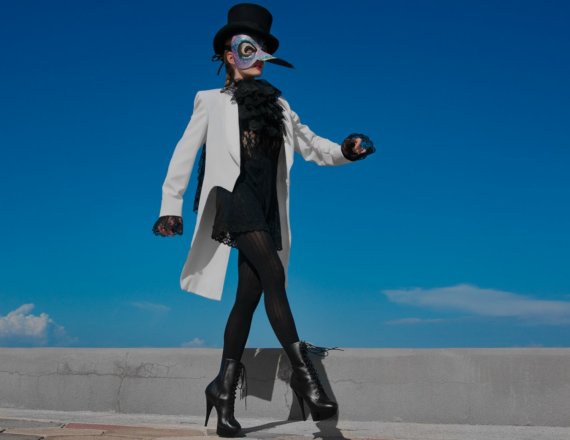
Who’s the prat in the white tuxedo?
Isabel Wolff at the Rock Circus, London's fastest growing tourist trap
Independent - 22nd May 1994
'INSIDE the entrance of the Rock Circus in Piccadilly, London, foreign students throng in their jeans and bomber jackets. 'Who's that over-dressed prat?' I wondered, staring at a man in a white tuxedo, leaning casually against the far wall. Closer inspection revealed that it was an eerily accurate model of Bryan Ferry. But although the Rock Circus is owned by Madame Tussaud, the people who run it are at pains to point out that it's not merely a waxworks, but a celebration of 40 years of rock music.
'It can be quite an emotional experience in many ways,' said my guide, marketing director Glen Furrie, handing me a pair of stereo headphones. 'For a lot of people it's a real nostalgia trip.'
The Rock Circus is the fastest growing attraction for visitors in London. It has had 682,000 people through its turnstiles in the last year: a 23 per cent increase on the year before. It has models of more than 50 stars, including Little Richard, Buddy Holly, Gloria Estefan, Elvis, Sting, Bob Marley and Janis Joplin.
I went up to a revolving platform where Elton John, in a pink sequinned jumpsuit, crouched over a white piano. 'That hair looks more realistic than his own,' I heard someone say. Then I slipped on the headphones and heard Elton John belting out 'Daniel'. As I walked away towards the Stevie Wonder model, 'Daniel' faded and the soundtrack gently changed to 'I Just Called to Say I Love You'. And when I approached the Beatles in their Cavern set, the music changed to 'Twist and Shout'.
'That's rather clever,' I said to Mr Furrie. 'How's it done?' 'Infra-red beams and sophisticated microphone,' he replied, raising his voice above the music in his own headphones. I approached a very Seventies-looking Rod Stewart in velvet flares and floral shirt. Immediately his hit 'Maggie May' filtered through, with Paul Gambaccini's voice over the top, providing a commentary on the history of rock. 'Rod Stewart was one of the most observant and sensitive artists of the Seventies,' I heard Gambaccini say. 'But sadly he was utterly seduced by celebrity and became the Benny Hill of pop.'
A gaggle of Japanese students had clustered around the Gloria Estefan model nearby. One over-enthusiastic girl clambered over the barrier to have her photograph taken with the figure and nearly knocked her off her pedestal. 'That's not allowed,' said Mr Furrie. 'But it's hard to blame them. The photos look terribly convincing.' I admired Gloria's beadwork costume. 'She donated all of that,' said Mr Furrie. 'It adds a note of authenticity. Quite a lot of the artists help us in one way or another. Paul Simon gave us his guitar, and Eric Clapton shaved his beard so that we could get his jawline right.'
So how has the Rock Circus increased its business so dramatically? By capitalising on the association between the stars and the venue, according to Mr Furrie. 'What we now do is to get, say, Jon Bon Jovi or Bono to give a press conference when their waxwork figure is unveiled. And then we advertise it by saying, 'Come and meet Jon Bon Jovi at the Rock Circus, and the word spreads.'
'What do you think of the Rock Circus?' I asked a Spanish student, Jose.
'I like it,' he said. 'But I would like to see more stars.'
'It's pretty good,' said Phillipe, a 16-year-old from Brussels. 'The figures are really real. Our teacher brought us here. Everyone knows about it in Belgium.'
The Rock Circus is probably better known abroad than it is here, a fact which Mr Furrie acknowledges. Walking out on to Piccadilly I stopped a passer- by. 'Excuse me,' I said, indicating the Rock Circus. 'But do you happen to know what goes on in there?' She peered at it, her eyes narrowing in concentration. 'It's a restaurant isn't it?' she replied.
Goodbye Che, hello Claudia

Independent - 8th May 1994
ATHENA, whose glossy posters of Che Guevara and a tennis-playing girl scratching her bottom adorned student walls for two-and-a-half decades, is in trouble. 'The company hasn't really moved with the times,' said a spokesperson cheerfully, explaining why a new marketing supremo has arrived to take the 171-store chain upmarket and dust off its Seventies image. 'There's been a real lack of awareness about what young people like. I really don't think that 15 to 25-year-olds want the Wombles on their wall any more.'
If not Wombles, what does the discerning student want?
'You're far more likely to find posters of Bambi than Fidel Castro,' said Rosalyn, Hall Manager at Ingram Court, a student hostel in London's King's Road. 'I don't think students have very radical tastes any more - a lot of them just put up wrapping paper.'
'Posters are expensive, boring and unoriginal,' declared third year pharmacology student, Aran Stephens. 'I get all my pictures out of Esquire and Select magazine.' I glanced at the walls of his small bedsit. Every square inch was covered with photos of James Dean, Jack Nicholson, Sharon Stone, Sherilyn Fenn, Axl Rose and Dr Who. There were also posters for the rock band My Bloody Valentine, and several Wonderbra ads. 'I just had to have those,' said Aran, 'that girl's so lovely.'
Across the corridor, Christopher Hall, a first-year environmental scientist, had no posters on his walls. Instead, he had stuck up 40 LP covers, all of them on the Bluenote jazz label. 'Posters these days are so pathetic,' he explained.
'Don't you want political posters - posters that make a statement?' I asked.
'No,' he said emphatically. 'The only reason I'm here is to get a good job at the end of it all.'
Dasmeet Charna, a second year physics student, admitted she had 'quite babyish tastes'. Her room was covered in pictures of puppies and teddy bears and Planet Hollywood menus. There were also - rather incongruously - a couple of posters of Bob Marley and Malcolm X. 'I'm not in any way political,' she said. 'I just happen to think they look good.'
Richard Mattison, a first year lawyer, had covered his room with posters of pouting supermodels in various stages of undress. 'They're rather sexist I suppose,' he said happily. 'But it guarantees me lots of visitors. The girls come in to have a go at me for my politically incorrect tastes, and the blokes come in so they can have a good look. I used to have an Athena poster of Lenin on the wall,' he added. 'But I'm not interested in all that any more.'
'I do quite like Athena's art posters,' said Rachel Blackmore, a history student, dubiously. 'But the trouble is they do such obvious things - the archetypal Degas dancer or Salvador Dali. It's very boring.'
'Athena say that they're going to make their products appeal more to 25 to 35-year- olds,' I said. 'What do you think about that?' Her face assumed a sceptical expression. 'Well, by the time you're that age you've probably got your own flat,' she said, 'and I don't think a poster of Malcolm X is really going to go with the Colefax and Fowler.'
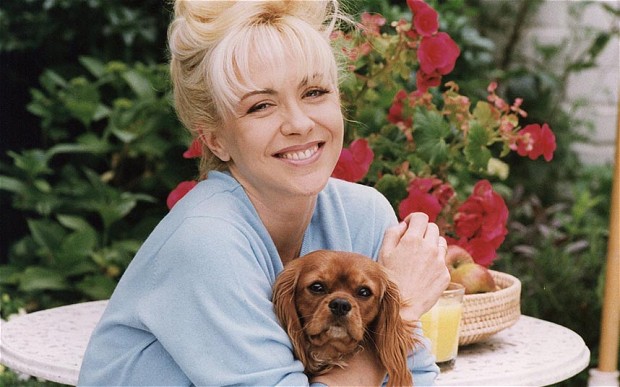
What Bienvenida’s husband wrote to me
The passionate epistles of Sir Peter Harding remind Isabel Wolff of history's great love letters . . . and of those from a smitten schoolboy
Independent - 20th March 1994
'I FIND you utterly captivating, enchanting, intelligent, practical, determined, overwhelmingly beautiful and desirable,' wrote Sir Peter Harding, now famously, to Bienvenida Buck. 'Your body is incomparable and your face utterly beautiful,' he went on. 'You move like a gazelle, dress like a queen, and have impeccable taste.'
Like many people my initial reaction to this episode was incredulity that such an intelligent and distinguished chap could behave like such a twerp. And then I fell prey to feelings of an entirely different kind - overwhelming, heart-crushing, gut-twisting envy. Lucky old Bienvenida, I thought bitterly, getting letters like that. How I longed for someone to call me an impeccably-dressed gazelle.
I have to confess that thus far I have not received what I consider to be my fair share of love letters. I've done quite well in obscene phone calls, but when it comes to rose-scented, tear-stained, fountain-penned epistles declaring undying admiration and devotion I feel that I have been somewhat short-changed. The last one I got was when I was in the sixth form at a boys' public school.
Shortly after I arrived a boy a couple of years younger than me, and from a rather wealthy family, began to inundate me with presents and declarations of love. A bouquet of plump, yellow roses arrived one day, an expensive box of chocolates the next; all acccompanied by letters peppered with intriguing French phrases super-praising my parts. 'Le livre s'ouvre seul aux feuillets souvent lus,' announced one rather enigmatically, while, in another, my admirer expressed the desire to 'caress that schoolgirl complexion'.
I accepted all the letters and perishables but felt duty-bound to return the hardware; I was worried that his pocket money would run out.
'It's extremely generous of you,' I said, as I handed him back the gift-wrapped Cartier pen and the flagon of Chanel No 5, 'but I really don't think you should give me any more presents.'
He looked slightly red-faced and a little crest-fallen but he quickly recovered.
His name was Nicholas Sokolow, and he is now married to Bienvenida Buck.
Apart from that episode, I have had to make do with the chancy business of St Valentine's Day. But I was rather cheered by Sir Peter's purple prose since it disproved what I had long feared - that the love letter was well and truly dead, killed off by high technology.
Why bother to write when you can whisper sweet nothings down miles of telephone cable, fax the beloved in a flash, or send them a risque message on a computer terminal? Thanks to the Americans, you can even buy ready-made love letters in the form of greeting cards with a variety of italicised, saccharine inscriptions: 'Happiness is not just loving you, but being loved by you'; 'Thinking about you always brings a smile to my face'; 'You are always there. You are always on my mind'; 'I love you, I love you, I love you, I love you, I love you'.
But there's nothing like getting the real thing - especially if you're keen on the sender. Edith Wharton described the thrill of receiving a love letter. 'The first glance to see how many pages there are,' she wrote; 'the second to see how it ends, the breathless first reading, the slow lingering over each phrase and word.'
Dame Barbara Cartland claims to have received 'millions' of love letters and has very distinct views on the writes and wrongs of penning a passionate epistle. 'It's fatal to start off saying: 'I love you' and end 'I had the most ghastly day at work yesterday', ' she warns. 'It's totally unromantic.'
She cites a letter sent by Napoleon to Josephine as a perfect example of the form: 'A thousand kisses on your eyes, your lips and your heart. Most charming of your sex, what is your power over me? Adieu, my happiness, my love, everything that existed for me on earth.'
Beginnings are very important. 'My own dear boy,' wrote Oscar Wilde to Lord Alfred Douglas; 'My own dearest Wifie,' wrote Charles Parnell to Katherine O'Shea, while John Ruskin was rather more long-winded in addressing his beloved, Effie Gray. 'My own Effie - my kind Effie - my mistress, my friend, my queen, my darling - my only love . . . '
Endings can be peculiar - Parnell pompously signed himself 'Your King'. But they can be touching. In her anthology of wartime love letters, Forces Sweethearts, Joanna Lumley included a letter from a sergeant to his wife. 'Goodnight, Darling and God Bless You, and keep you safe for me, always. I love you Loads and Loads and Loads and Loads, Ever and Ever. Ad infinitum. Your loving husband, Tommy.'
Sir Peter can perhaps take comfort from the fact that he is not the first British forces Big Shot to be caught writing soppy letters. In fact, I rather wonder whether he had not in fact read Nelson's missives to his married mistress, Emma Hamilton. The style is remarkably similar: 'No separation, no time, my only beloved Emma, can alter my love and affection for you,' wrote the Admiral in 1800. 'It remains for us to regret, which I do with the bitterest anguish that there are any obstacles to our being united . . .'
Not surprisingly, the Romantics were enthusiastic senders of love-letters. 'I see nothing in life but the certainty of your love,' Keats wrote to Fanny Brawne in 1820. 'Convince me of it my sweetheart. If I am not somehow convinced I shall die of agony . . . my loveliest, my darling] Goodbye] I kiss you - O, the torments]'
And, at about the same time, Byron naughtily wrote to his half-sister, Augusta Leigh. 'My dearest love . . . I have never ceased nor can cease to feel for a moment that perfect & boundless attachment which bound and binds me to you - which renders me utterly incapable of real love for any other human being - what could they be to me after you?'
Poets ought to be at an advantage when it comes to epistolary passion. 'I love you so much, I'll never be able to tell you,' Dylan Thomas wrote to Caitlin Macnamara in 1936. 'I'm frightened to tell you. I can always feel your heart. I love you body and soul.'
What strikes one most of all about anthologies of love letters is how many of them, in the past, have been written by men. It was the classic way for a man to get to know a woman - the flirtation, courtship and seduction were to some extent conducted on the page.
Today, of course, things are rather different. 'My boyfriend used to write me love-letters,' says Sarah Fitzpatrick, an advertising copywriter. 'But he'd try and disguise the fact that they were love-letters, as though he was ashamed of it. He'd write something quite romantic, like 'You've got lovely eyes', and then in the next sentence he'd tell me something really banal about his car, like the big end had gone or the clutch was slipping. It was a bit sad really.'
David Morison, an interior designer, says: 'I do think men find it much harder than women to write love letters these days. I've tried, but I just can't get the hang of it, I find it all a bit embarrassing. I suppose I'm much too English really. But my girlfriend, Emma, writes me love letters practically every day, and she lives with me]'
Absence or separation are a great begetter of love letters. Two years ago the travel writer Nicholas Crane set off alone on an 18-month mountain walk from Spain to Istanbul, leaving behind his wife of 15 months, Annabel.
He wrote to her at least once a day, and sometimes two or three times, and she would reply poste restante. Some of their letters will be published in his forthcoming book about the journey.
'My letters were rather romantic,' he says. 'There was quite a high mush content I'd say. I used to really look forward to sitting down and writing them - it was a wonderful way to let off emotional steam.'
Crane points out that in many respects writing a love letter is a risky thing to do. You are committing your feelings to paper and sending them in the post. There's no going back. It's all in black and white.
'I used to find that moment when I dropped the letter in the post box incredibly exciting,' he says. 'The knowledge that it was now irretrievable and that I couldn't just say, 'Oh, I didn't really mean what I said just now', as one can do over the phone. I also loved the fact that the letter was going on a journey, and that it would get to Annabel by road, by train or by air. I found that in itself a terribly romantic notion.'
'I loved getting them,' says Annabel, who has tied them all up with red ribbon in the time- honoured way.
'It was a great compensation for our separation. In a way I feel very lucky because I have literally hundreds of love-letters from my husband - and I suppose that's rather unusual these days.'
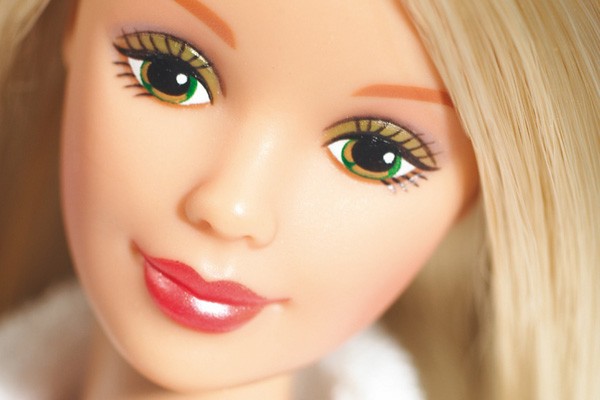
Real Life: A girl who still has everything
Forget Sega, forget Nintendo, the biggest-selling toy this season is Barbie. Isabel Wolff reports
Independent - 19th December 1993
'WHAT DO you like about Barbie?' I asked seven-year-old Sara Thorp from Lancashire. We were standing in the Barbie Dolls department on the top floor of Hamleys toy shop in London. She looked thoughtfully at the 'Happy Holidays' Christmas Special Barbie which she was clutching fiercely between two chubby hands. 'Well, she's really pretty and she's got lots of nice clothes and she's got long golden hair which I can plait.'
We surveyed the shelves which were groaning with Barbie dolls and Barbie accessories of every description. There were Barbies in ball-gowns and Barbies in bomber jackets, 'Teen Talking' Barbies and Barbies with pink spray-on stars in their ankle-length hair. 'What else do you like about her?' I enquired.
'Well, she's very kind,' she said seriously, 'and she's got lots of friends and she works really hard.' Happy Holidays Barbie, dressed in a frothy confection of sequinned silver nylon, stared out vacantly through the plastic packaging.
'Do you think Barbie has a nice life?' I asked Sara's five-year-old sister. 'Oh yeth,' she said unhesitatingly. 'She goeth on boat tripth and she'th got lotth of nithe carth and she goeth thcuba-diving, and getth to meet famouth people.'
'Would you like to be like Barbie?' I asked.
'Oh yeth,' she said with a blissful smile.
'And how many Barbie dolls have you got?'
'Theven.'
FORGET Nintendo and Sega, Barbie is the number one toy this Christmas. She may only be eleven-and-a-half inches tall, but Barbie Doll is big. When she was launched at the New York toy fair in 1959 they said she'd never catch on, but since then this flesh-toned vinyl icon of miniature womanhood has dominated the toy markets in over 100 countries. Over the last 34 years a total of 700 million Barbies have been produced and sold - put them end to end, and they would circle the planet almost four times. She's had her imitators, but Barbie has remained top doll.
With her cascade of blonde hair, huge blue eyes and startling physique (life-size she would be over 7 foot tall and 39-18-32), people have seen in her shades of Brigitte Bardot and Marilyn Monroe. But the real prototype was the German Lilli doll, inspired by a saucy newspaper cartoon character of the same name.
If Barbie was conceived in Germany, she was born in California, springing fully-formed, pouting and pony-tailed from the drawing board of Ruth and Elliot Handler who named her after their own daughter, Barbara Millicent. In the intervening 34 years, she has earned her creators, Mattel, over dollars 1bn.
Barbie is the ultimate American consumer. She shops, therefore she is. She has more shoes than Imelda Marcos (approximately 1 billion pairs) and more frocks than the Princess of Wales (20 million new ones every year). She has been dressed by top designers, including Balenciaga, Yves St Laurent, Hermes and Kenzo.
But most of her clothes these days are off-the-peg. She is the world's biggest purchaser of dress fabric, buying more than 20 million metres every year. And this is where Mattel clean up. For while the dolls themselves are relatively cheap - they start from as little as pounds 3.49 - outfits can cost anything up to pounds 9. And it's not just a question of shoes and clothes. Barbie has 'dream kitchens' and 'dream houses', 'dream theatres' and 'dream shops'. She has photographic studios and hamburger stands, safari tents and poolside arrangements, a paddock full of ponies and a whole menagerie of animals.
She seems to lead a life of unremitting leisure, staggering from beach party to barbecue to ball. But Barbie is no shallow socialite, she is a Serious Working Woman, which is how she pays for her expensive lifestyle. She's been an air hostess (for all three American airlines), and a doctor (her white coat cunningly converts into a ball-gown); she's been a nurse, a pilot, a vet, a television executive, a fashion editor, and an Olympic gold medallist.
Barbie is a trend-follower, rather than a trend-setter. In 1969, at the heart of the American Civil Rights movement, she suddenly acquired a black friend, Christie. In the early Seventies, when Christian Barnard performed the the first heart transplants, Barbie became a heart surgeon. When Neil Armstrong stepped on the moon, Barbie went into outer space. Admittedly there hasn't been a Los Angeles Riots Barbie (complete with looted video), but the essential social history of America has been represented in this plastic doll.
Some feminists argue that she can be seen as a positive role model for small girls because she doesn't depend on a man for her wealth and possessions. The critic Marina Warner is not so sure. 'I don't think that Barbie is independent of men,' she says 'because each year the highlight of the new Barbie fashion collection is the wedding dress. Just as it is in the couture houses, so the idea of marriage does underlie the doll and all her possessions.'
Barbie has more wedding dresses than Elizabeth Taylor but she's never tied the knot, although she's been going steady with her boyfriend, Ken, for the past 32 years. Tall (12 inches), dark and handsome, Ken was the perfect escort for Barbie at fraternity dances and drive-in movies. They did get engaged at the end of the Sixties, but Barbie got cold feet and called the whole thing off.
'I don't think Barbie will every marry,' says 24-year old Philip Andrew, an avid Barbie doll collector, as we surveyed the shelves. Mr Andrew, a designer, had come into Hamleys to buy another doll to add to his 200-strong Barbie doll collection.
'What makes you so sure about that?' I asked.
'Well, she's never had a double bed. All her beds have been single. Sindy's had some large beds, but not Barbie. She and Ken are basically just good friends,' he added, knowledgeably. 'They do everything together but not, you know, that.' Mr Andrew has been collecting Barbie dolls since he was six and freely admits that his hobby raises eyebrows.
'Why do you like Barbie dolls?' I asked, as a small girl pushed past us with a Barbie Golden Dream Motor Home in her arms.
'She's just fascinating,' he replied wistfully. 'She's got everything that I'll never have. She can go anywhere, do anything and still look wonderful. I look dead dodgy some days. But Barbie has this amazing, fantasy life. Basically she just knows how to have a good time.'
Don’t ask why, just put a lid on it
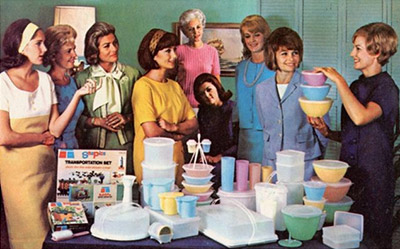
Every 2.7 seconds a Tupperware party takes place somewhere in the world. Isabel Wolff went to just one
Independent - 12th December 1993
''SO THERE we all were, in Lisa's semi in Chingford; Bev and Liz and Elaine and Lisa and Kate and Mary and I, politely sipping our wine and waiting for the show to start. 'Have you got any Tupperware?' I whispered to my neighbour, Lucinda, a young housewife, part- time Post Office worker and mother of two small children. 'Yeah,' she said enthusiastically. 'I've got loads. I've been to hundreds of Tupperware parties.' We surveyed the Himalayan pile of moulded plastic in front of us: juice jugs and colanders, jelly moulds and salad crispers, square lunch boxes and round lunch boxes, oblong boxes, and short, squat boxes, tall lidded beakers . . .
'Just think of it as Lego for ladies,' said a smiling Mary Knights, veteran of Tupperware parties and our demonstrator for the evening, as she added a plastic cheeseboard to the ever-swelling pile. I looked at my watch. Almost eight o'clock. Time to start.
'Where's Elaine?' someone asked. 'It's EastEnders,' volunteered Liz. 'She won't get here until it's over.'
'What do you think's so good about Tupperware?', I pressed Lucinda, who seemed to be a bit of a Tupperholic. 'Well, it's just . . . it's just brilliant,' she replied, with feeling. 'I swear by it. You can do anything with it; put it in the freezer, dishwasher, microwave - anything.' There were hoots of laughter on all sides. 'You sound just like a Tupperware agent,' said Beverley. 'She's hired]' said Mary Knights.
The door opened and Elaine came in with her friend Marie. Marie looked a bit shy. It was her Tupperware debut.
'What made you decide to come?' I asked her. 'Elaine forced me,' she said, giggling. 'Do you think you'll buy anything?' 'Och, I don't know,' she replied, surveying the plethora of plastic. 'Maybe.'
Mary Knights cleared her throat and a hush descended. I sat forward on the sofa.
'Now this,' she said, 'is for Lisa for agreeing to host the party tonight.' She held aloft a white box with a dark blue lid; it looked like a potty. 'This is the new Tupperware Multi-server,' Ms Knights explained. 'It poaches fish and it cooks vegetables, pasta or rice. You just pour boiling water over the food, put the lid on and it cooks in its own steam. Very energy- saving and useful on boating or camping holidays. It would normally cost pounds 14.50 but Tupperware are giving it to Lisa as their way of saying a special thank you. And, as a little extra pressie, she also gets this small gravy jug.'
We all looked enviously at Lisa and mentally resolved to host Tupperware parties.
'And now', said Mary, 'I'm going to take you through the entire range which, as you can see, comes in four modern and attractive colours - yellow, cerise, teal and lacquer blue, a far cry from the plain white Tupperware that your mothers would have bought.'
Then, with mesmerising speed and eloquence, she proceeded to demonstrate every item on the table in front of her. She spoke at 120 words a minute for over an hour, taking us through the drinking mugs, the serving bowls, the domed server and the cheese tray, the stacking ice trays, the Super Oval storage boxes, the salad crispers and the translucent plastic Fridge Mates'.
'I thought this was going to be an Ann Summers party,' a voice interjected. 'Have you any vibrators?'
'The nearest thing we've got to a vibrator is this Quick Shake,' Ms Knights swiftly replied, holding up a clear plastic cone-shaped container with a green lid. 'It's marvellous for mixing fruit drinks and salad dressings and it only costs pounds 7.50. Now, do any of you know about the history of Tupperware?' We all shook our heads. 'Well . . . ' she began.
It all began in nineteen thirty-something with Earl Tupper. Mr Tupper was the industrial chemist who first worked out how to burn polythene slag - a by-product of oil refining - into a mouldable, commercial plastic. In 1938 he founded the Tupperware Plastics Company and introduced unbreakable food storage containers to the American housewife. But the American housewife couldn't work out how to operate the sealed lids, and sales only took off after the Tupperware had been demonstrated in-store. Home selling by trained demonstrators became so successful that in 1951 Earl Tupper took all his products out of the shops and committed the company to party-plan selling. Today, Tupperware is available in 54 countries and a Tupperware party takes place somewhere in the world every 2.7 seconds.
'Now there's a special offer on the Space Saver storage range,' said Mary. 'You get two free freezer inserts for every storage box that you buy. This Size 2 square one,' she said 'is very good for storing awkward shaped stuff like that tagliatelle. Have you got one of these Lucinda?'
'Yes.'
'And what do you use it for?'
'Shredded wheat.'
'And this rectangular one,' said Mary, 'is particularly good for bread sticks or spaghetti.'
The idea of decanting food stuffs out of their wrappings into storage boxes was new to me. 'So you mean you take the shredded wheat out of the packet and stick it in the plastic boxes?'
'Yes'.
'Why?'
There was a stunned silence.
'Because it's hygienic, convenient and space-saving,' Ms Knights explained patiently.
'I think I'd rather have the packets,' I replied. A nervous titter went round the room.
Ms Knights concluded the demonstration and silence descended as we studied our catalogues and inspected the goods on display. 'You were a very good lot tonight,' Ms Knights confided, as I toyed with a green colander. 'Sometimes the parties are so raucous that I can hardly make myself heard.' Lucinda was already writing out a large cheque. 'I'm buying some square Space Savers and a Spice Saver Centre,' she confessed. 'I just love storing things. Do you think you're going to buy anything?'
I shook my head, although I had been momentarily tempted by a Tropical Salad Bowl. 'Oh well, never mind, maybe Tupperware isn't really for you.' She gave me a sympathetic smile. I went home, Tupperware-less, to a kitchen full of chaotic, package-filled cupboards.
Adultery: don’t do it
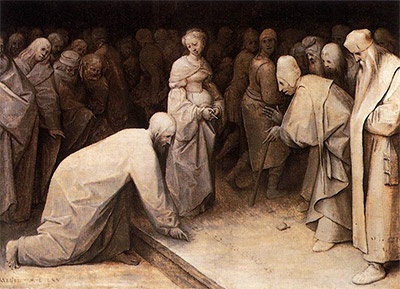
Isabel Wolff hears the case for faithful wives
Independent - 5th December 1993
WIVES AND mothers, as we all know, are saints. The embodiment of goodness, love and self-sacrifice, they hover in the piety stakes somewhere between Florence Nightingale and Mother Theresa.
Perhaps it is for this reason that there has always been something wicked about the idea of a married woman having a fling. If a married man has an affair, so the theory goes, he is simply being, well, a man. But if a woman has one she is viewed as a monster: think of Barbara Stanwyck in Double Indemnity, Lana Turner in The Postman Always Rings Twice.
Perhaps that is why society has always dealt so harshly with adulteresses. Literature is strewn with casualities, from the humiliating exile of Hester Prynne in Nathaniel Hawthorne's The Scarlet Letter, to the public hanging of Tess of the D'Urbevilles, to Anna Karenina's painful suicide on the railway tracks of St Petersburg. And if the women don't do the decent thing and top themselves, like Emma Bovary, they are invariably despatched by others: Zola's Therese Raquin, for example.
But surely times have changed? After all, new statistics released by Relate show 40 per cent of married women have owned up to having extra- marital relations, coinciding nicely with a new ITV drama, A Woman's Guide to Adultery. So what should a woman do these days, if reason fails and lust threatens to triumph over logic? I asked a number of women what advice they would offer to any woman considering a fling. Don't] came the deafening reply. And if you do, don't ever, ever get caught, and don't ever, ever tell.
Deidre Sanders, the Sun's agony aunt, reports that she gets a lot more letters these days from married women having affairs. 'Don't do it,' she says. 'And if you are doing it, stop. And if you still insist on doing it never, ever say anything, not even to your best friend, and certainly not your husband.' Some women, she says, are tempted to tell their husbands out of egocentricity. 'You don't like my body? Well, Fred/Bert/Bob thinks it's gorgeous.' Or, 'What do you mean I look a mess? Well Michael/James/Tristran thinks I bear a close rememblance to Catherine Deneuve.'
Other women, she says, are driven to confess all by guilt. 'They may feel relieved to have off-loaded their guilt, but they run the risk of off-loading their marriage too. Most husbands simply don't want to hear about the existence of an affair, past or present.'
Amanda Craig, the novelist, thinks adultery is 'absolutely awful. And one of the reasons why I won't write about it in my books is because I have no intention of ever committing it,' she says. She thinks any woman contemplating an affair should be aware of the practical risks.
'She should make sure that she has her own pension plan - if your husband finds out and divorces you and you haven't got a pension, you can be stuffed in your old age.' It is unfair to involve anyone else in the affair. 'Don't borrow a friend's house - it's so squalid. Keep it absolutely private.'
Comedienne Ruby Wax agrees. 'If a girlfriend of mine was contemplating an affair I'd tell her not to do it,' she says. 'But if she insisted on it I'd tell her to keep her mouth shut and do it in another city.'
Sally Moon, formerly Lady Sarah Graham-Moon, who famously punished her husband for his adultery by slashing his suits and giving his vintage port to the neighbours, comments drily that 'the biggest give-away is new underwear. If you do buy yourself some Janet Reger, pretend that it's for your husband.' She warns against the dangers lurking in an itemised telephone bill. 'It's very obvious if the same number keeps cropping up on the bill the whole time.'
Liz Lochhead, the Scottish poet, finds the subject fascinating. 'I really like writing about adultery in my poems, but I've never wanted to do it myself. Fortunately since I met my husband I've never fancied anybody else and I'm quite sure nobody's fancied me either. If I had to give advice to my best friend, I'd say, Don't do it. But if I was giving advice to the heroine of a novel, I'd tell her to do it so that I could enjoy reading about it.'
Helen Williams, editor of For Women magazine , says: 'I think adultery is equally painful for men and for women. But I do think that men are somehow more appalled at the idea that their wives could be unfaithful. Their pride can be absolutely shattered.' But once they have decided to embark upon it, by and large women are much more proficient at adultery than men, she says.
'Women are much more thoughtful. They are better at detail, so they are going to make sure that they're not found out. Men are rather cavalier about knickers in the glove compartment - they don't think they're going to be found out, but they usually are. A woman is far more subtle.' Usually, that is. 'But if she says she has been working late, she can't then arrive home with perfect hair and make-up and fresh lipstick - that's not how she would look after 16 hours slaving away at a desk.'
Like most of the women I spoke to, Helen Williams also believes that it's a big, big mistake to conduct the affair in the marital home. 'It's really against the rules. It's so sordid. And it means that you've got to keep changing the sheets.'
But the biggest and most important rule, according to Sally Moon, is quite simply, 'Don't fall in love.'
Deidre Sanders says: 'Women do tend to believe that they're in love when they have an affair. Men can be more detached about it, more opportunistic, but women need to feel more emotionally engaged, and that can be fatal.
'The best advice that I can give to any woman who is having an affair is quite simply this. Stop doing it.'



